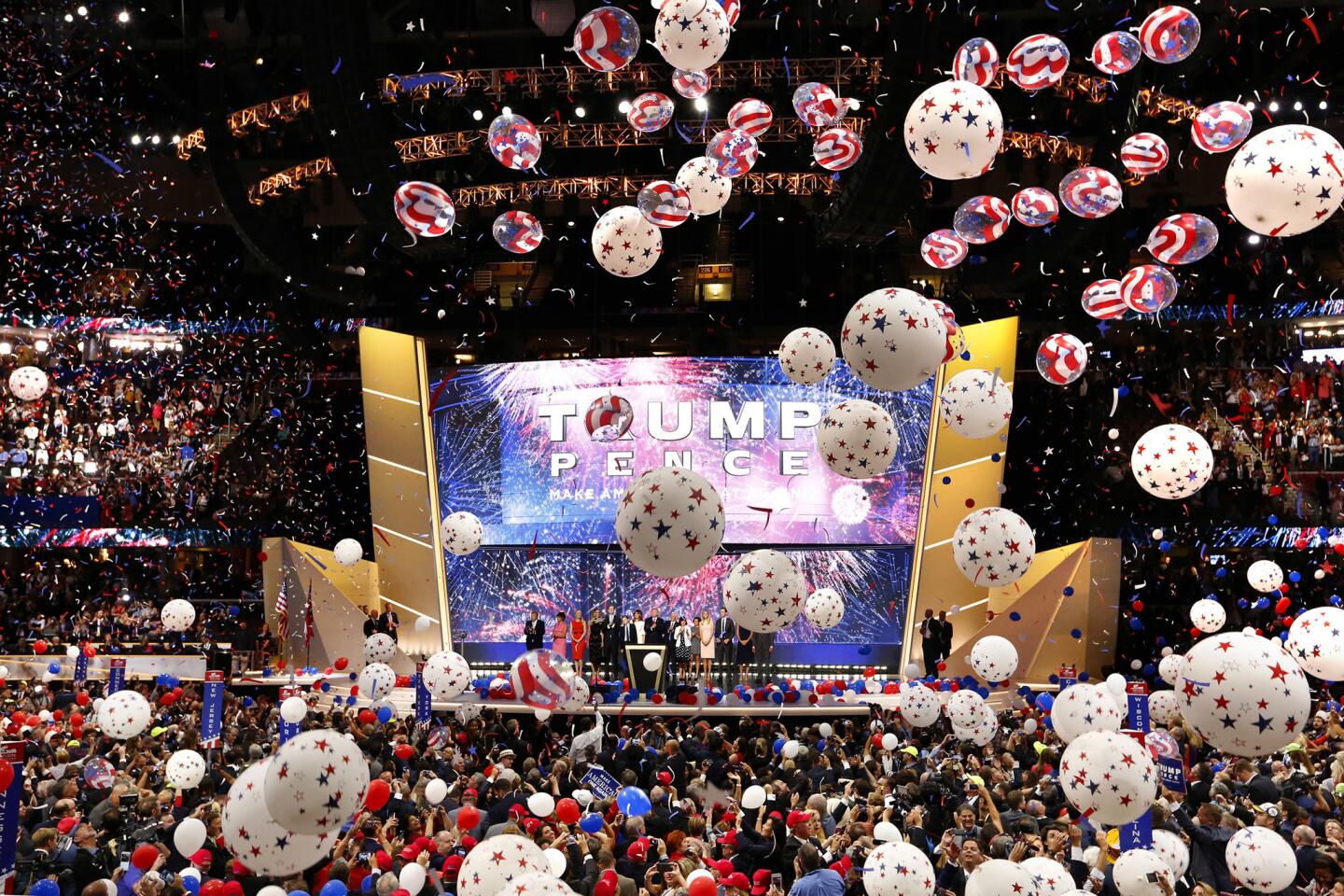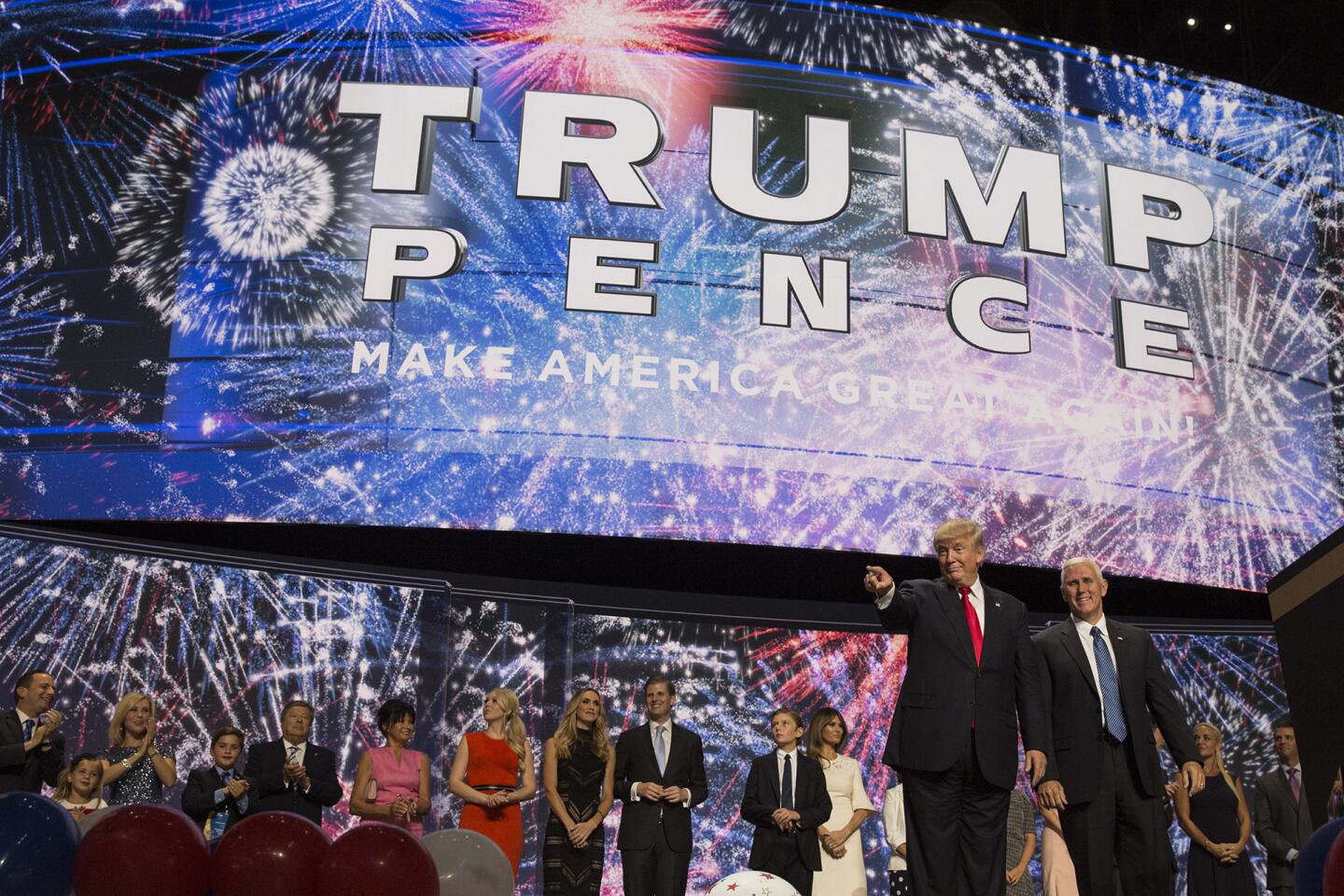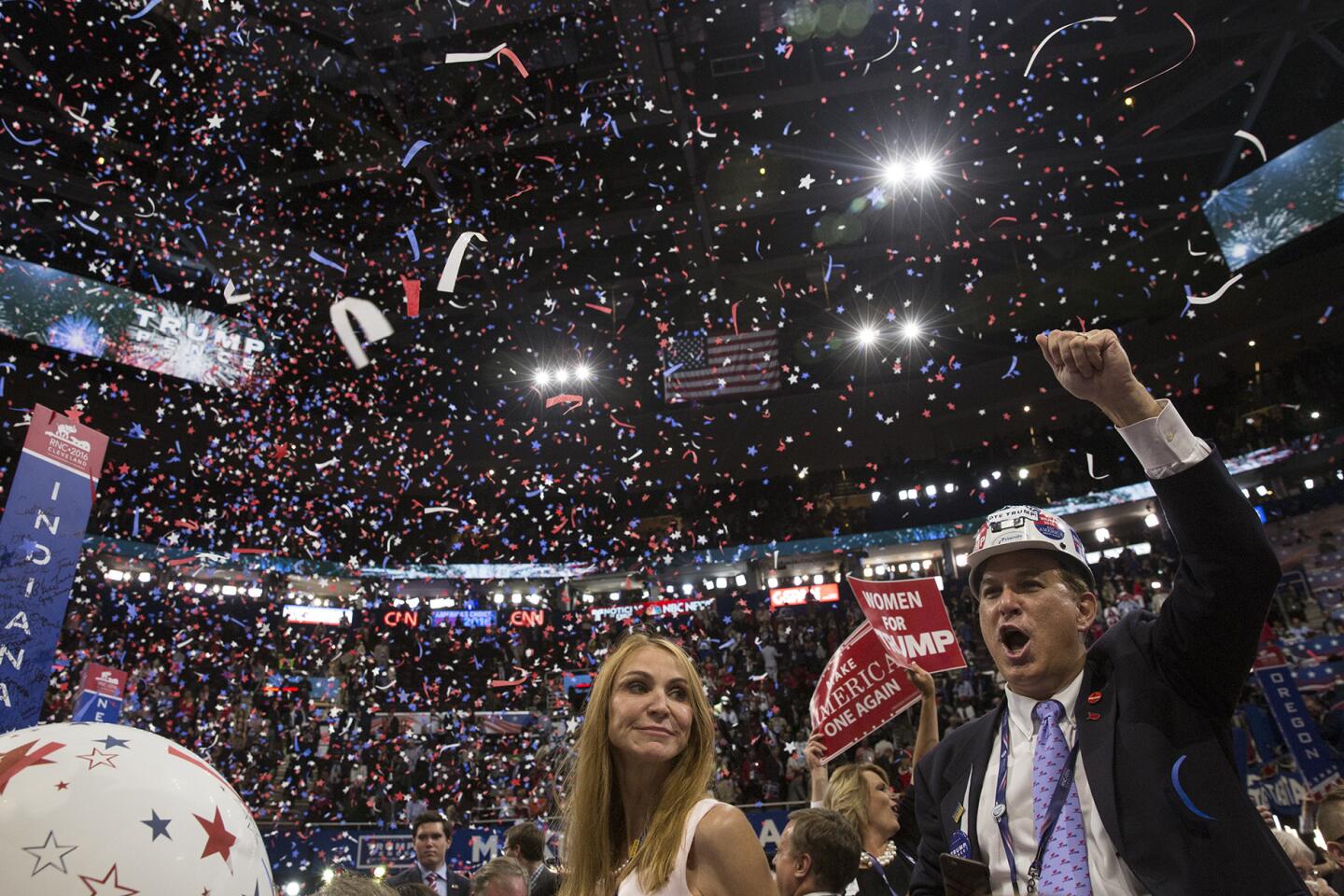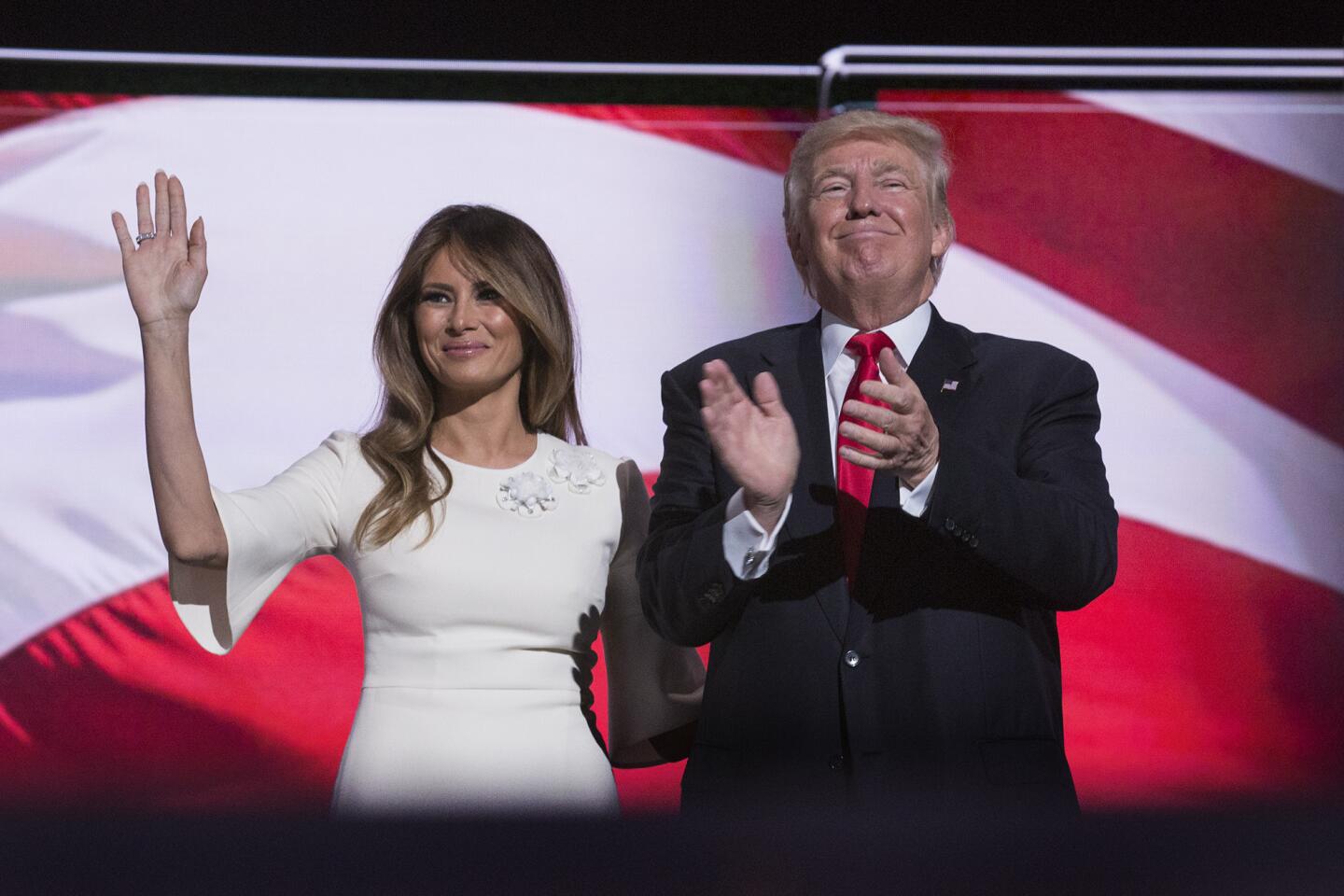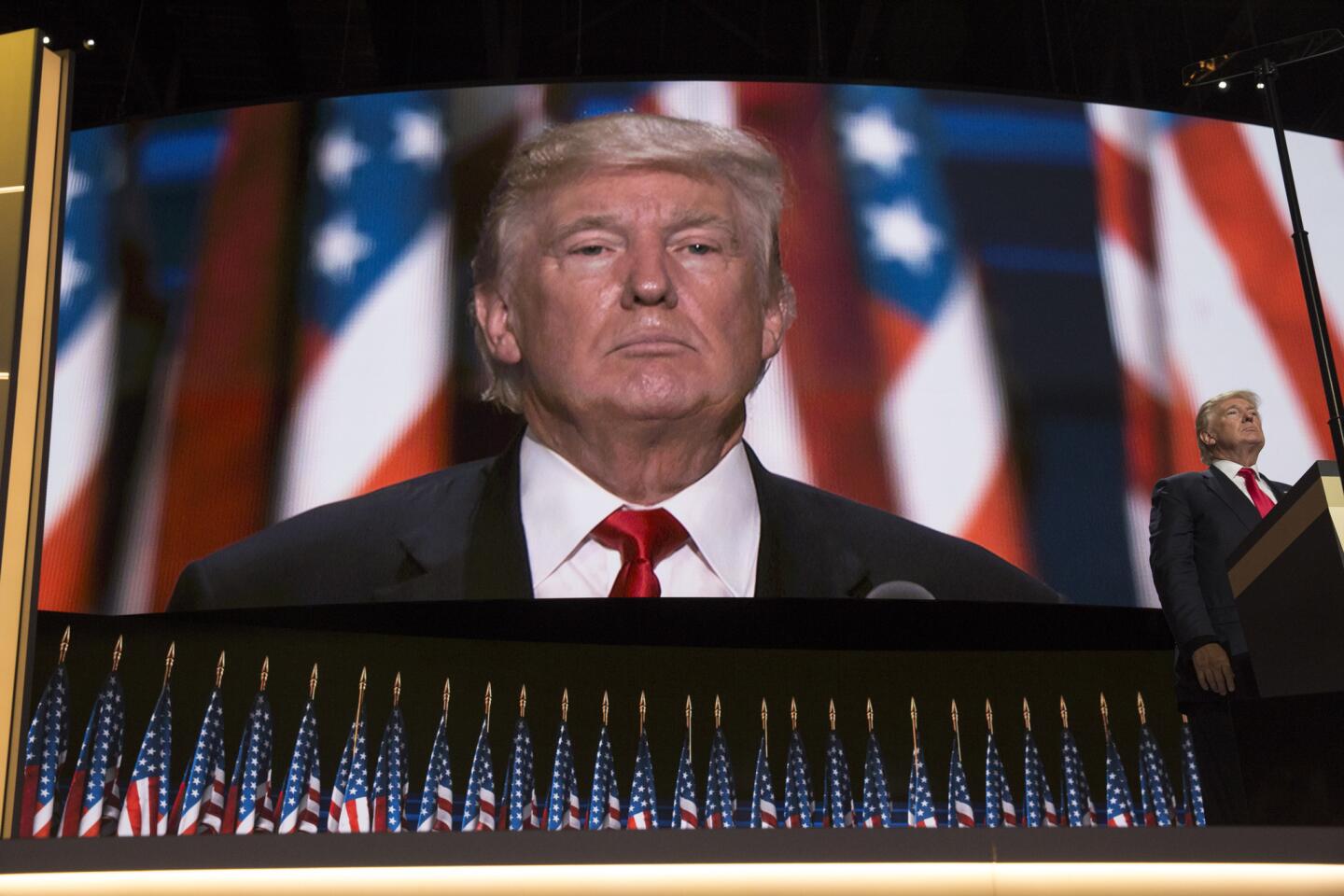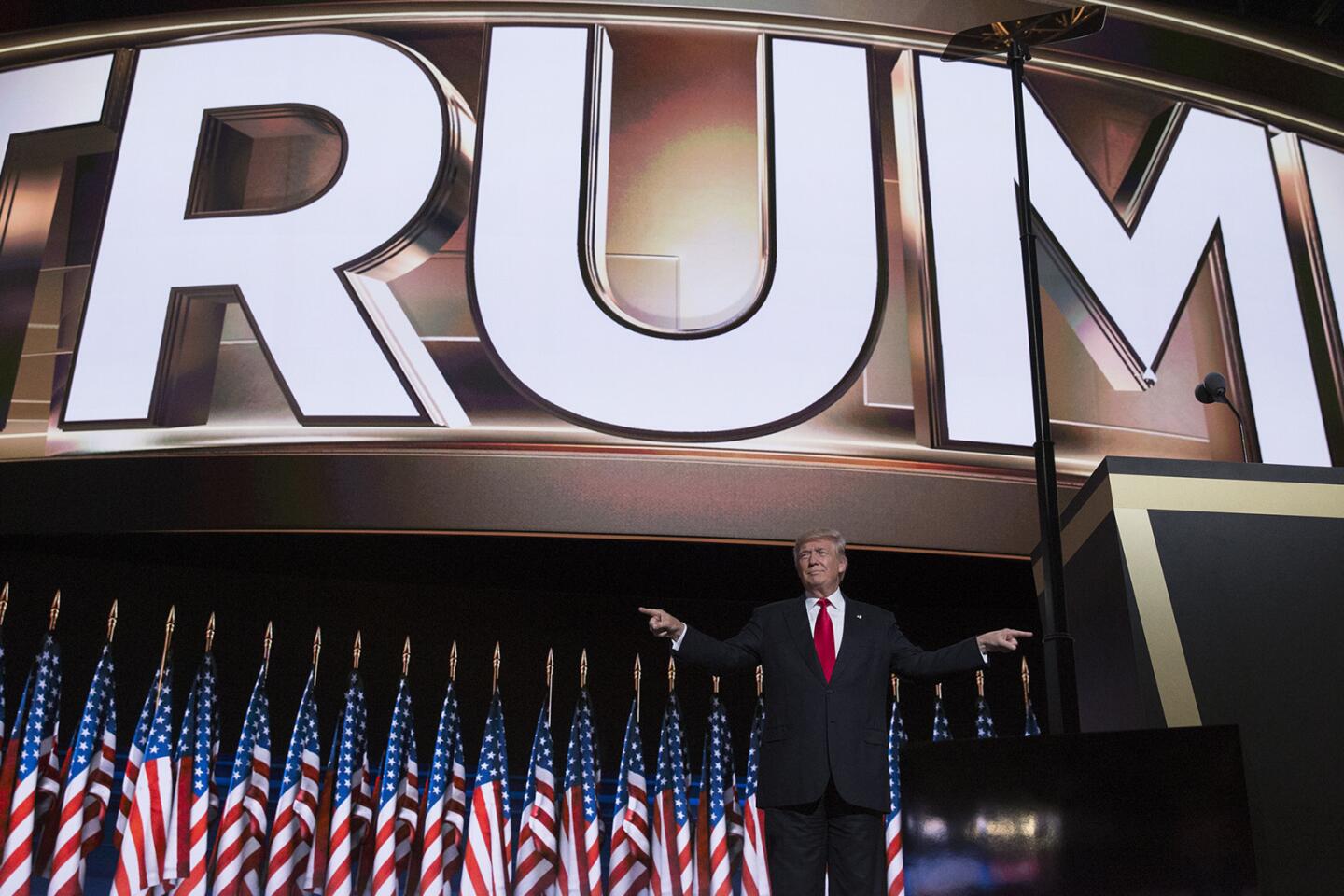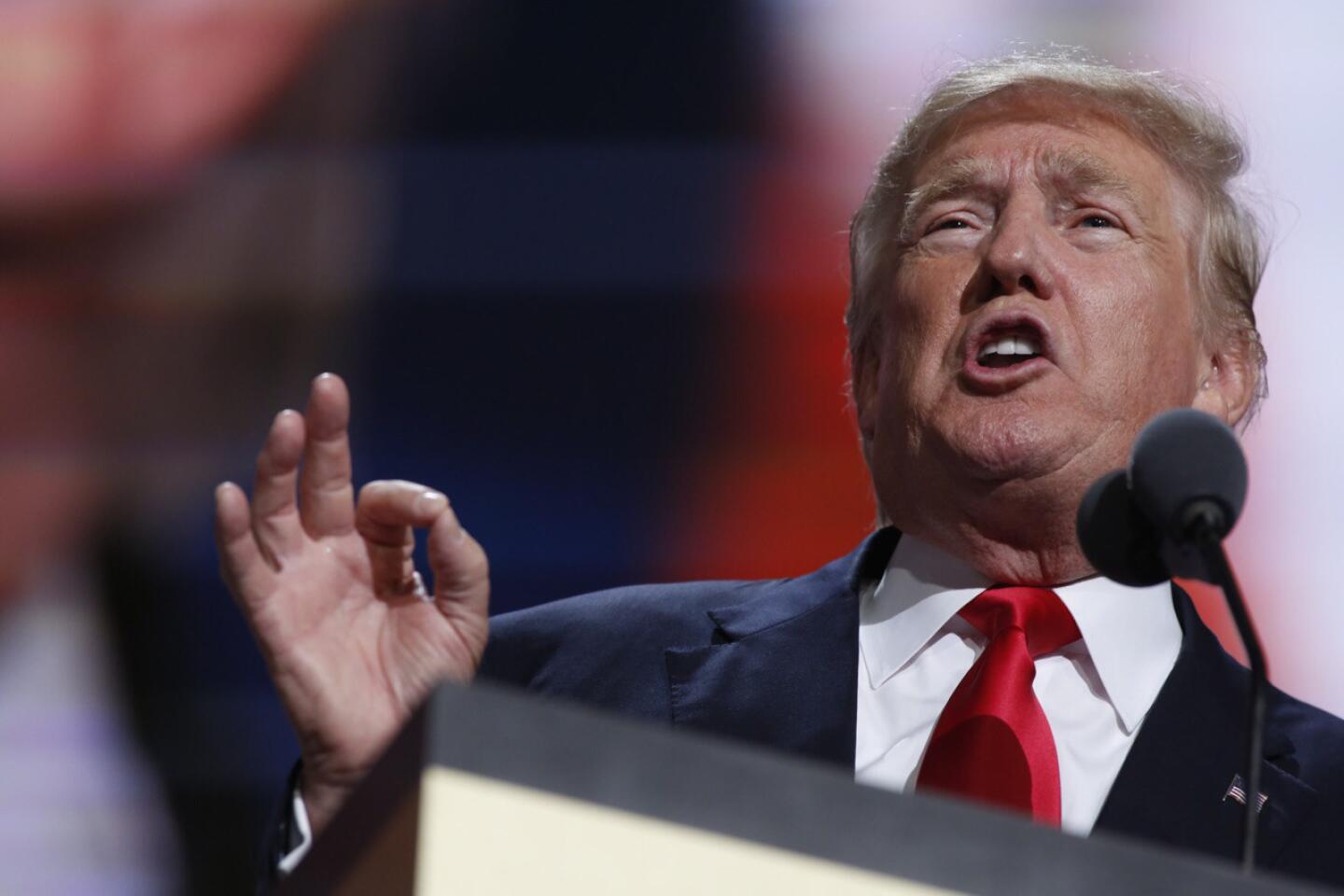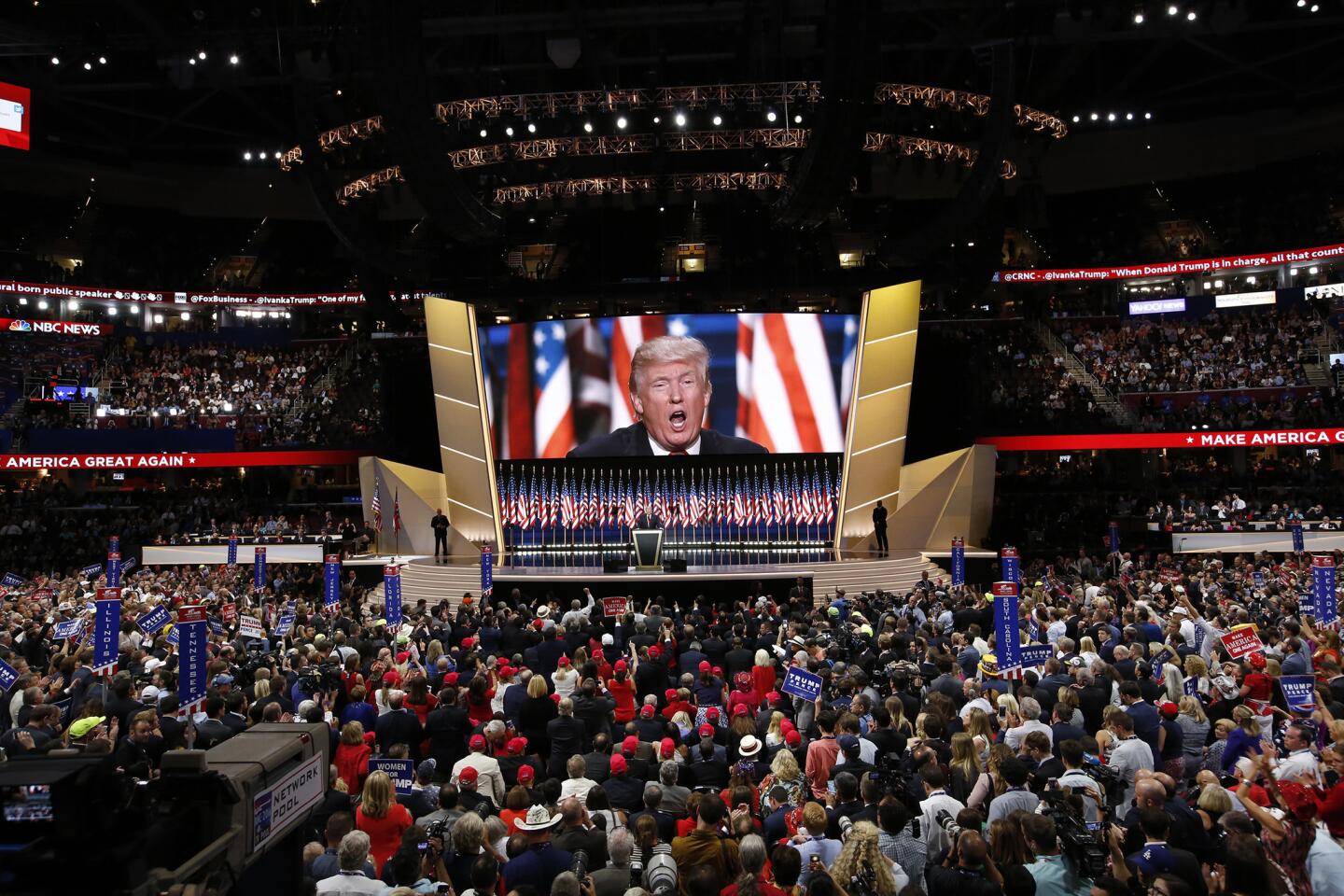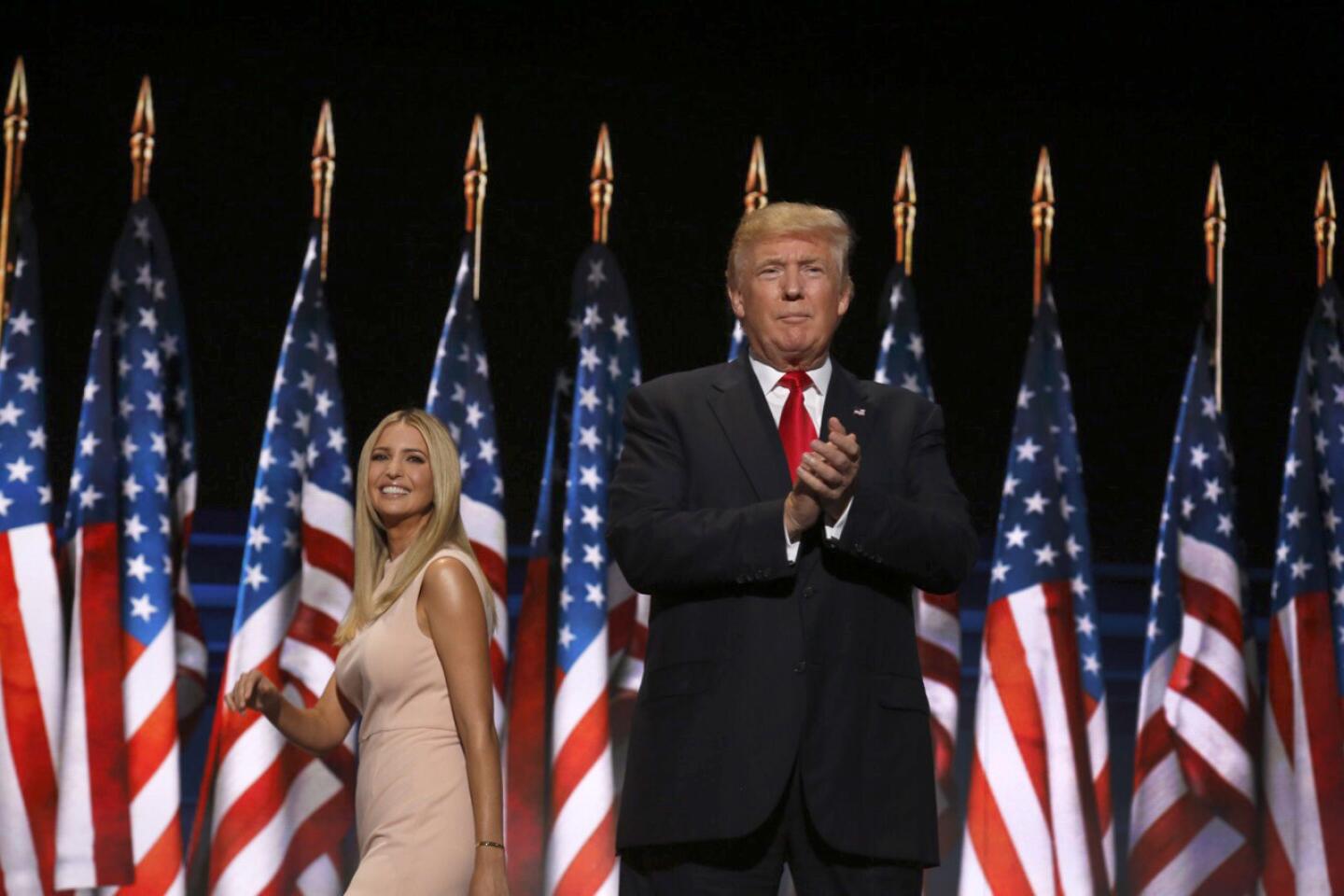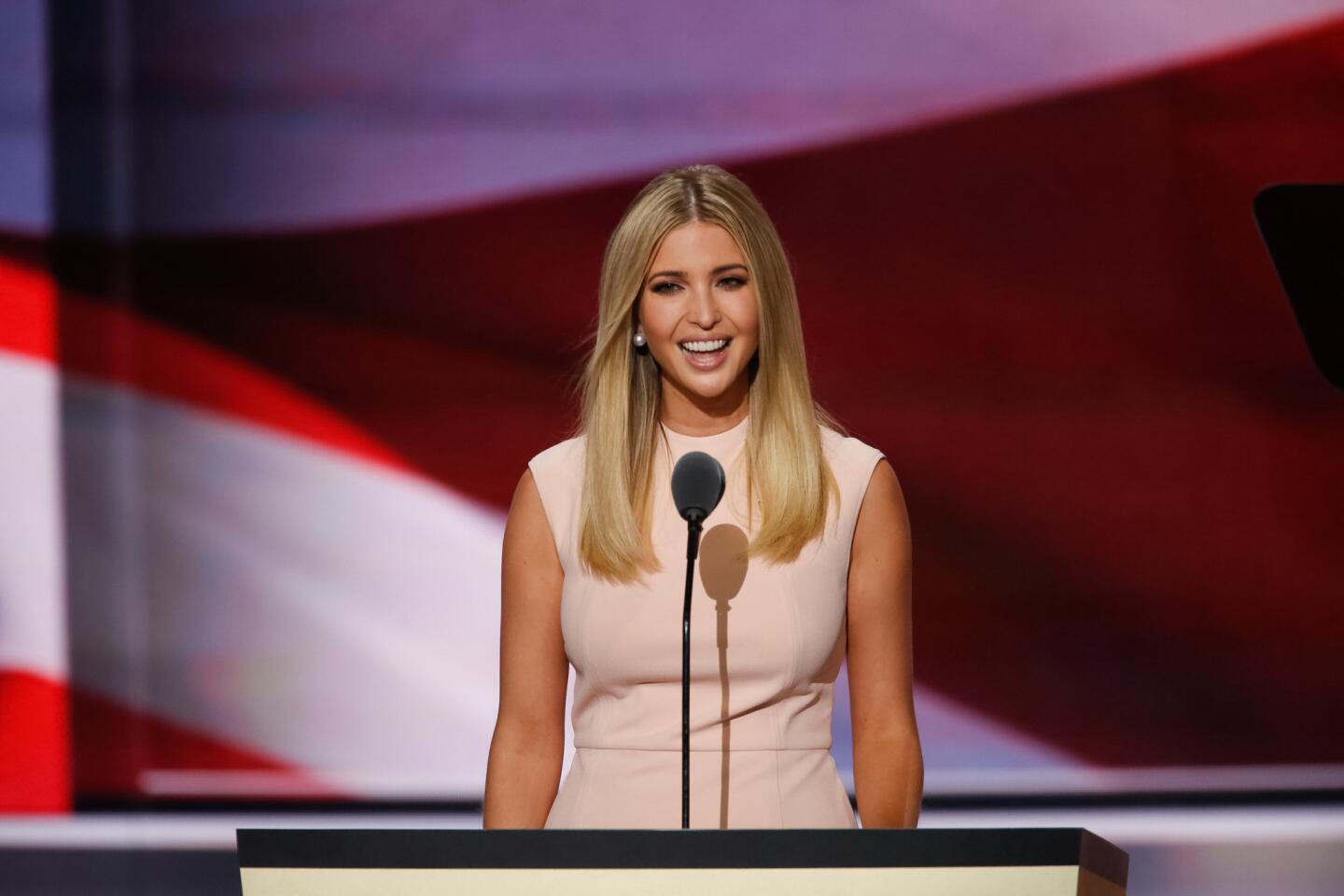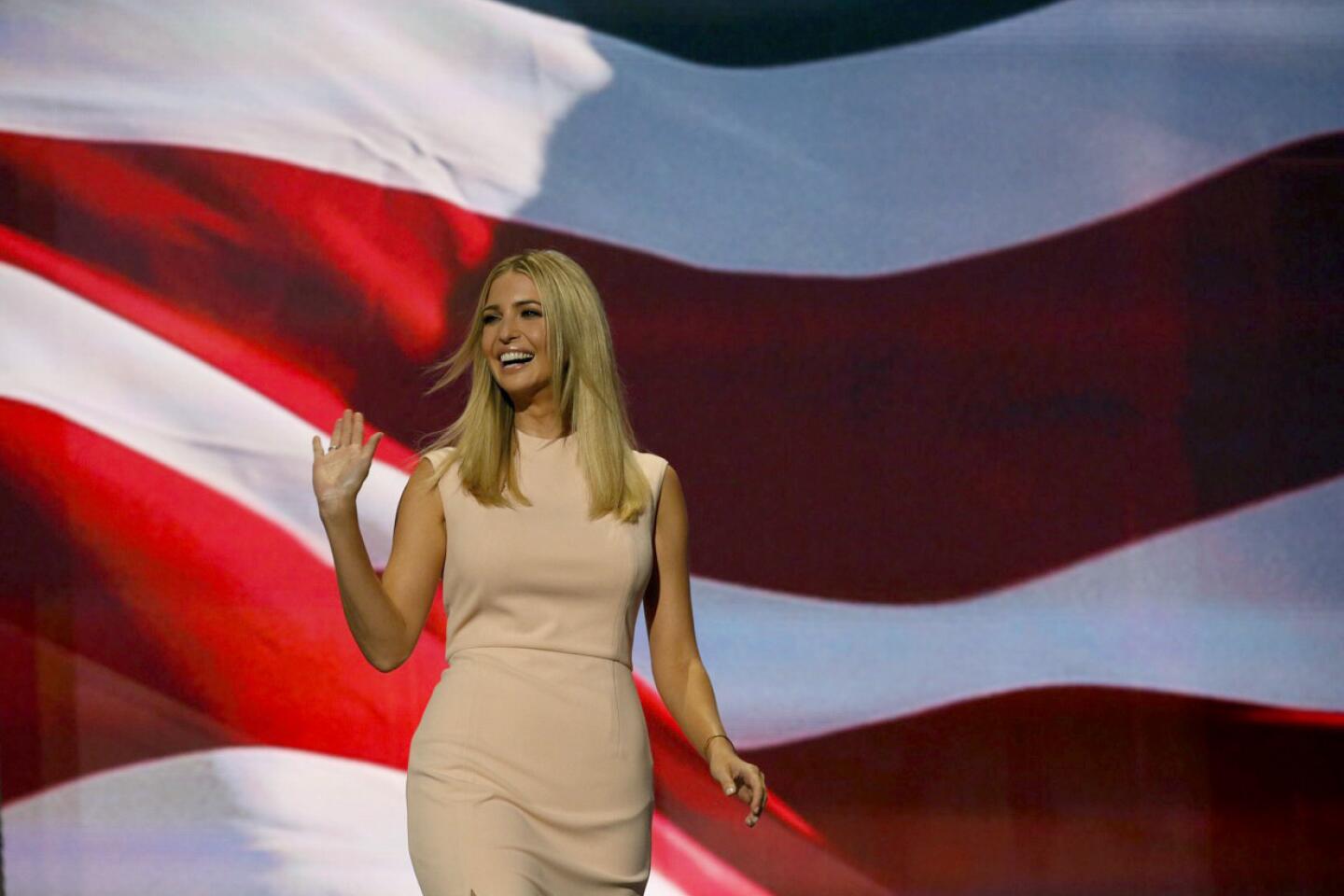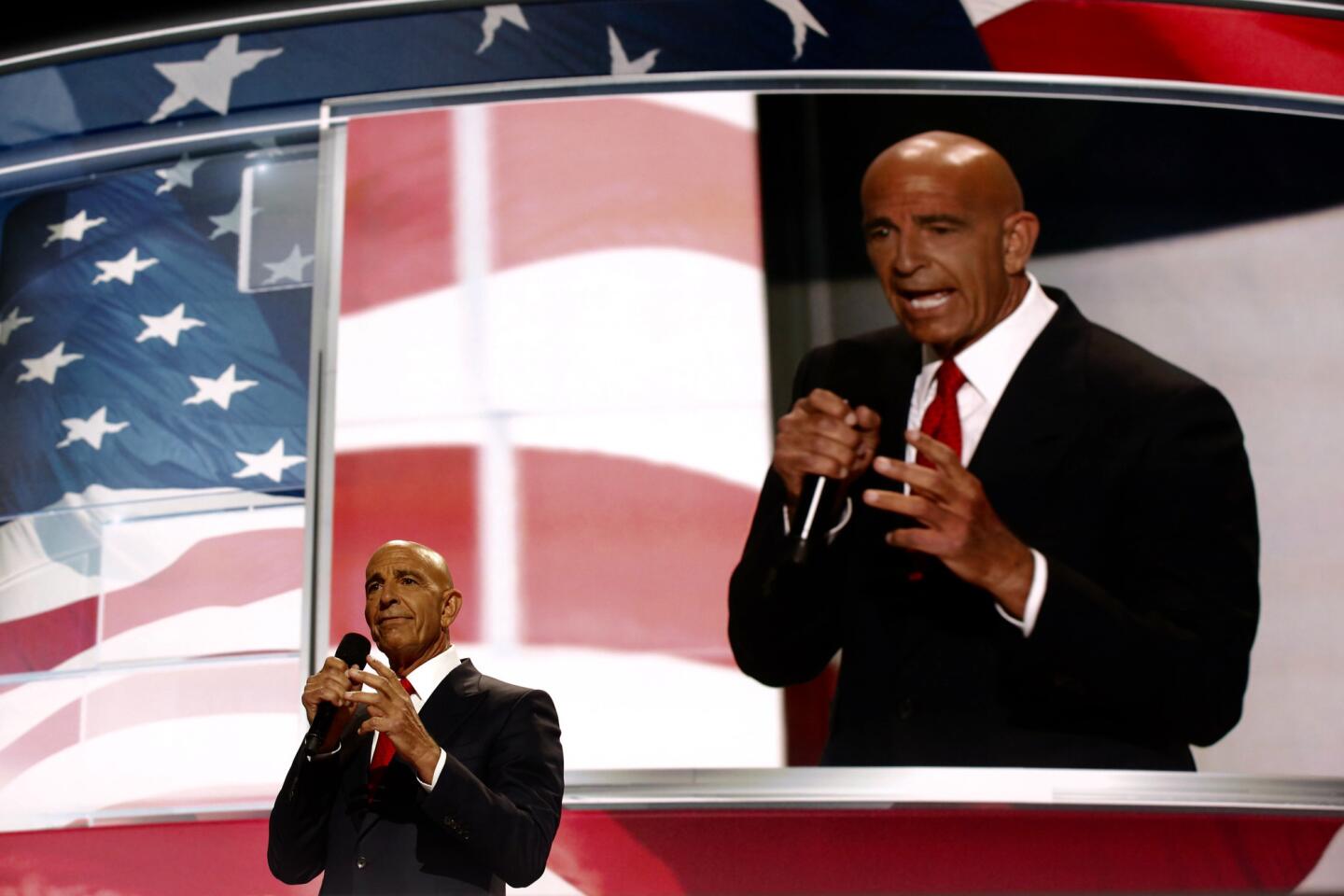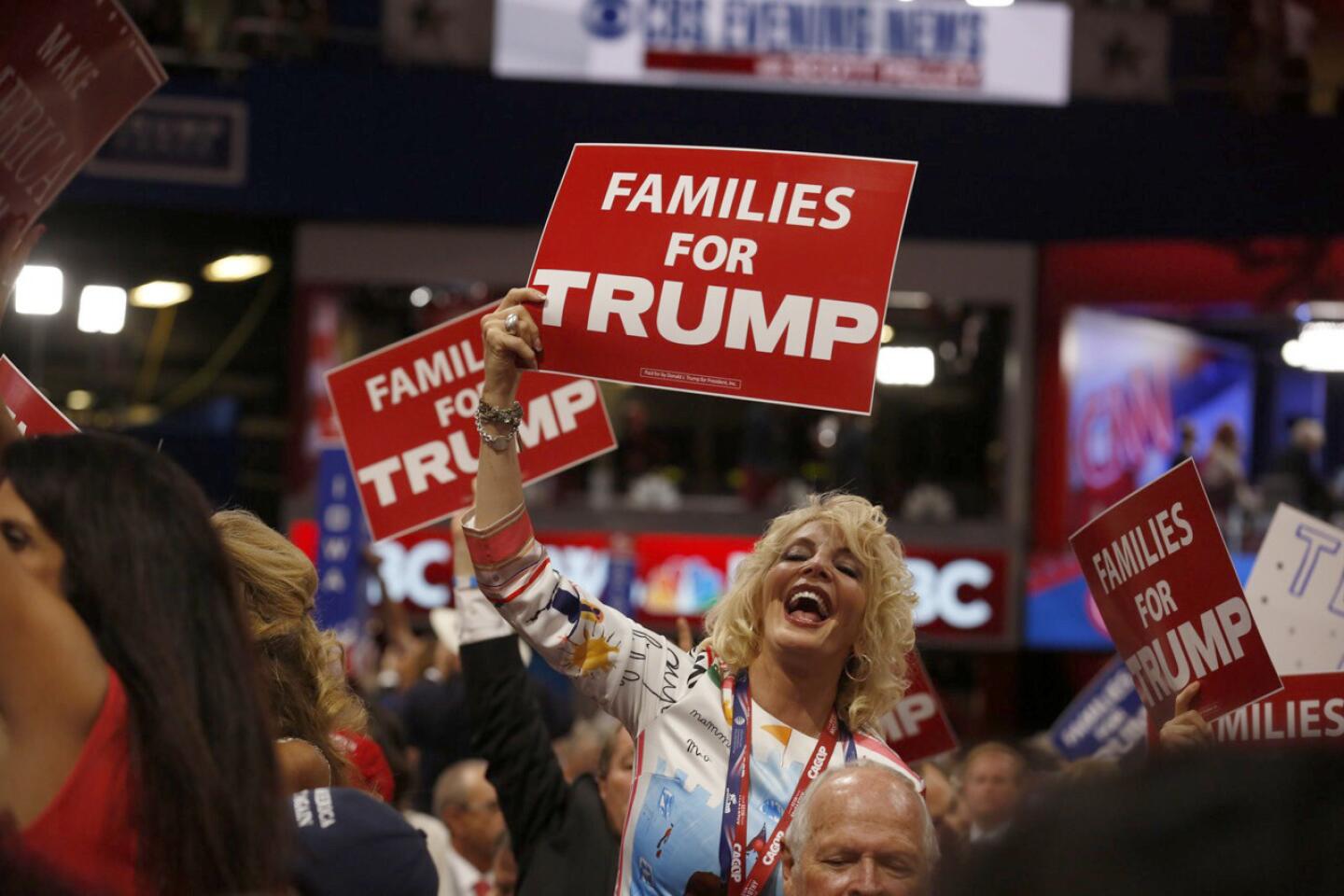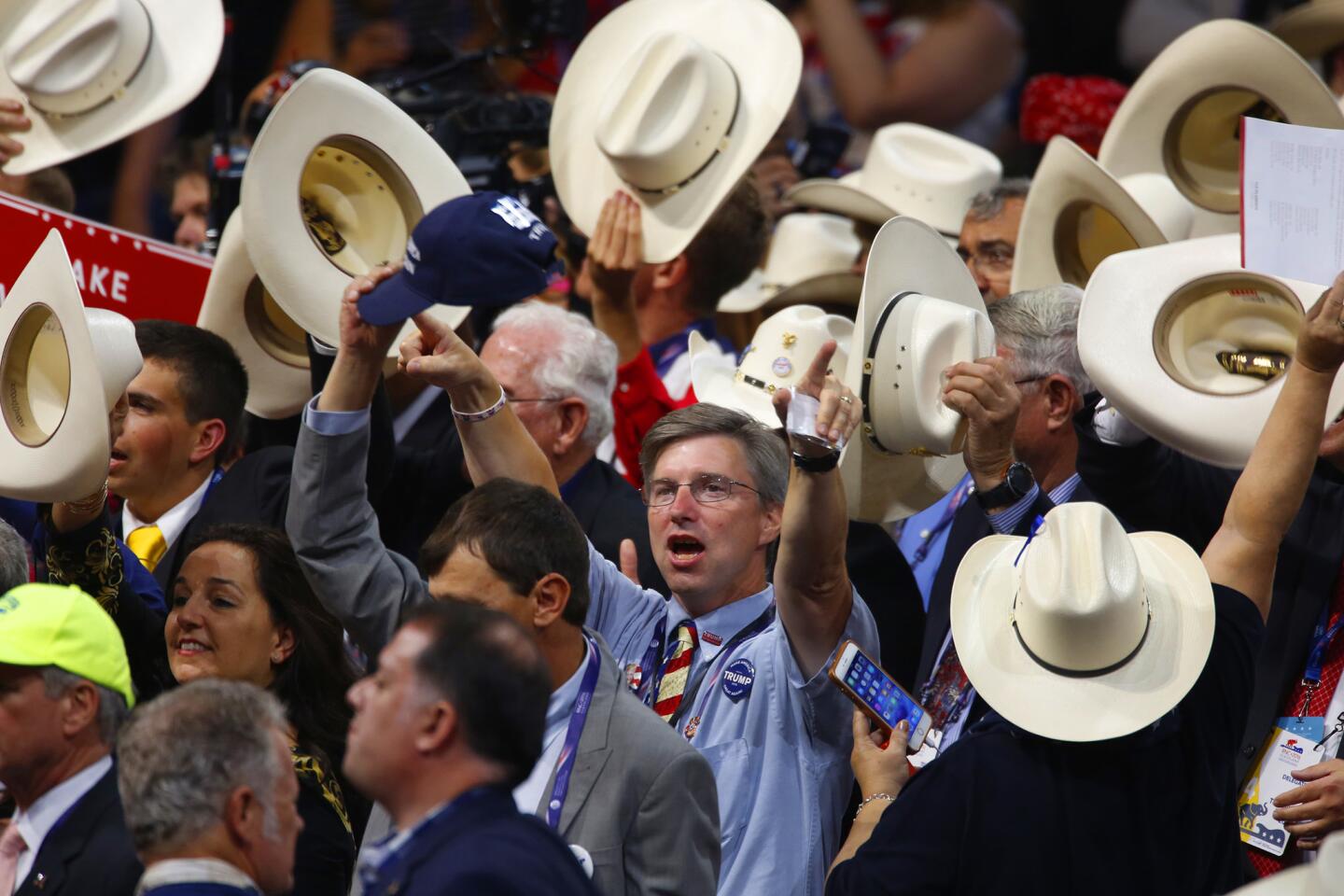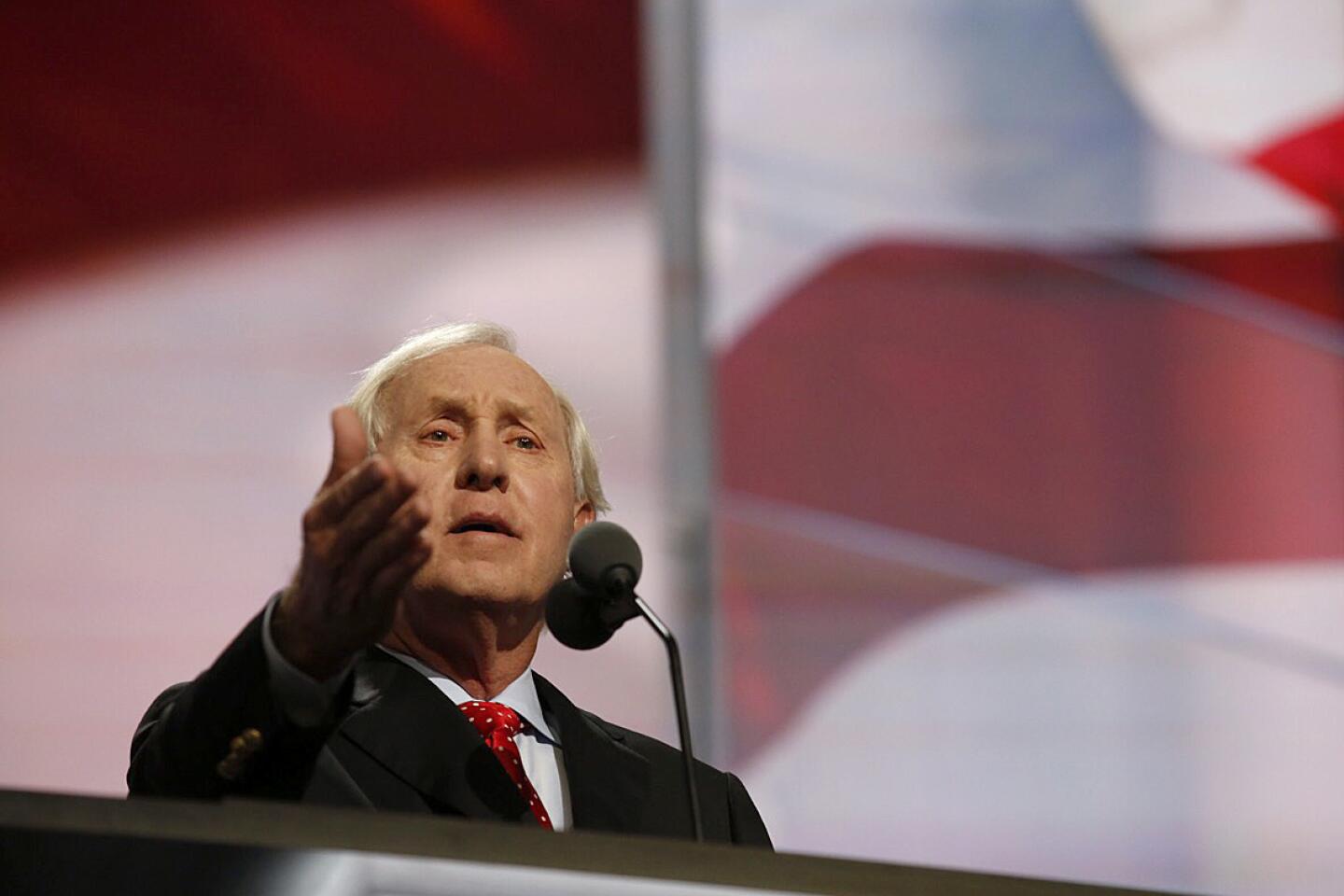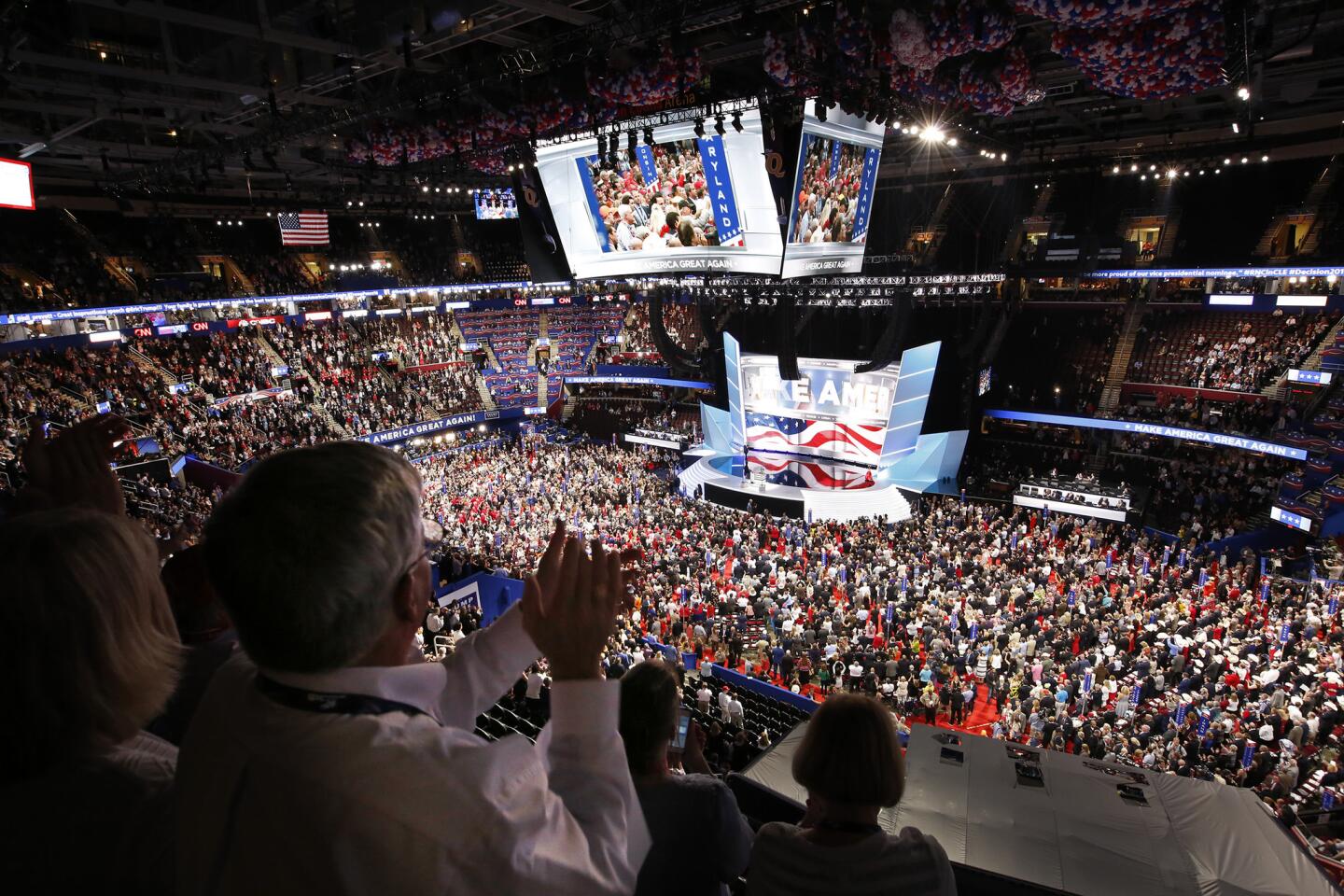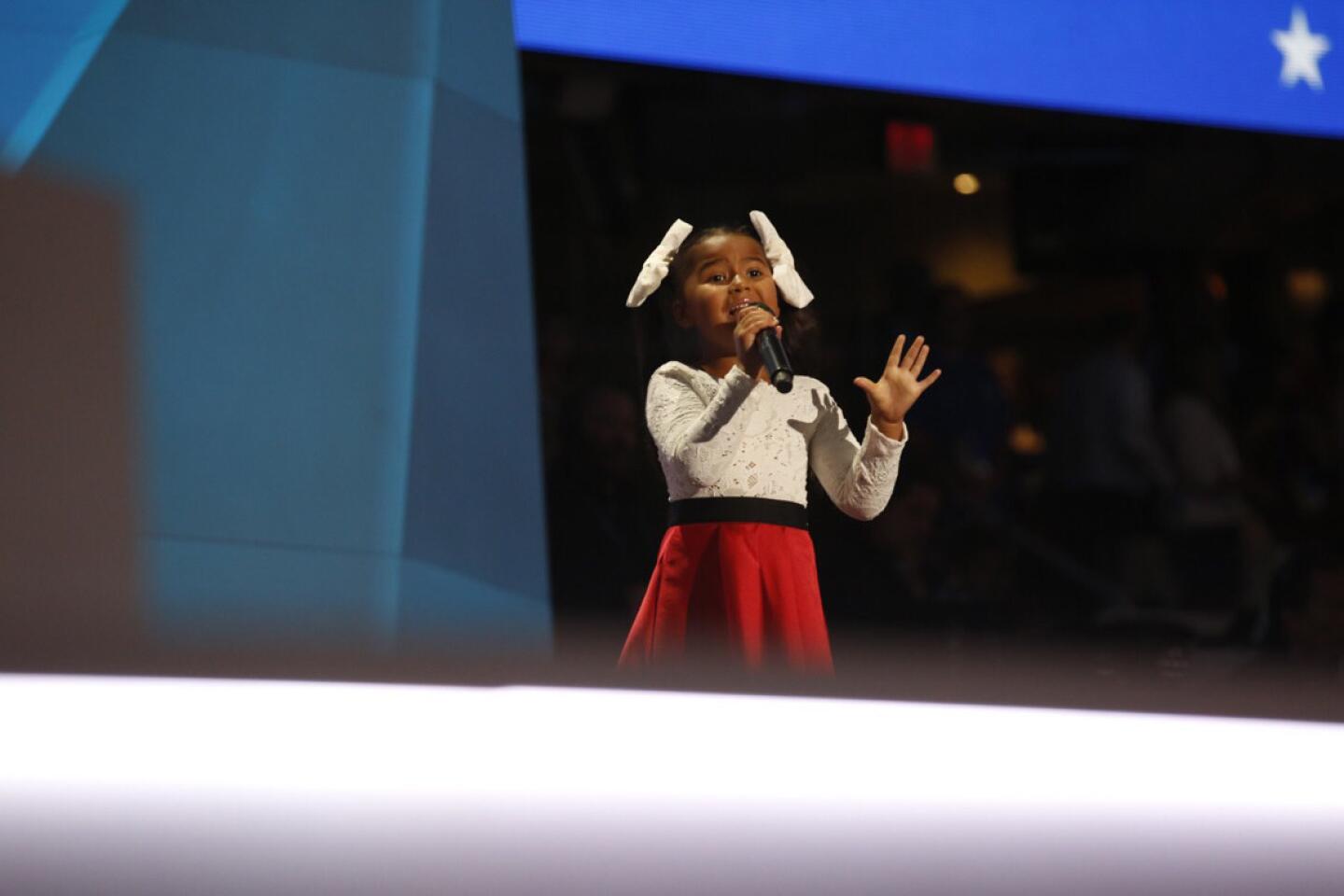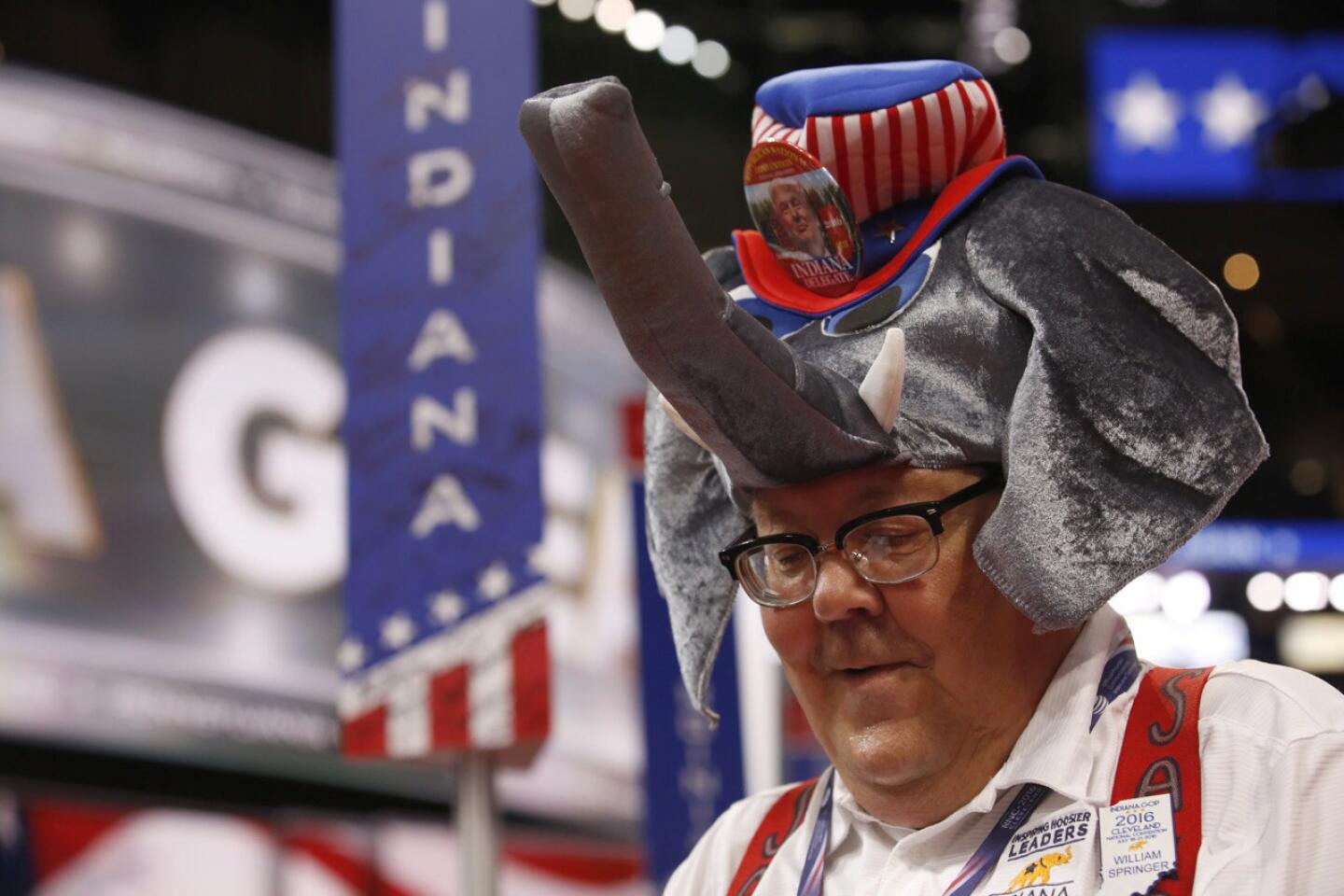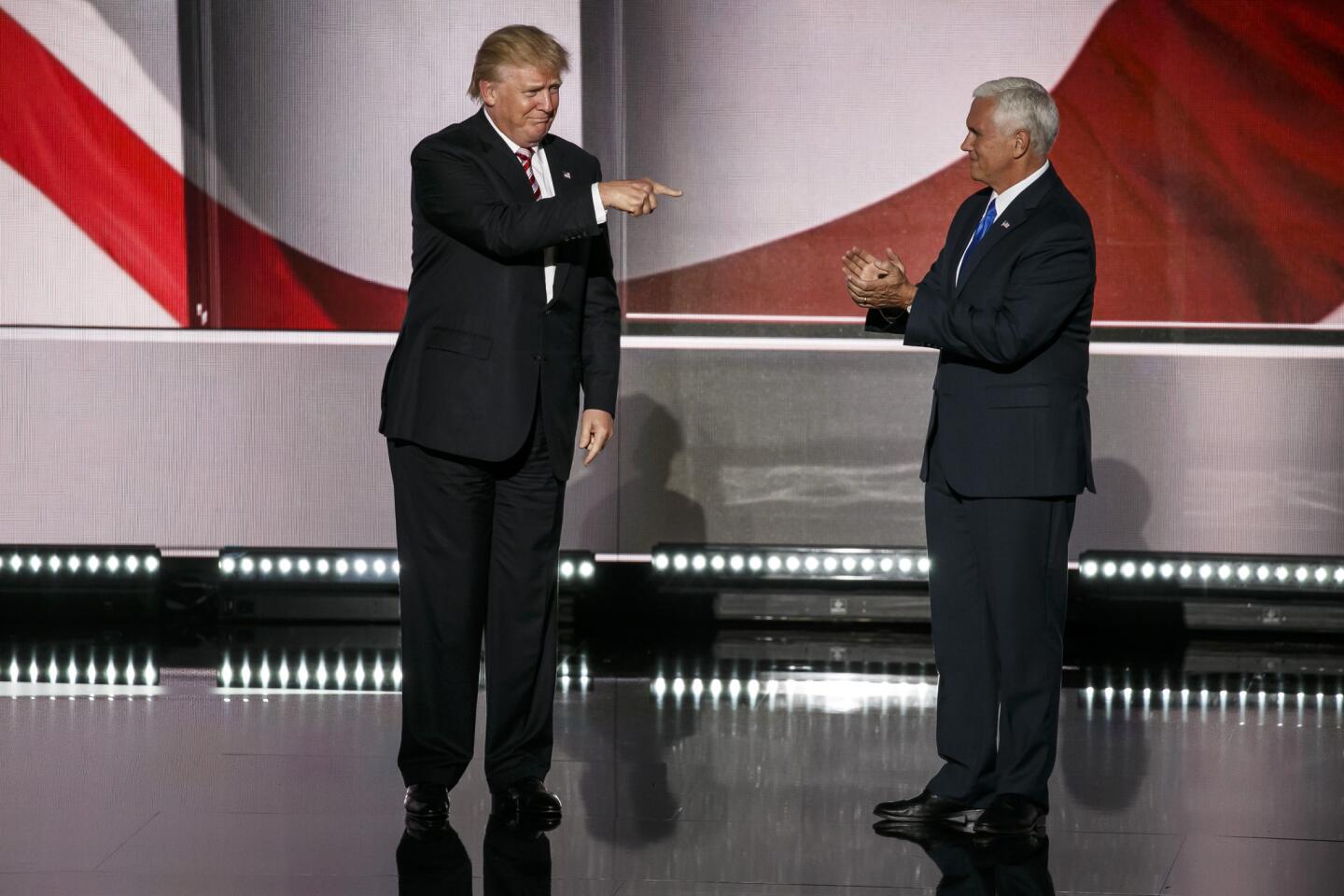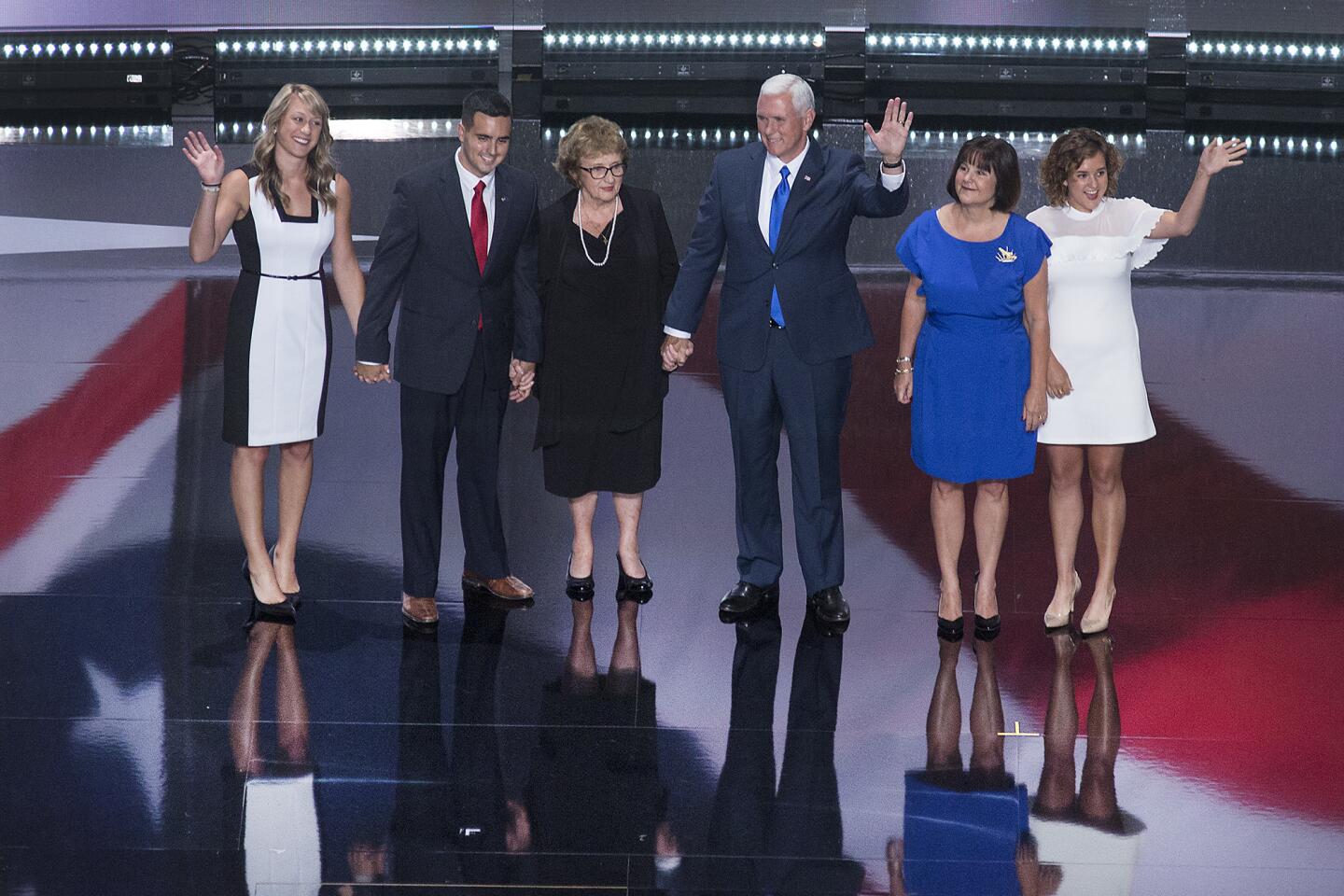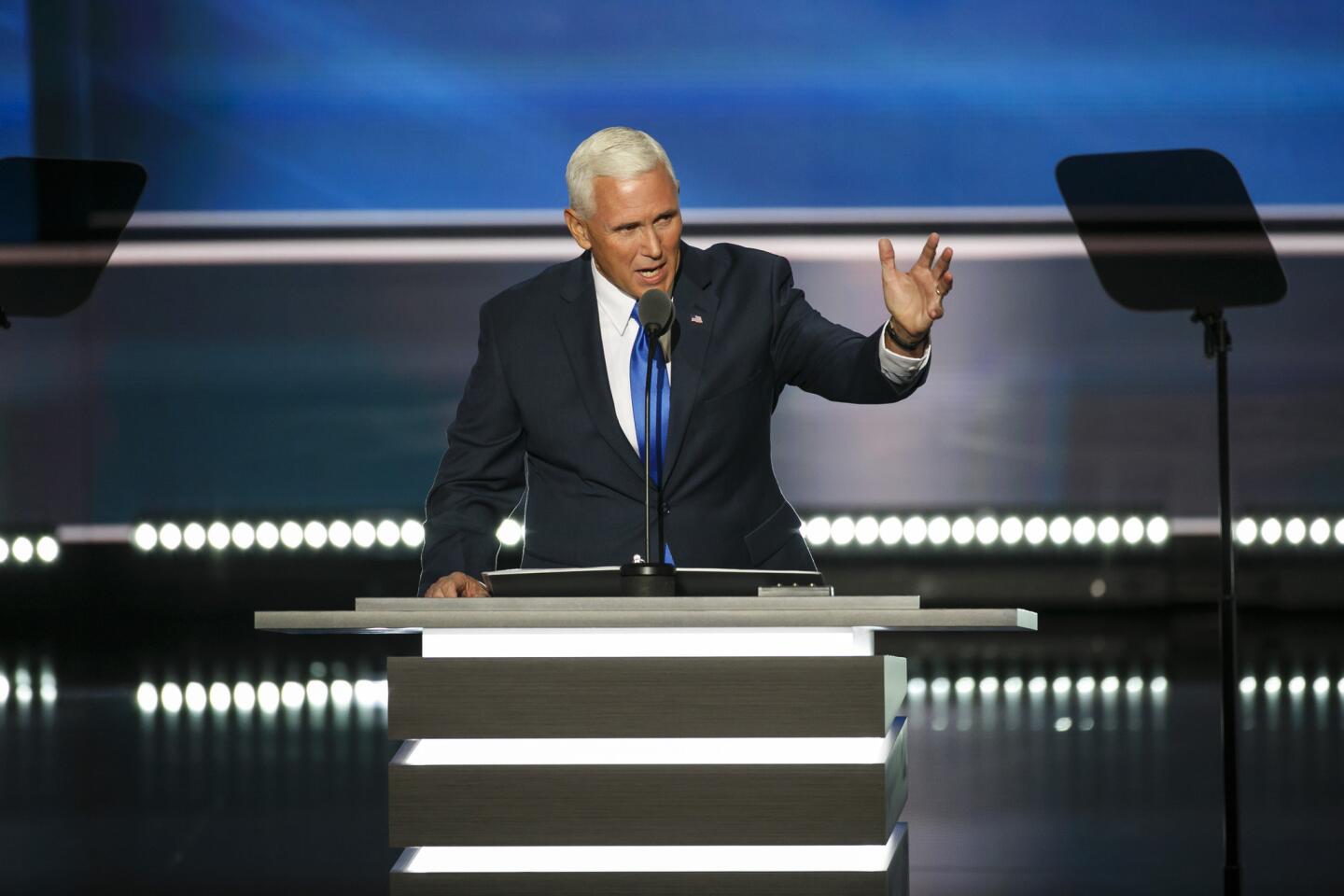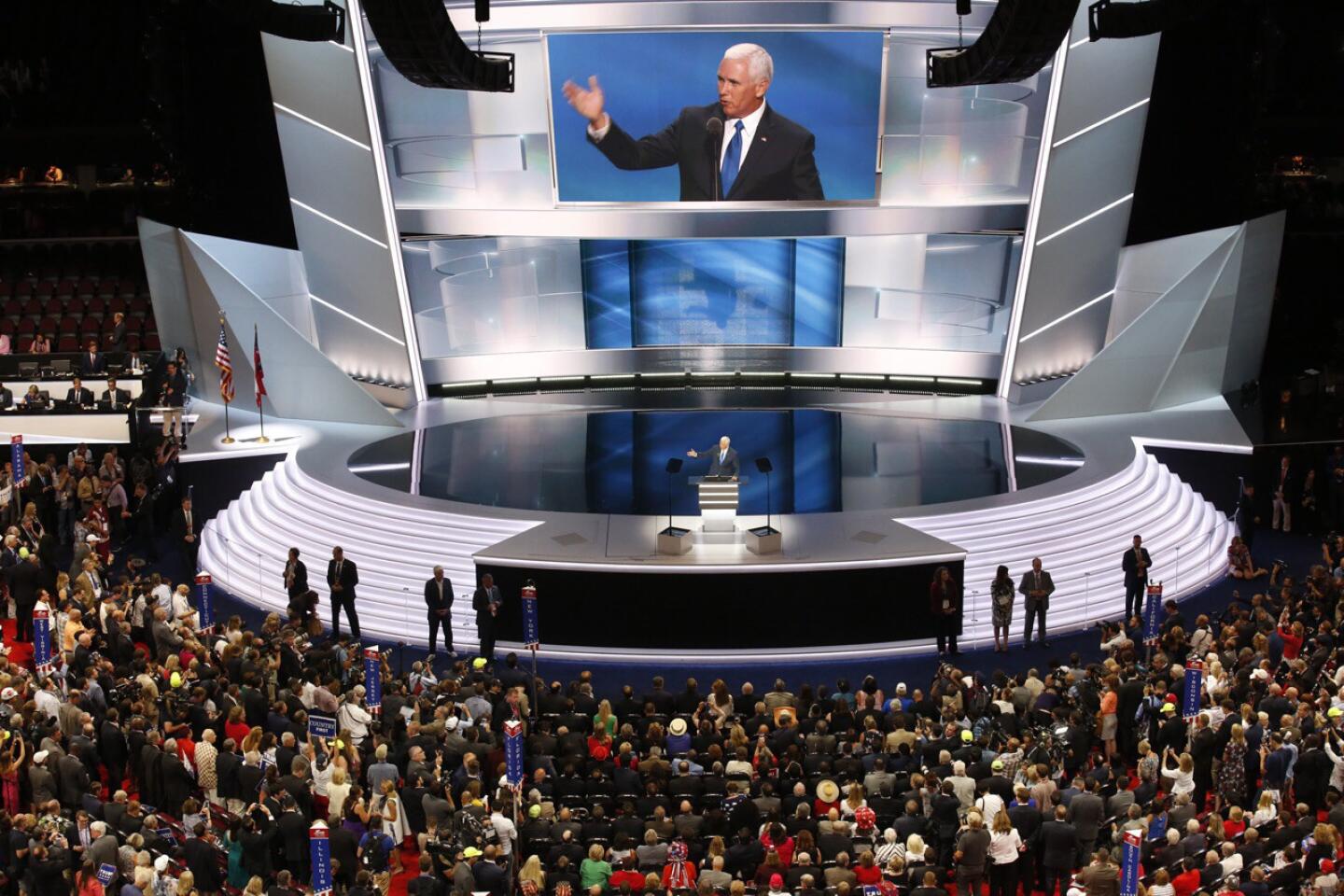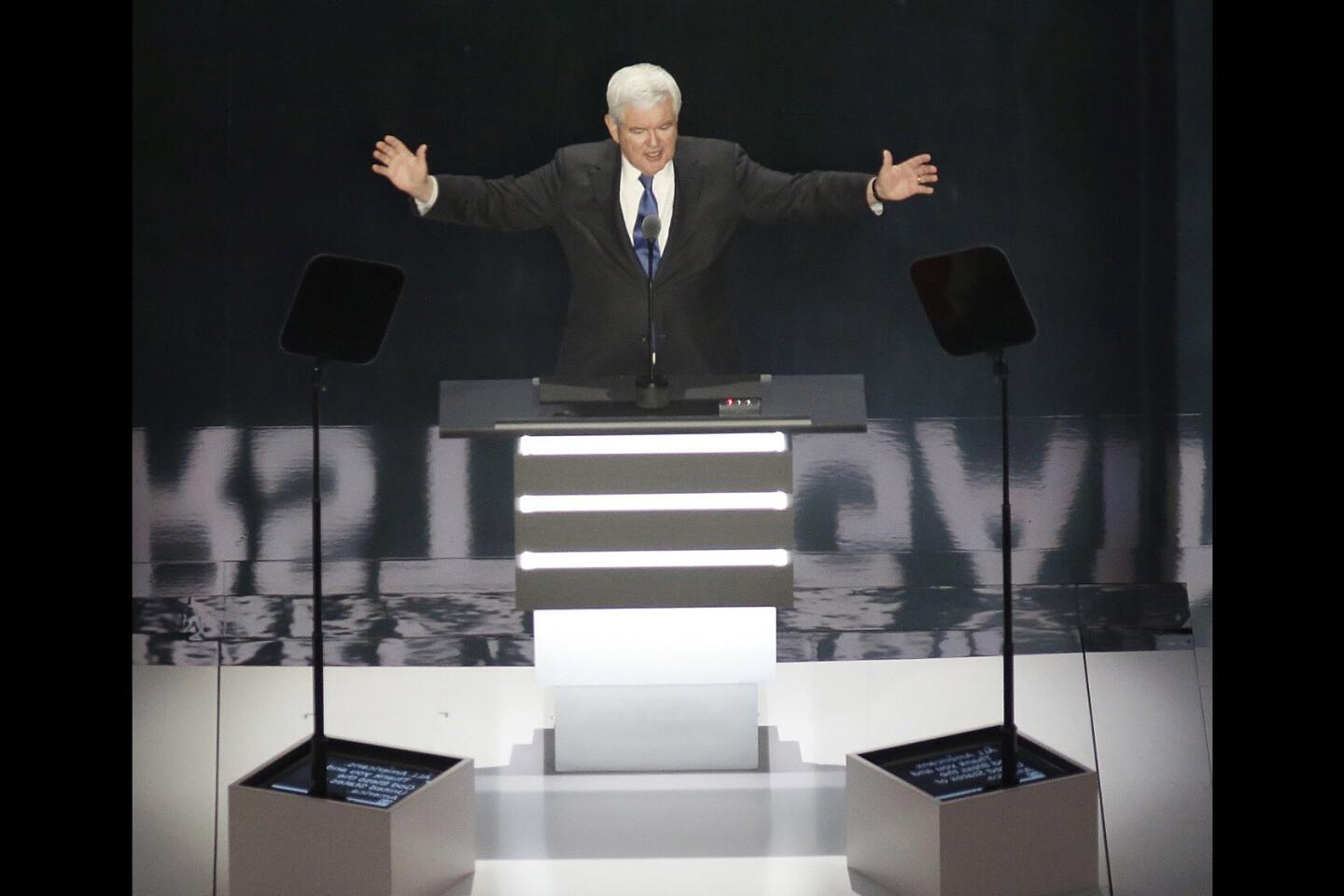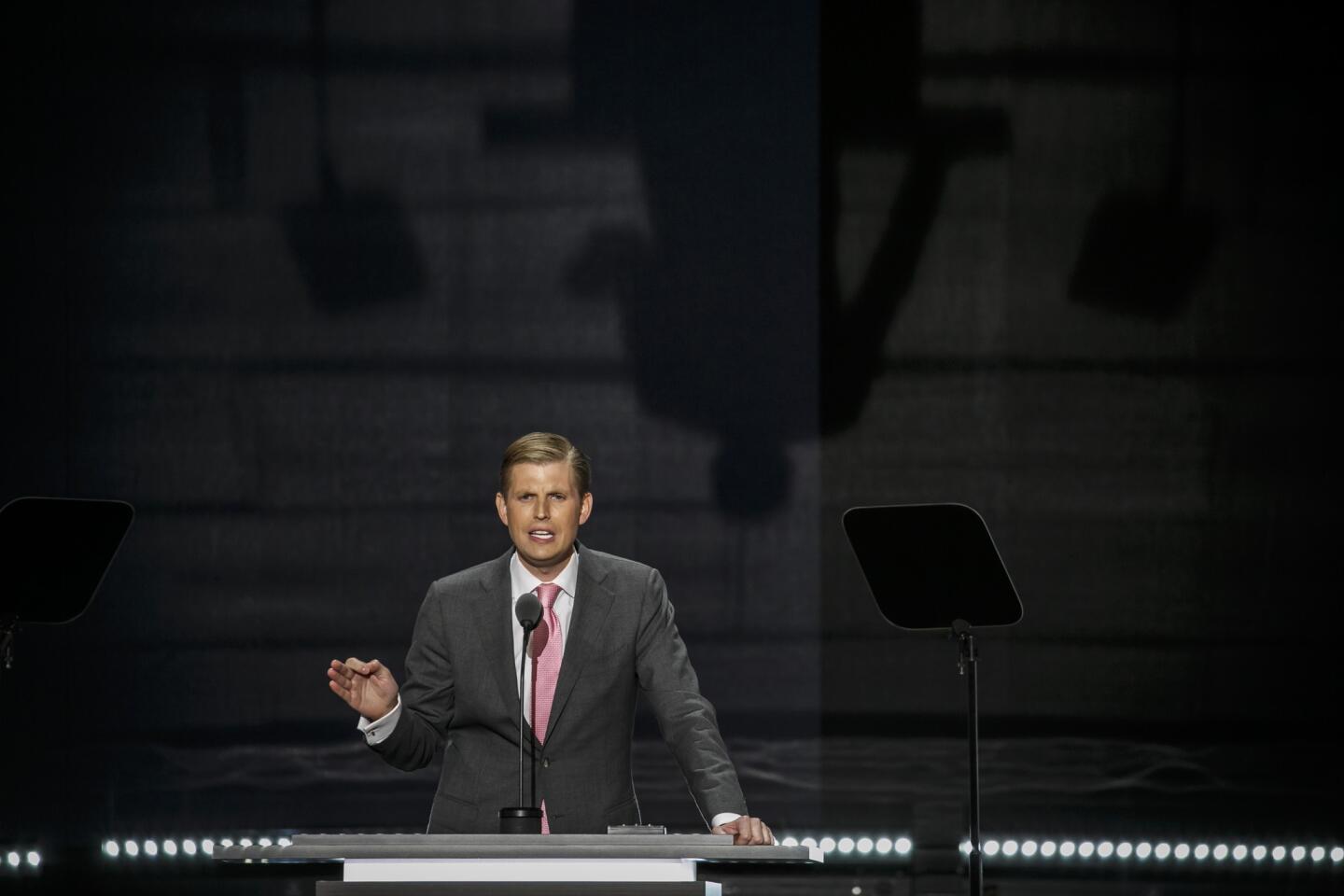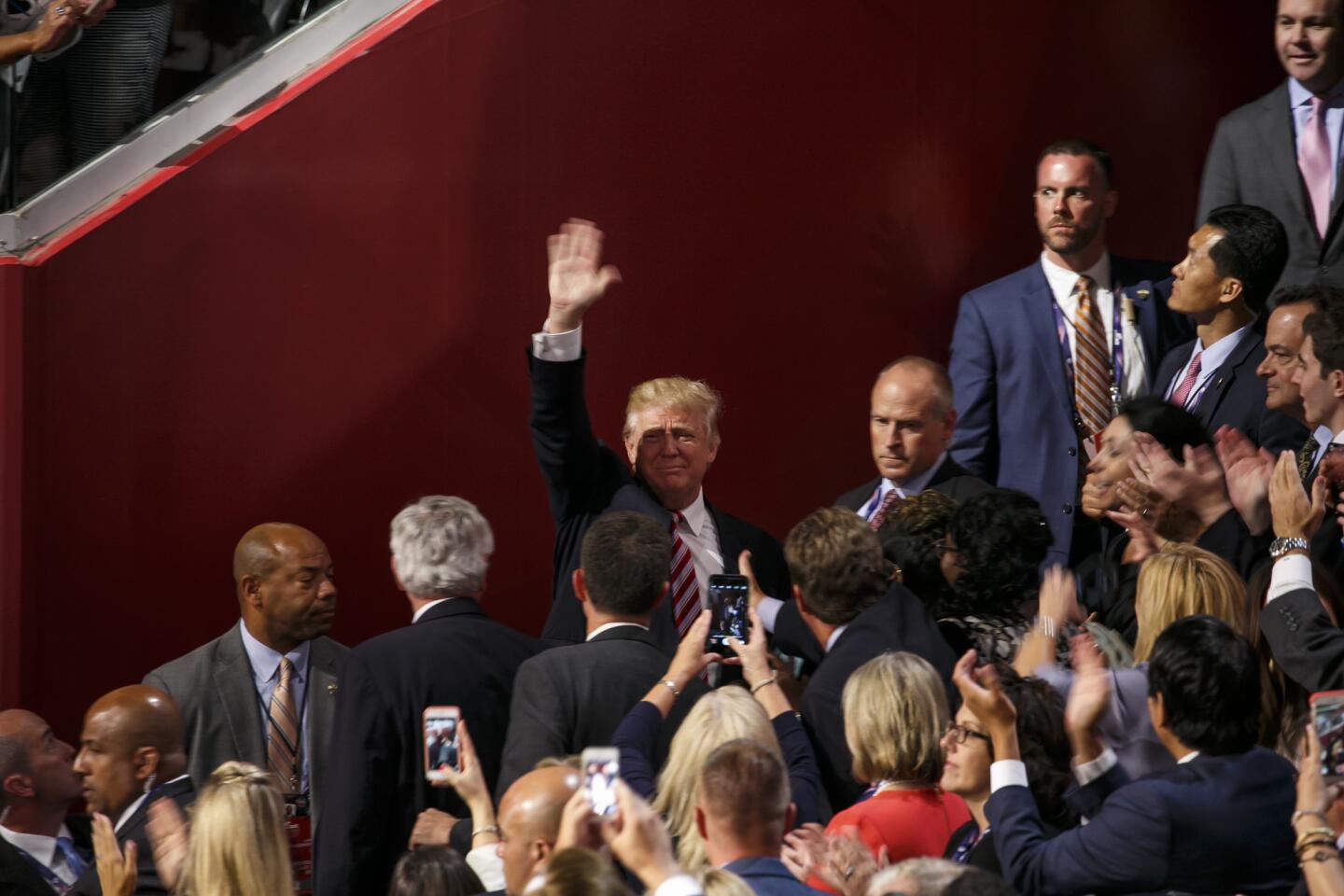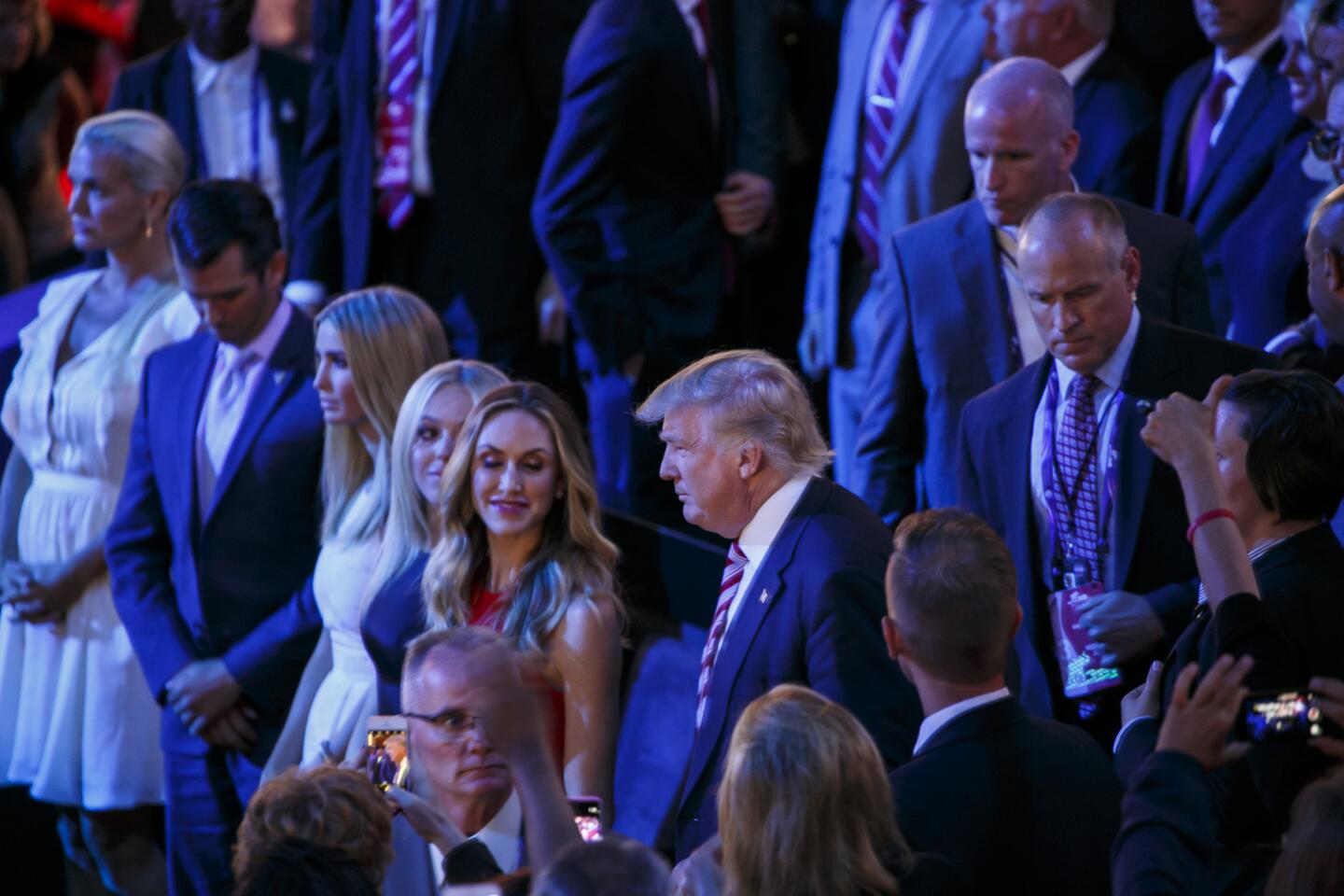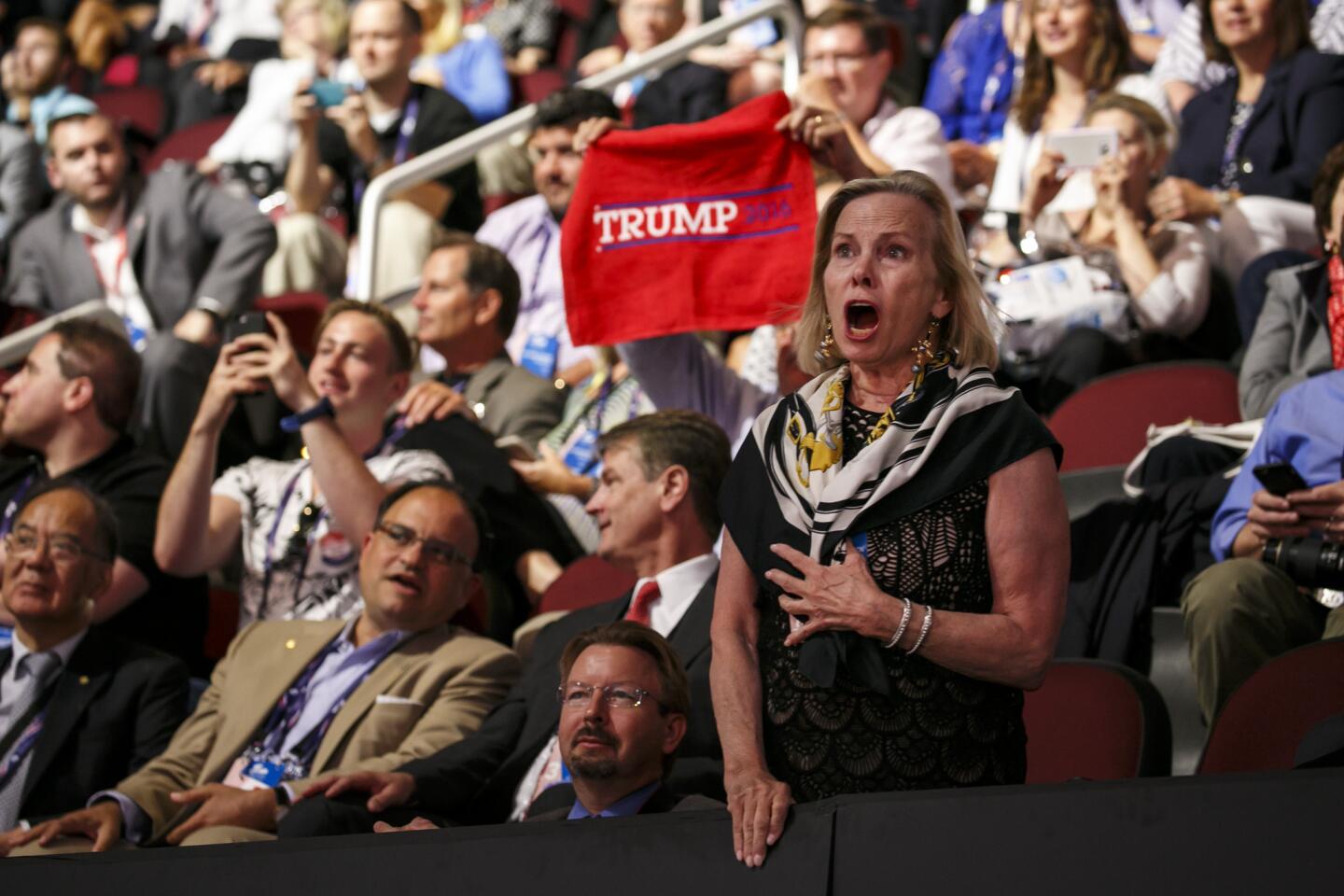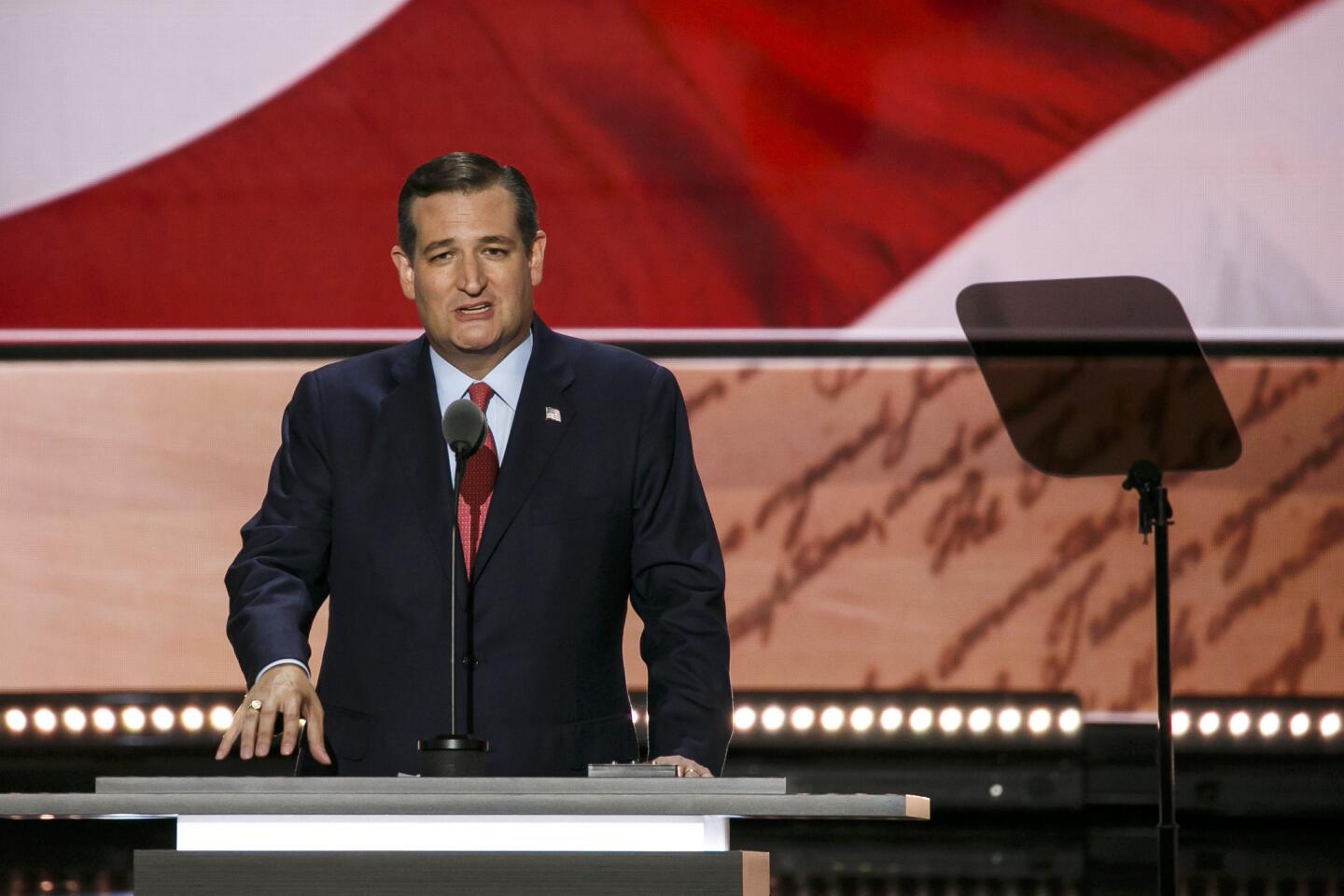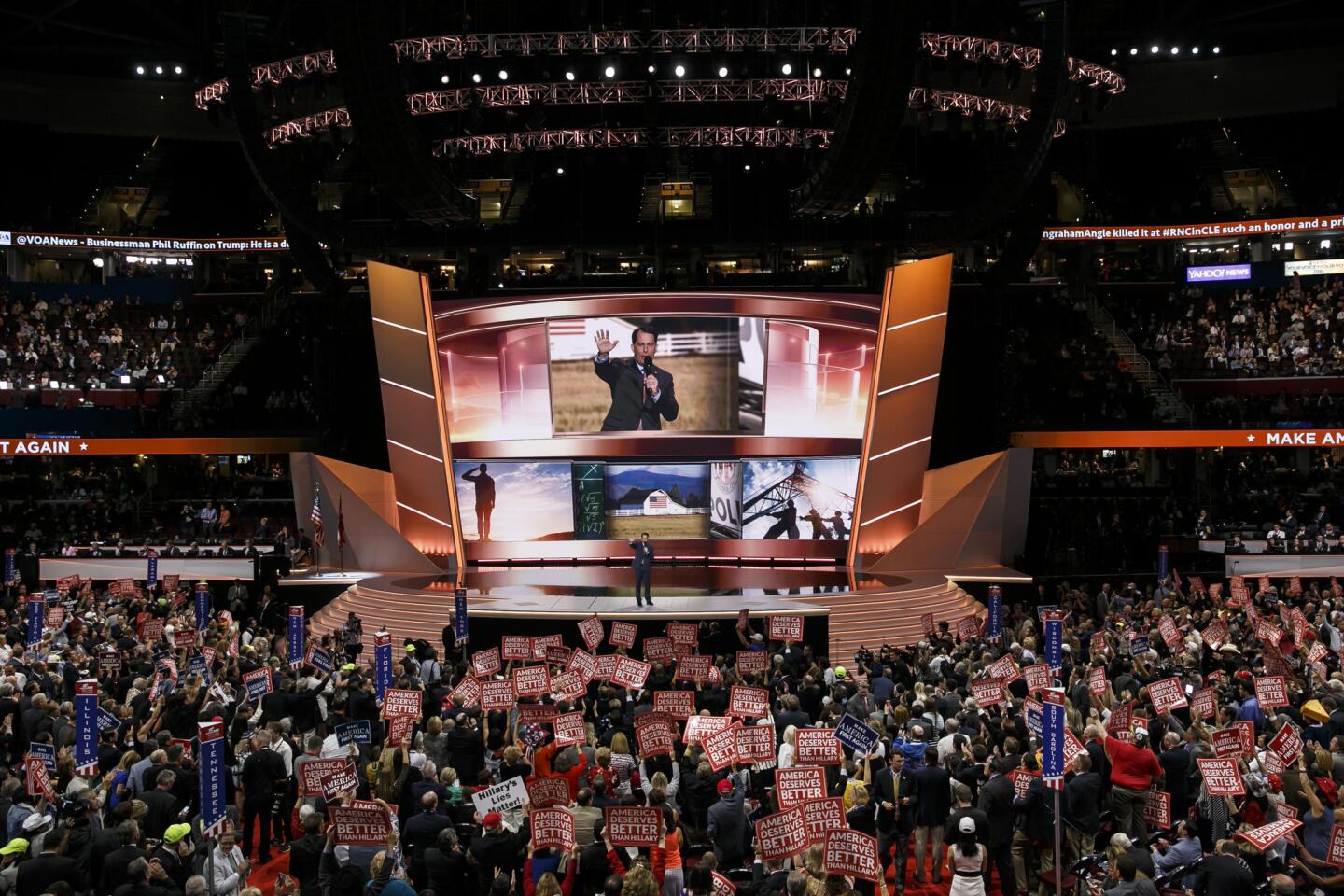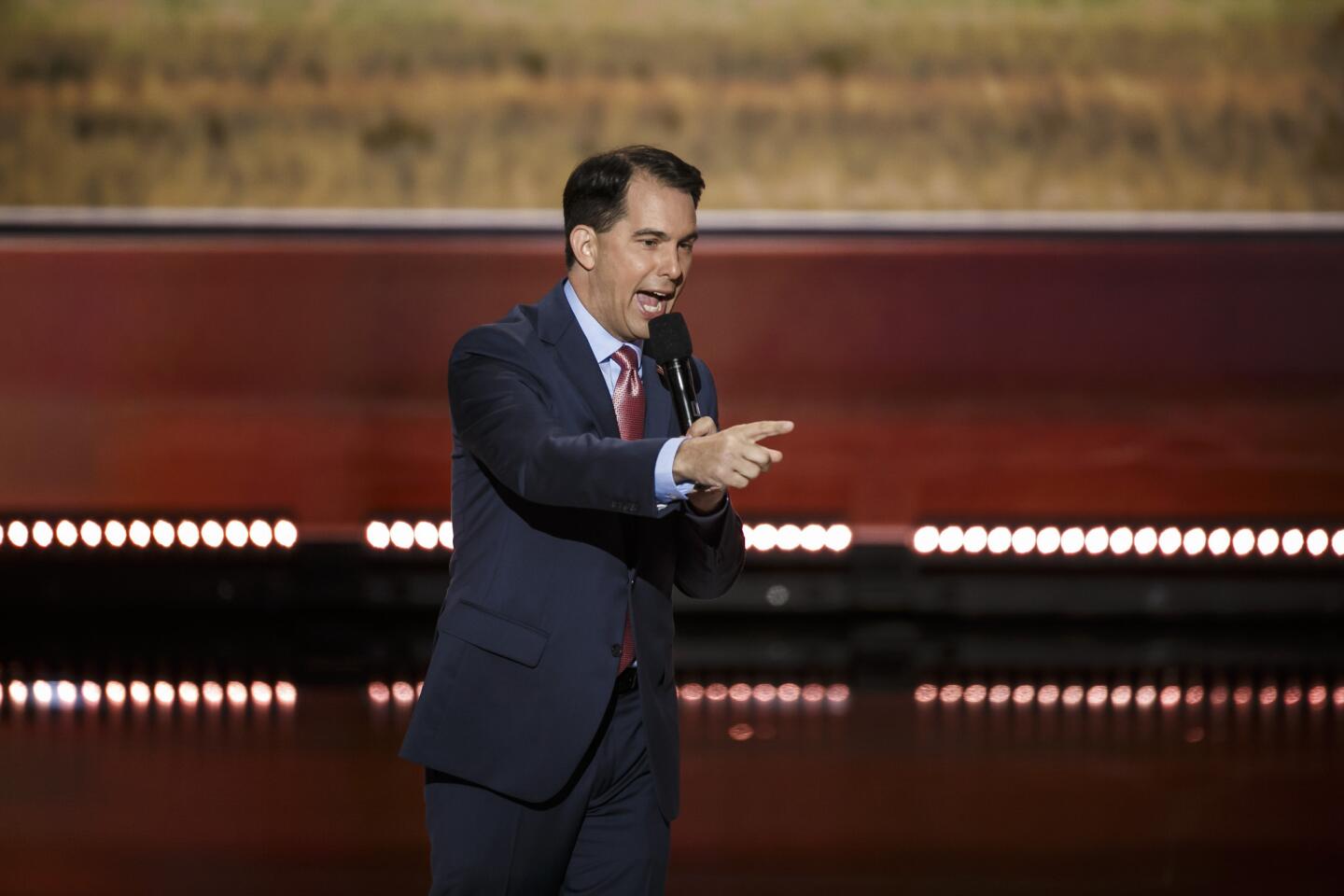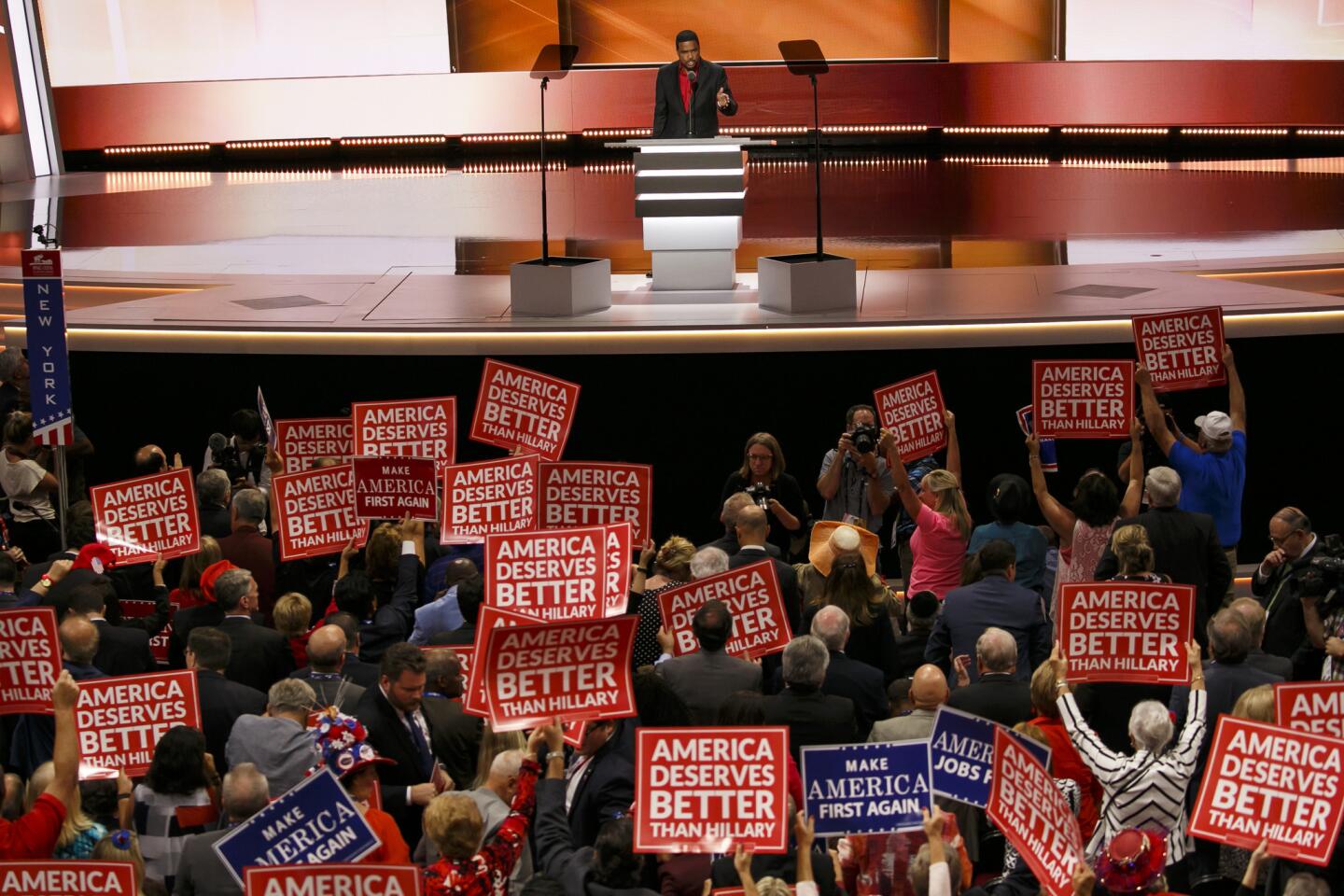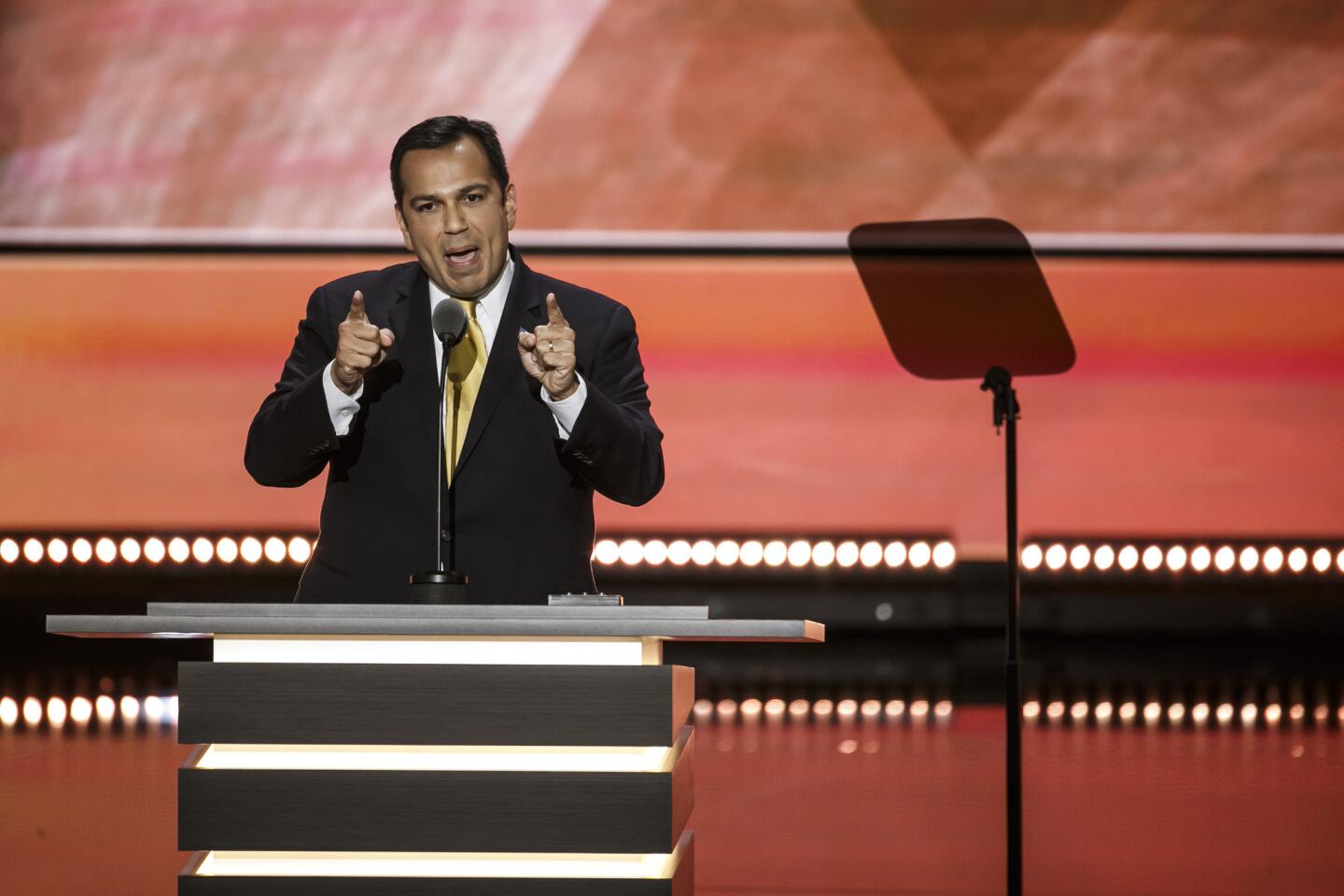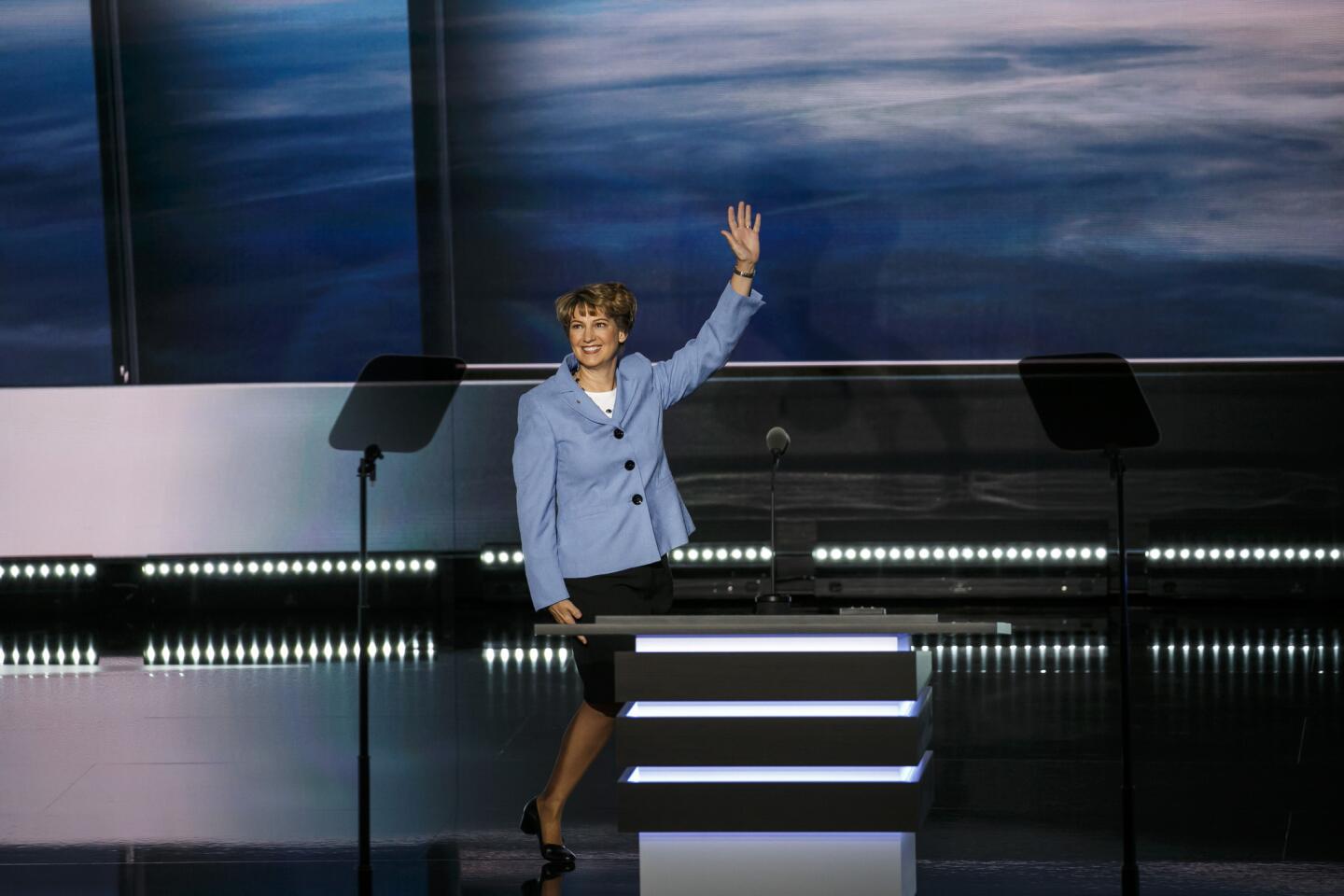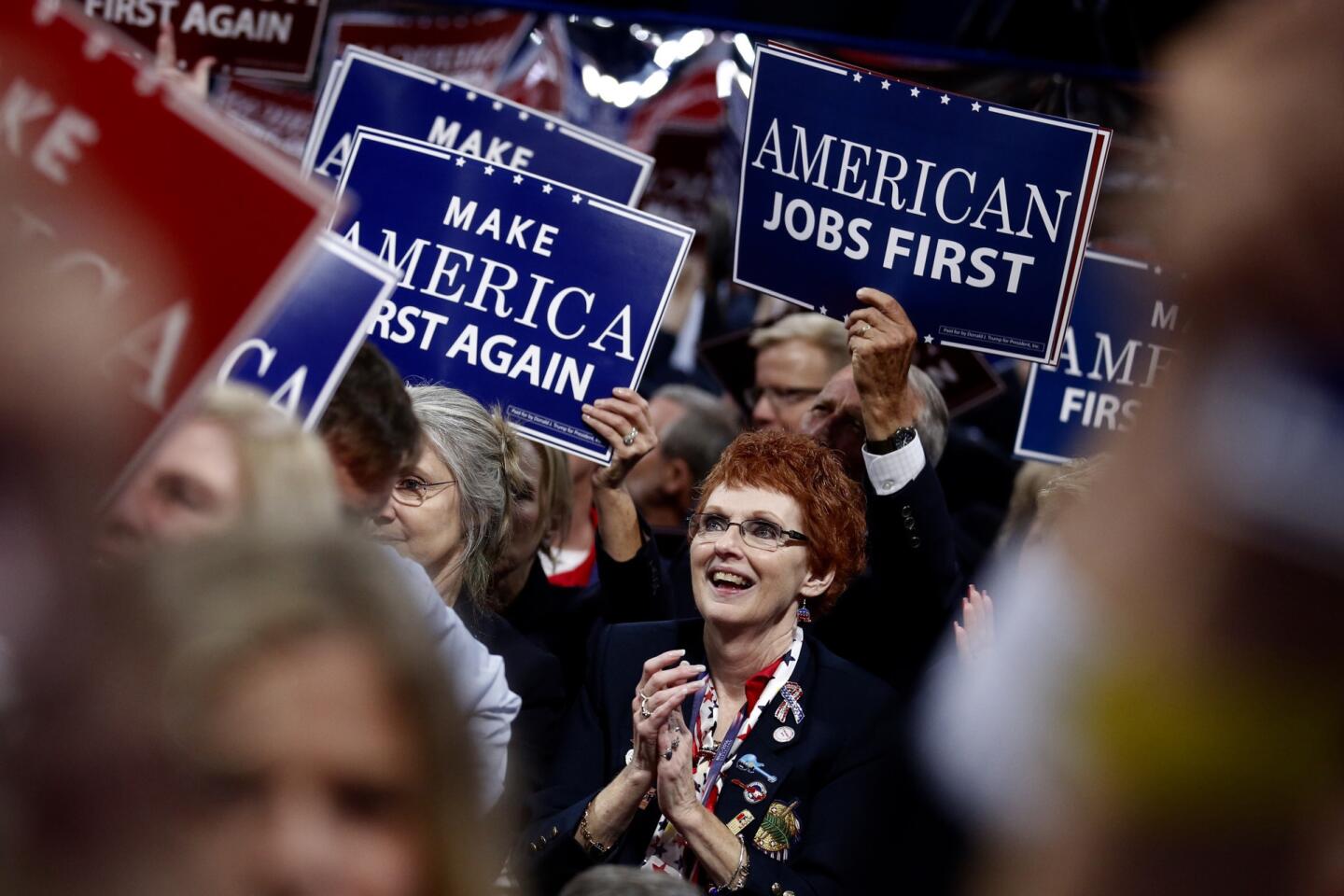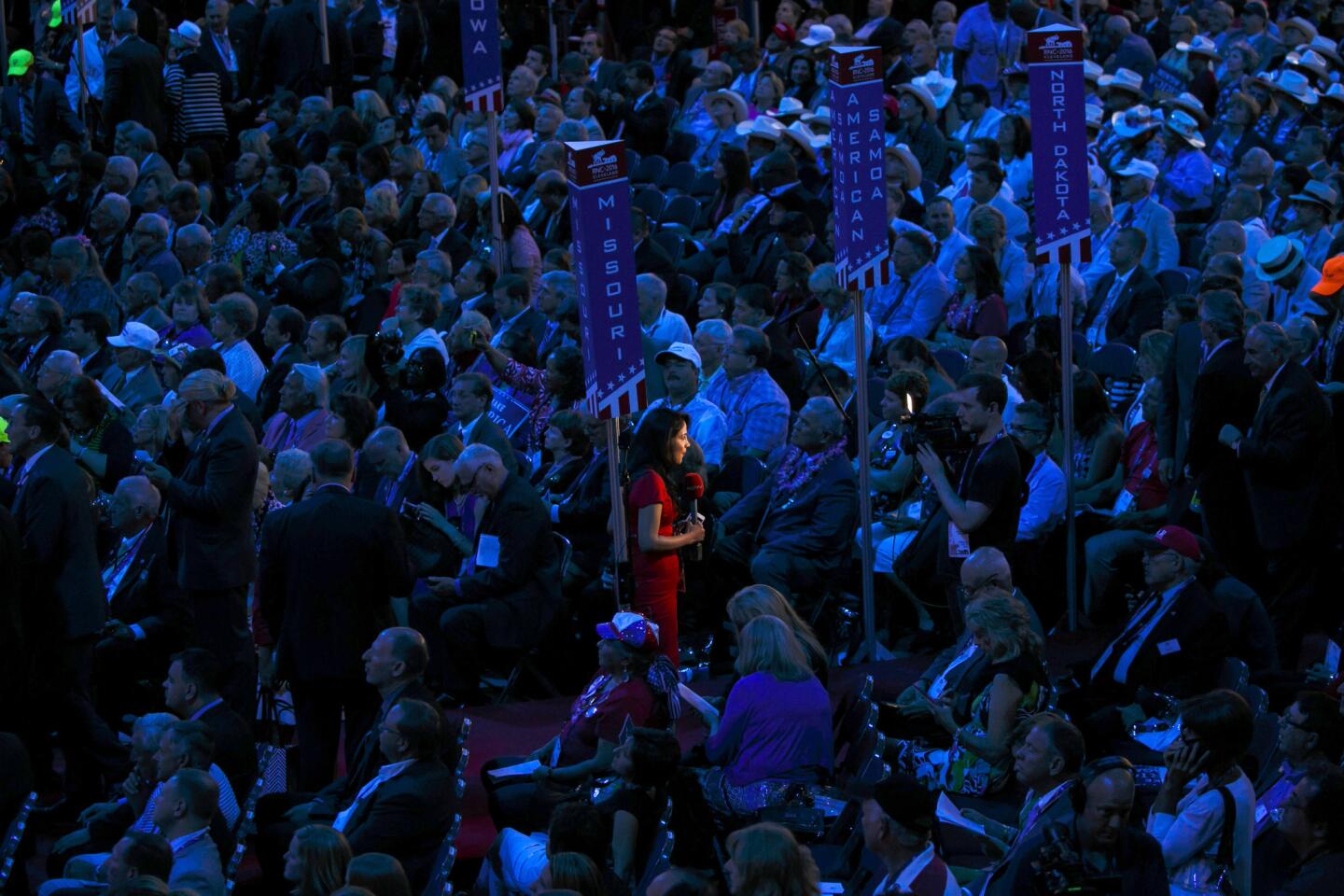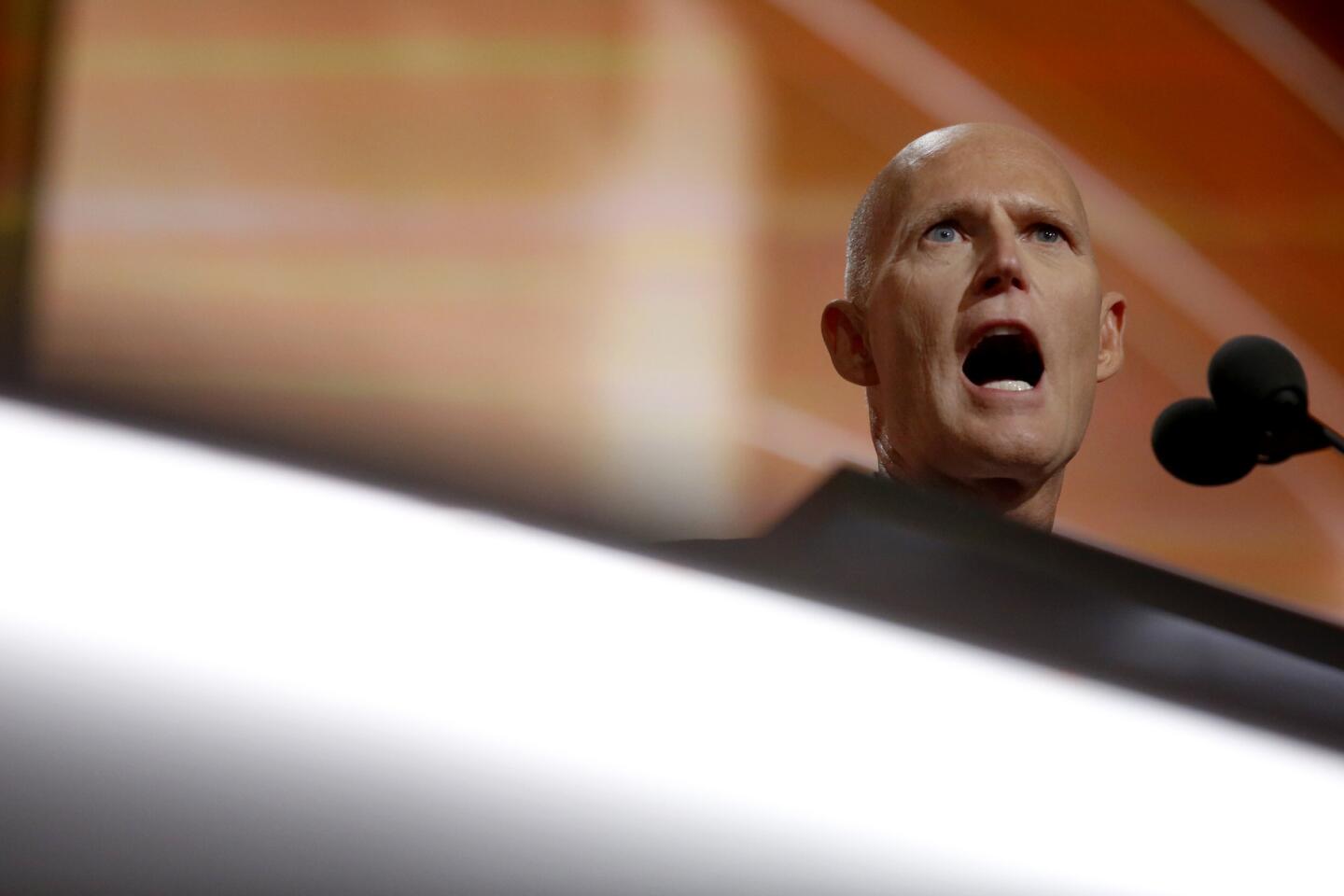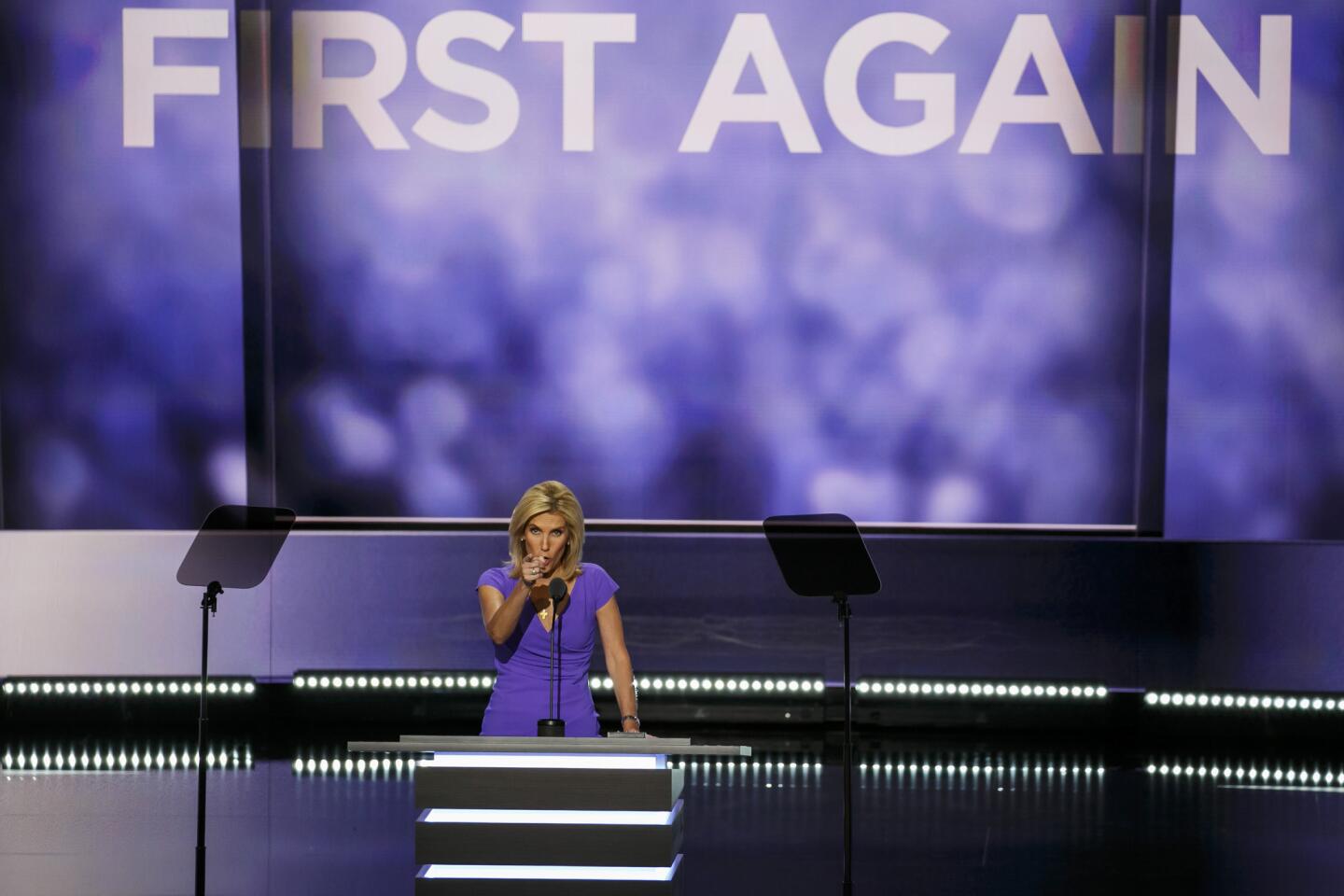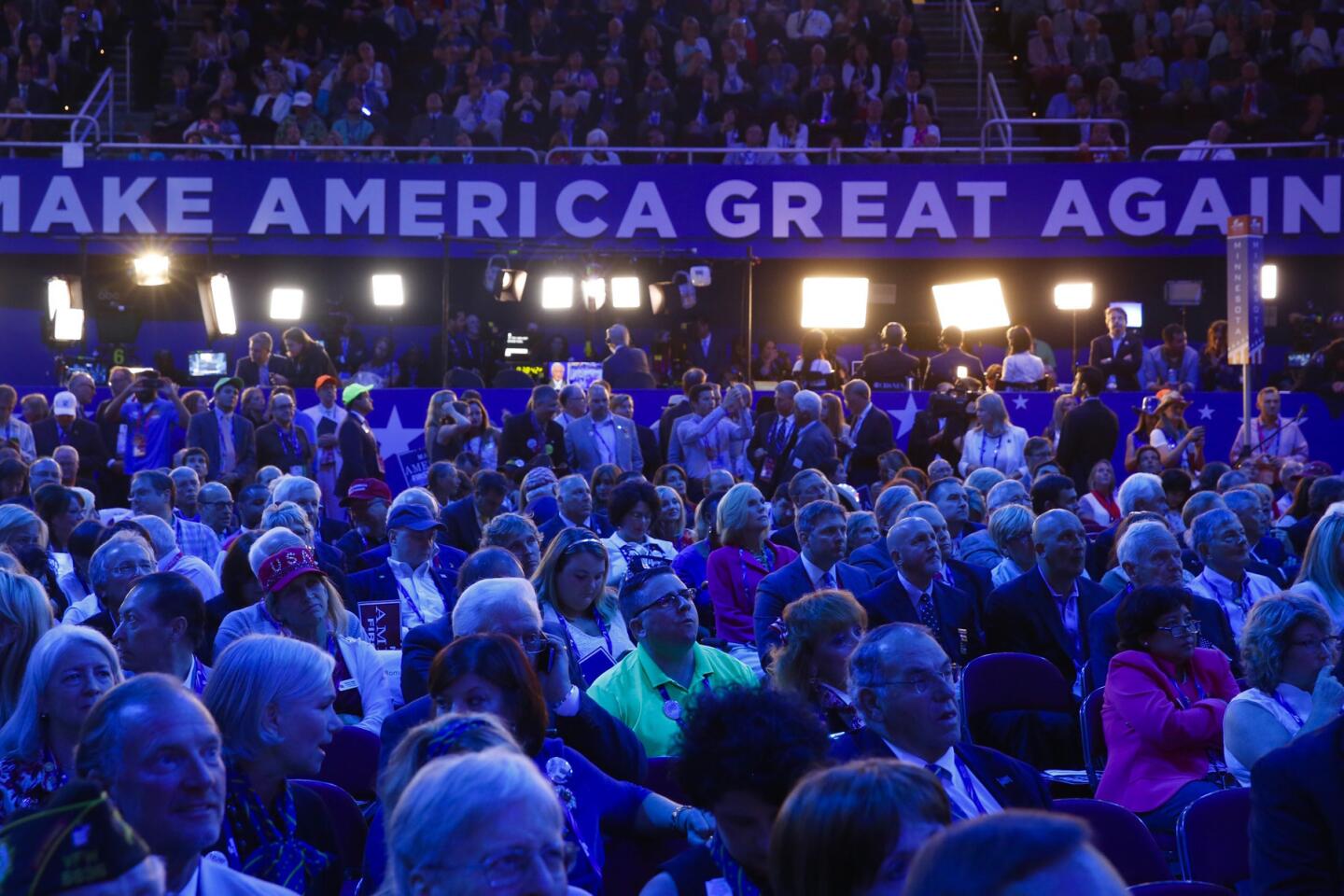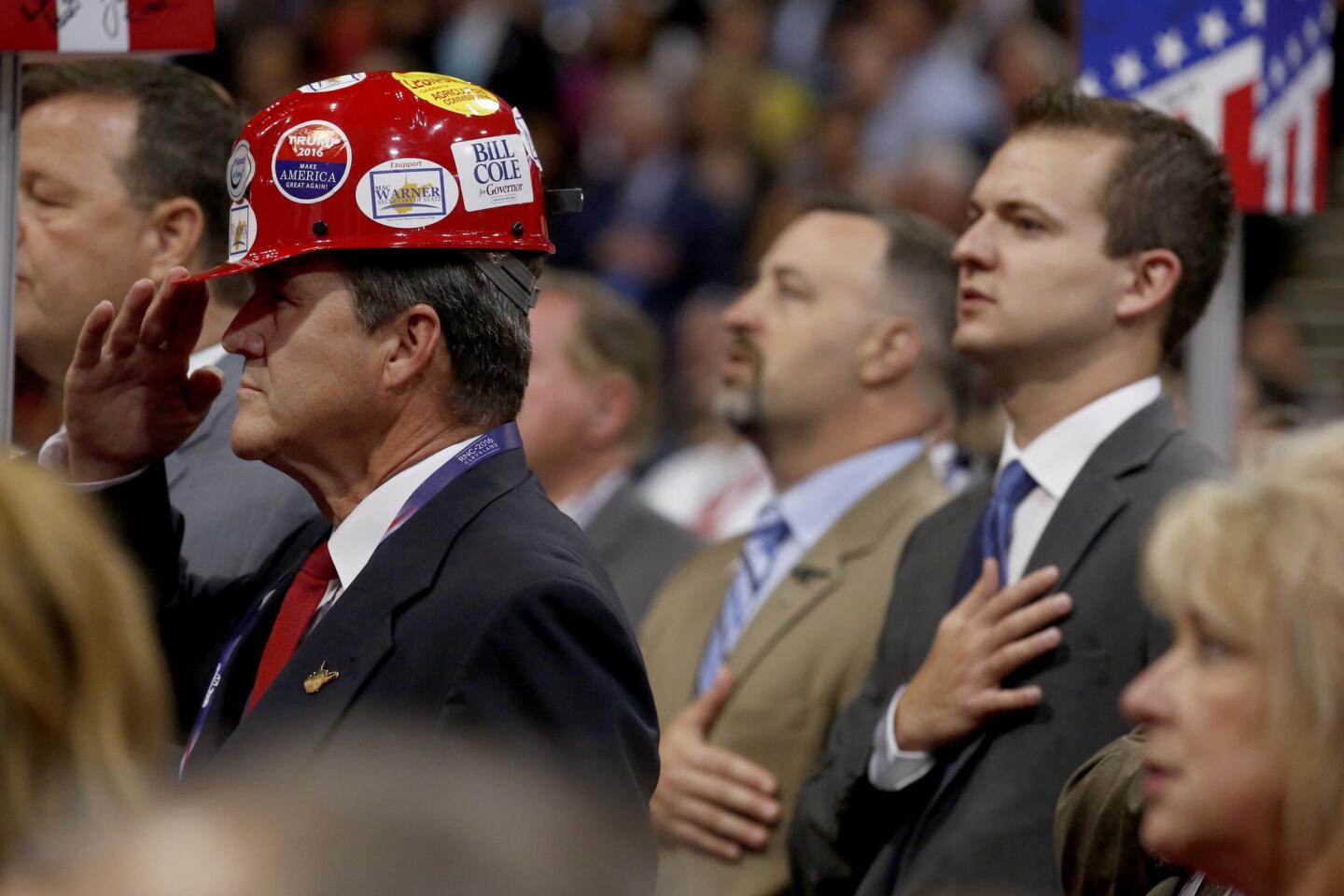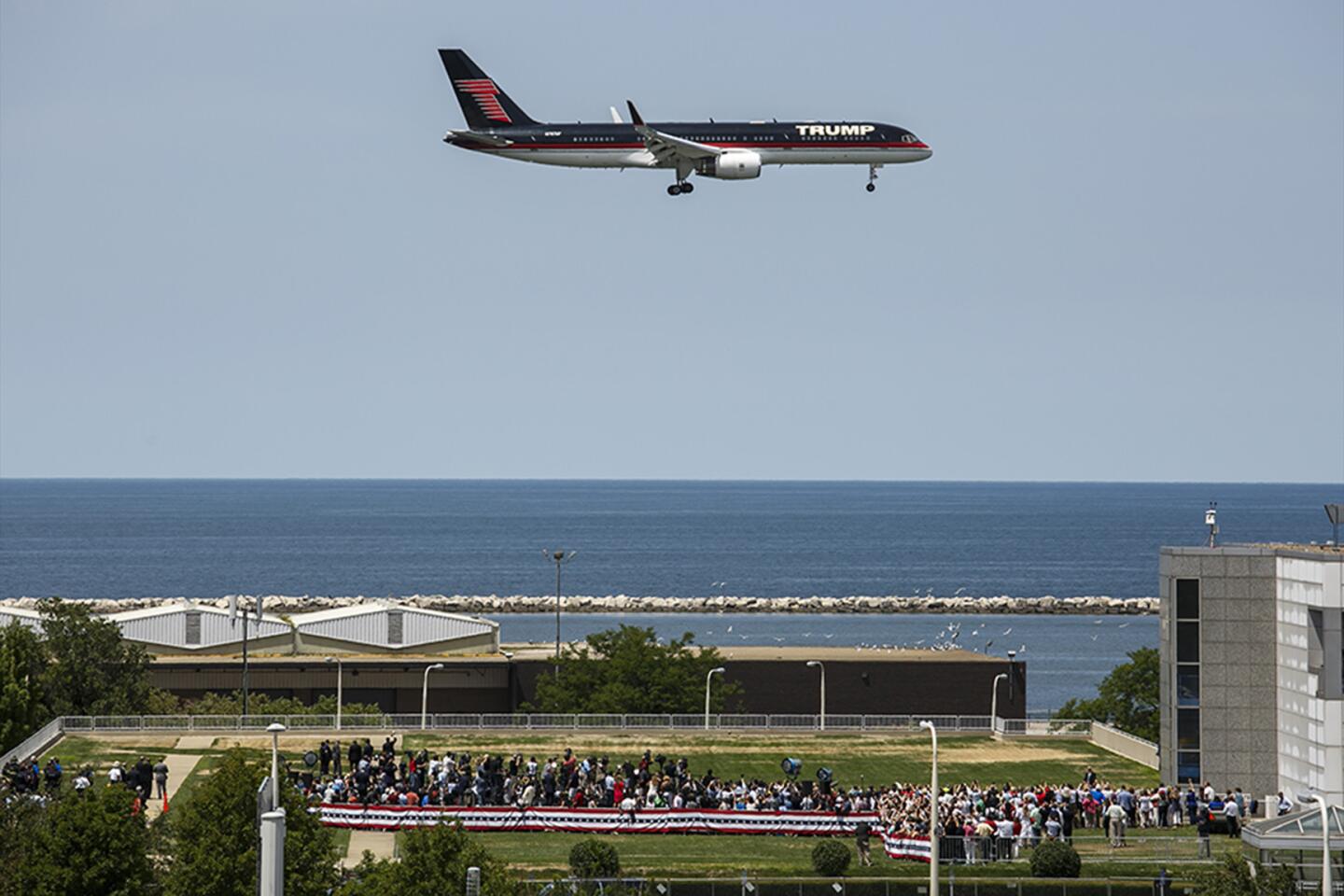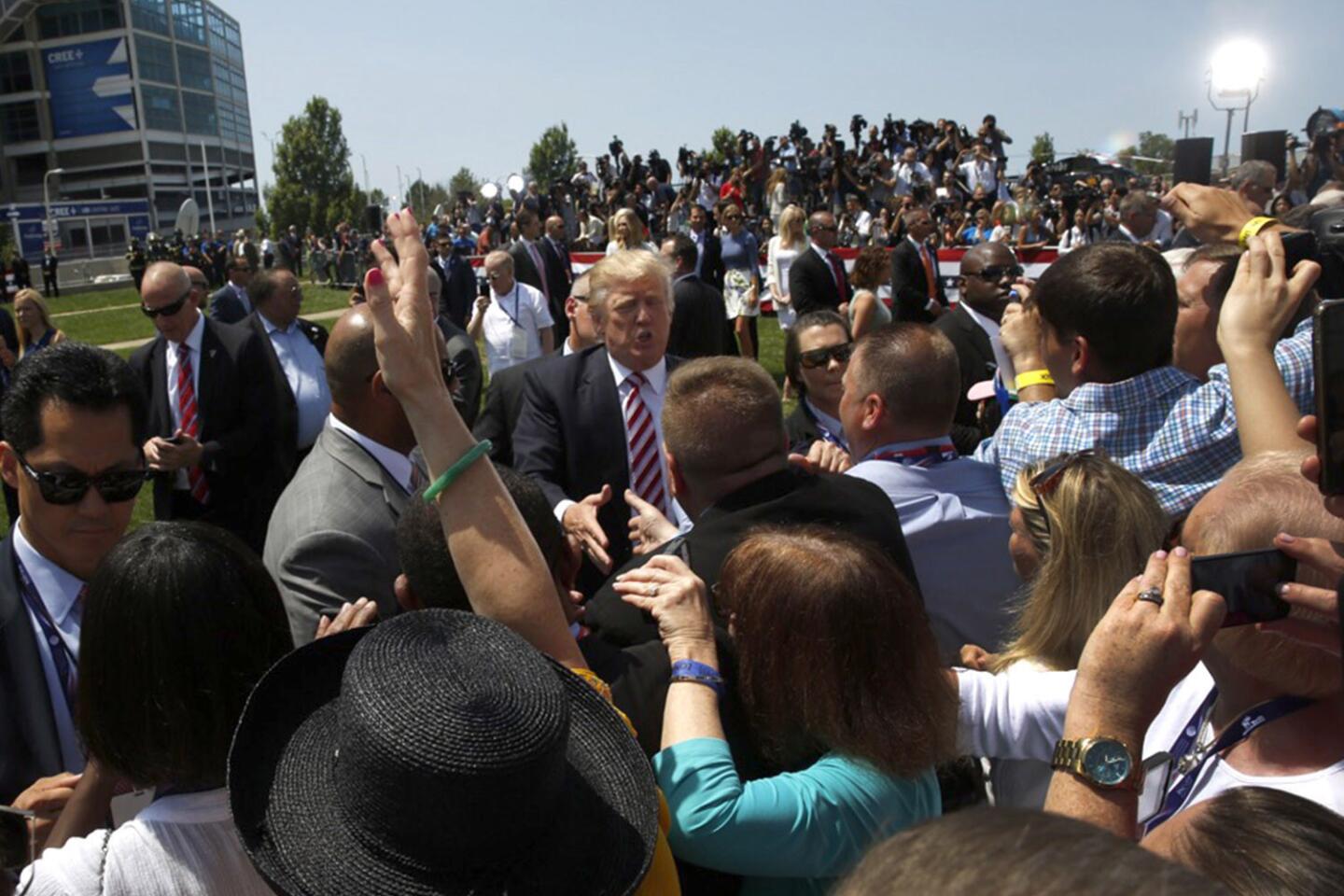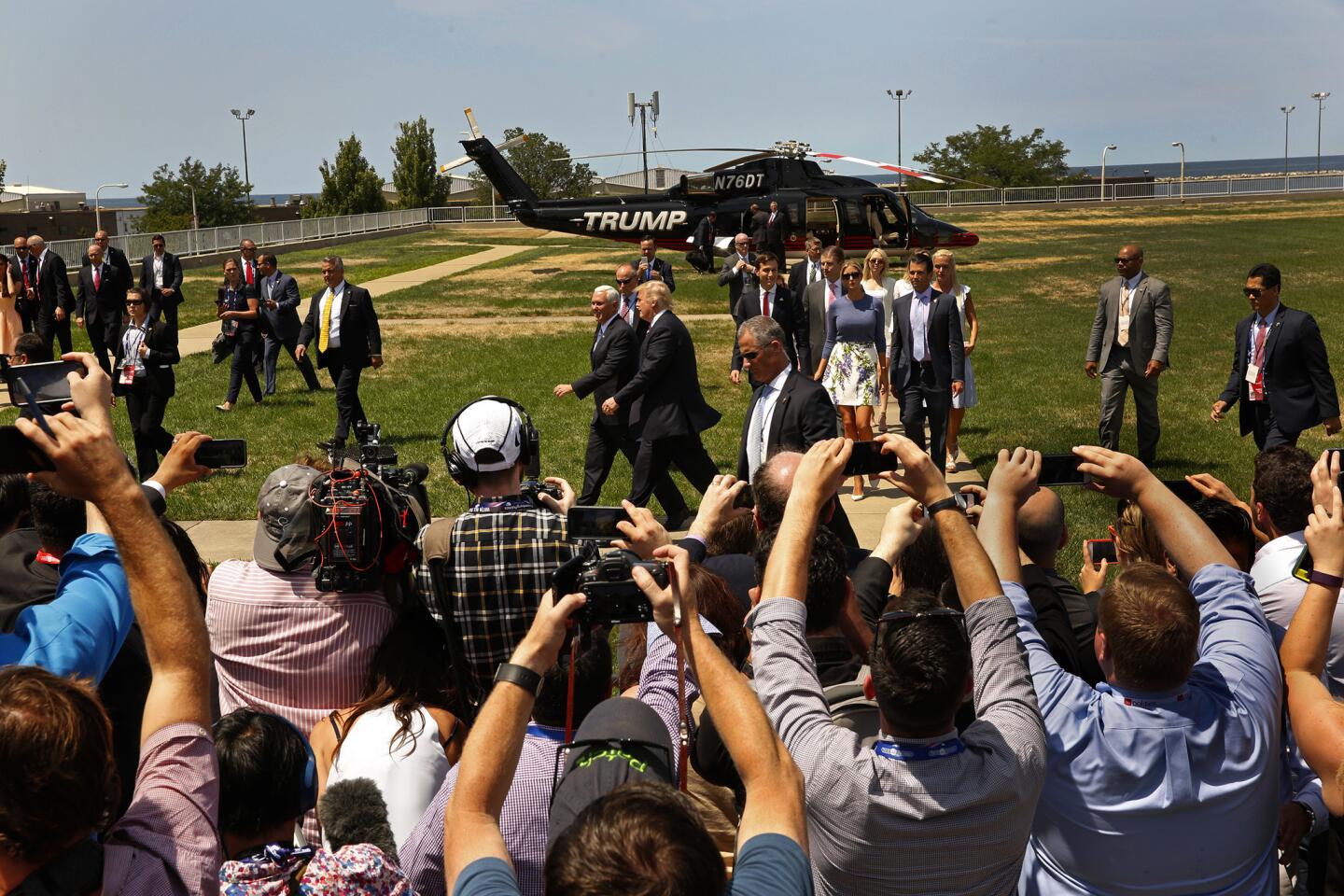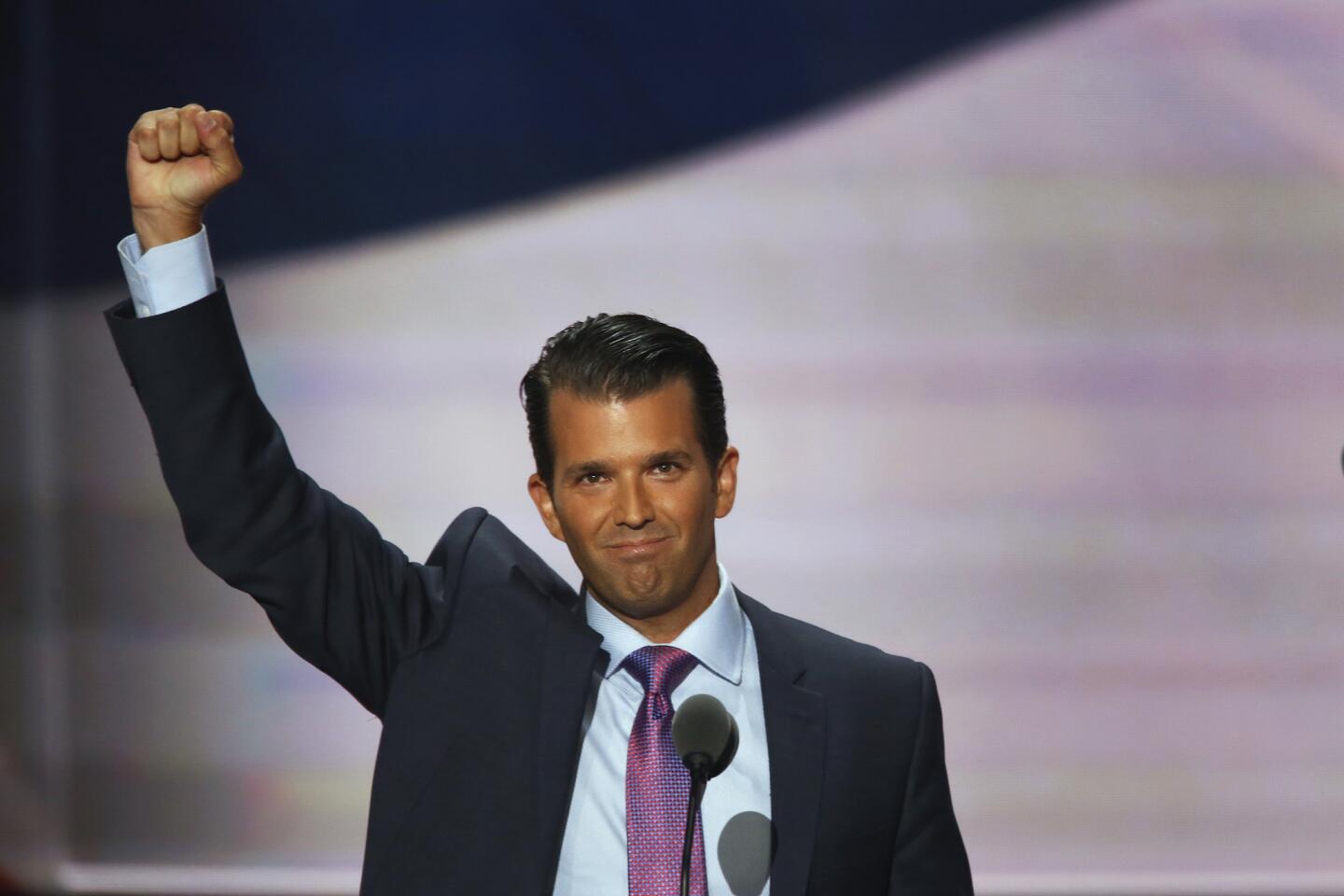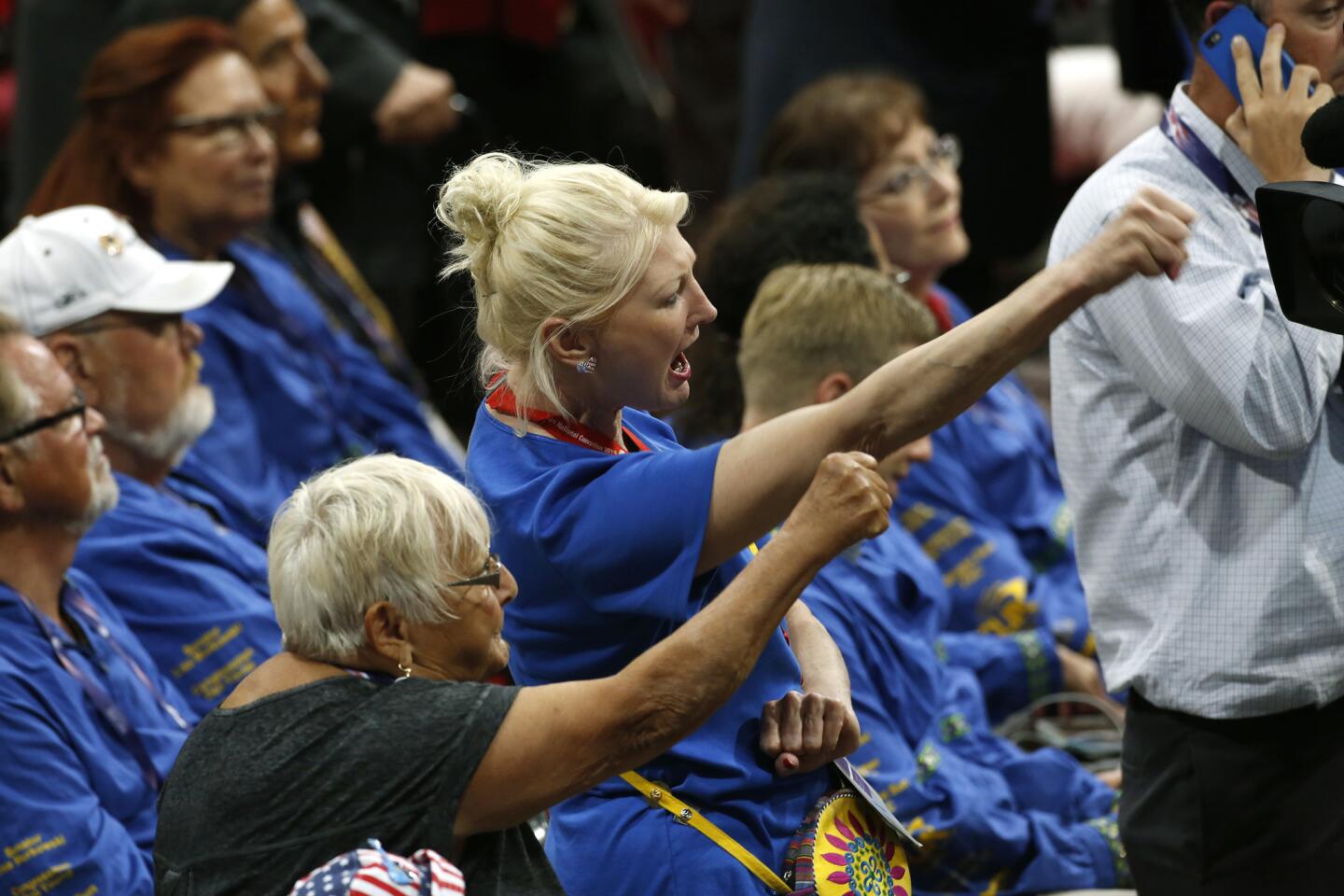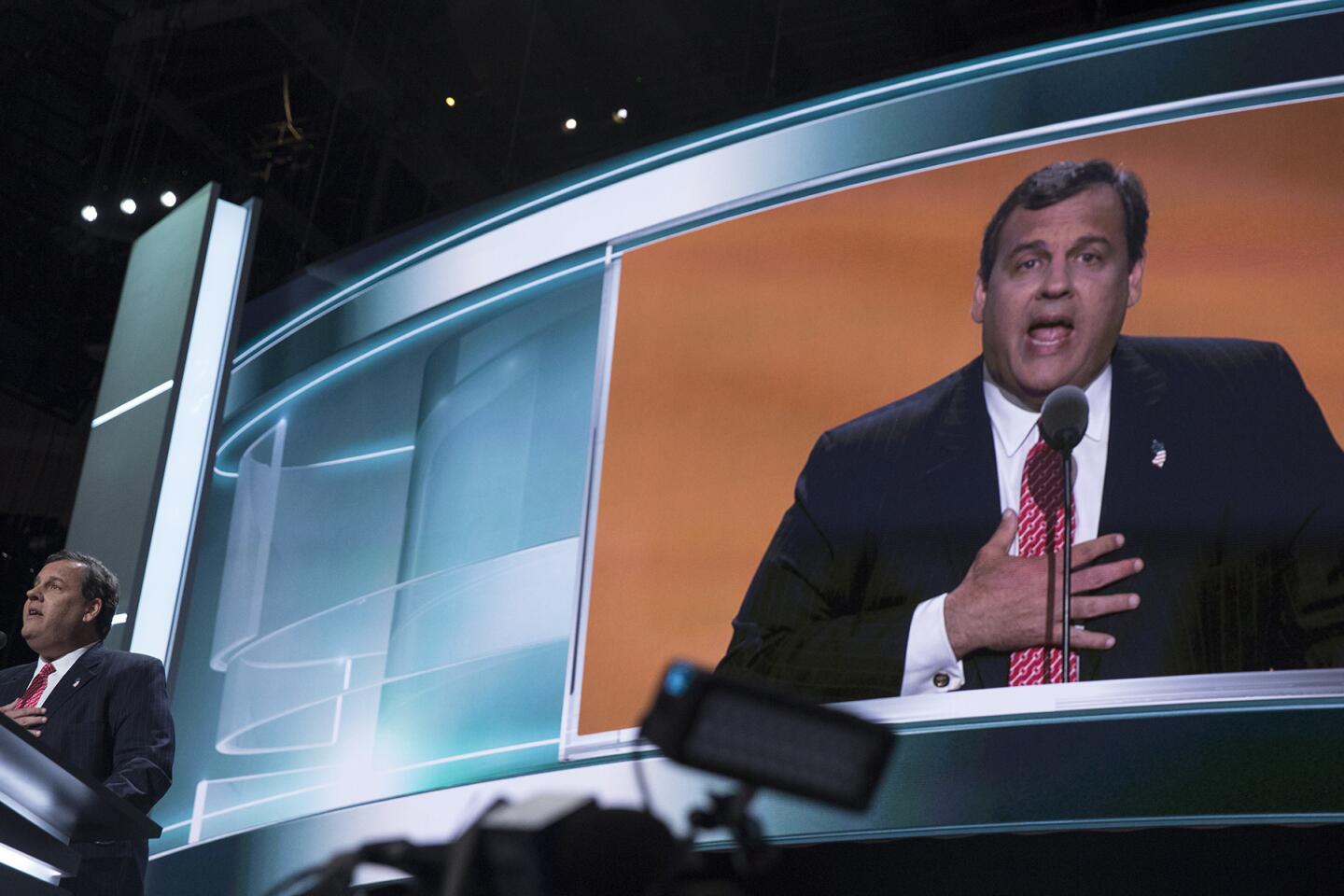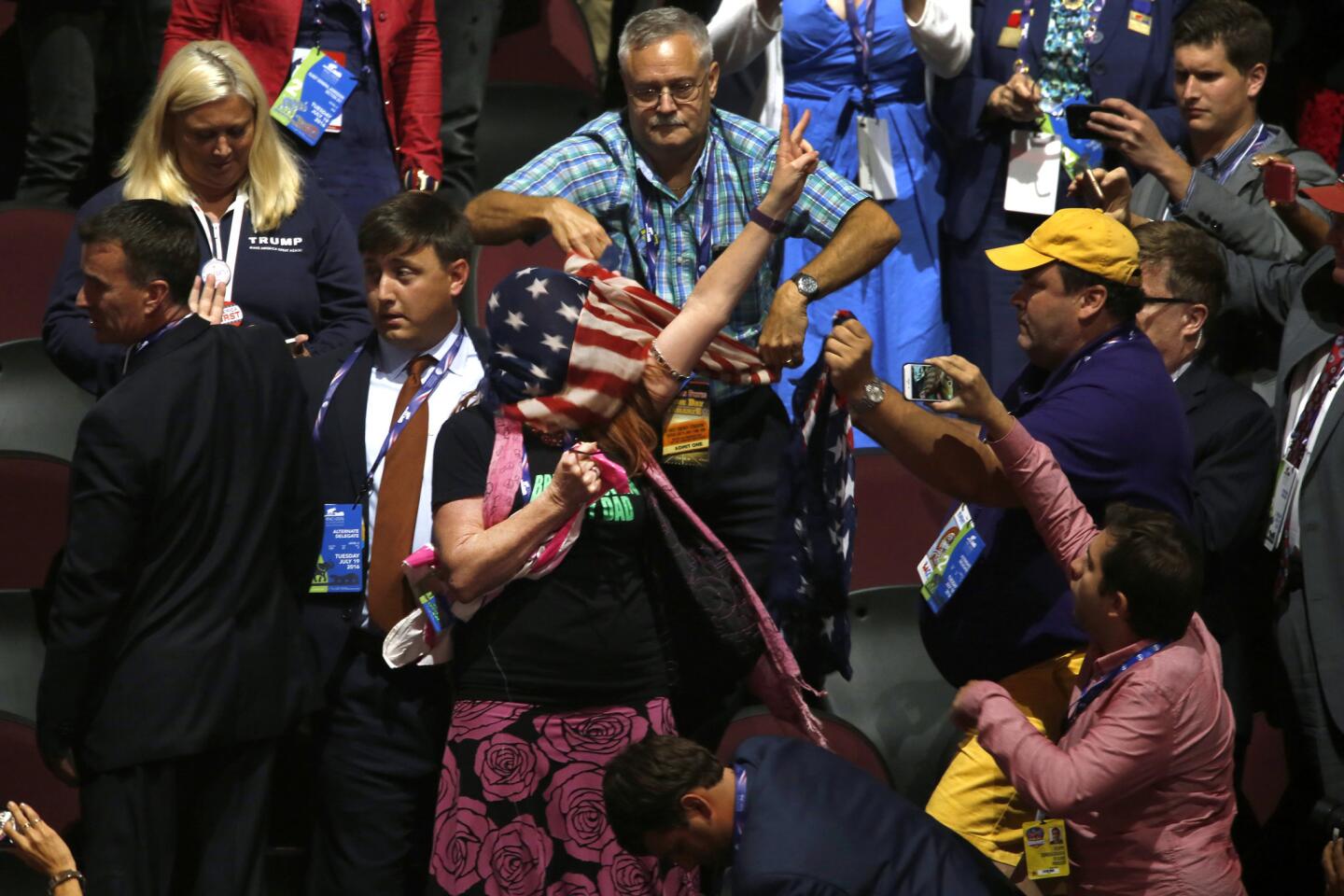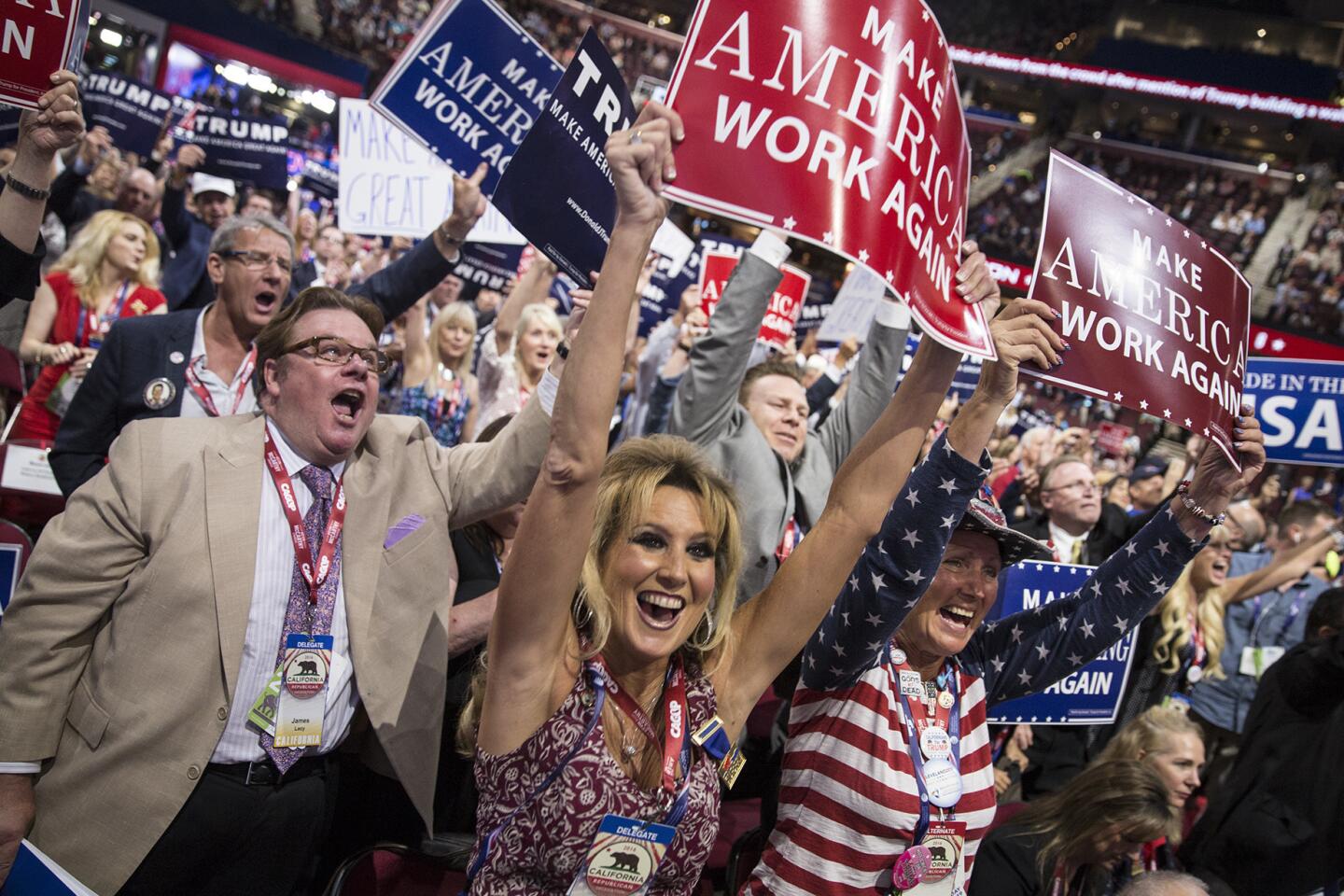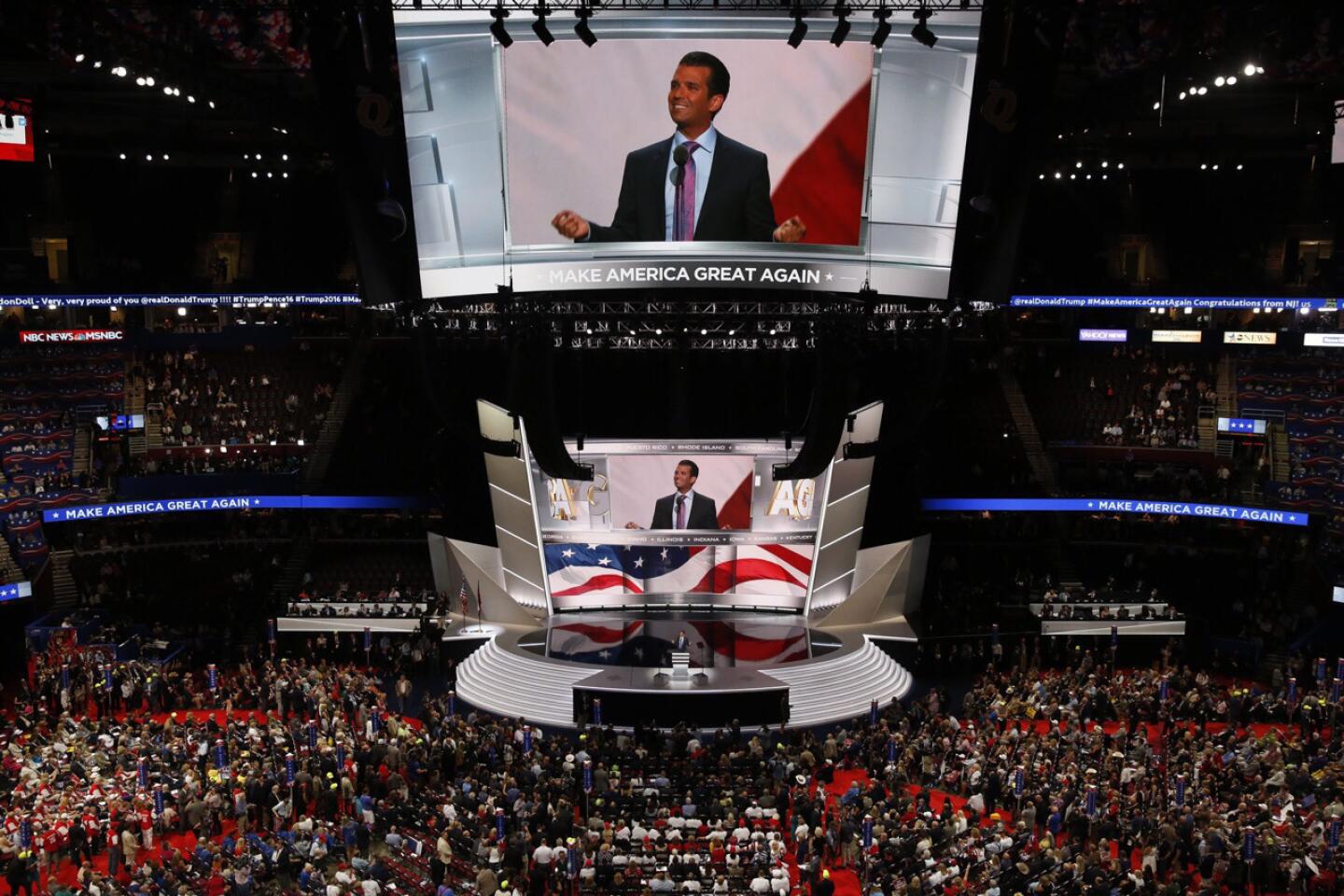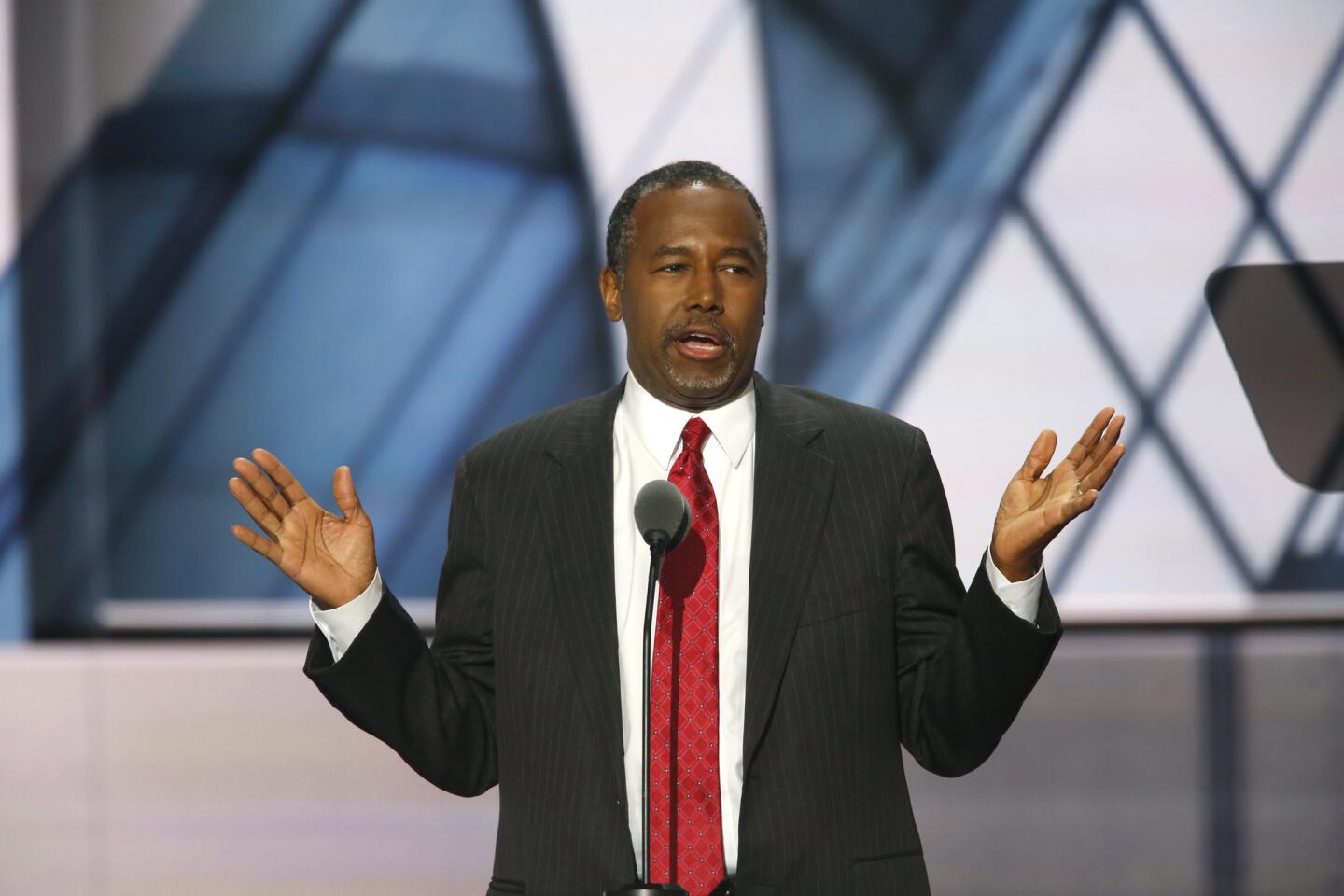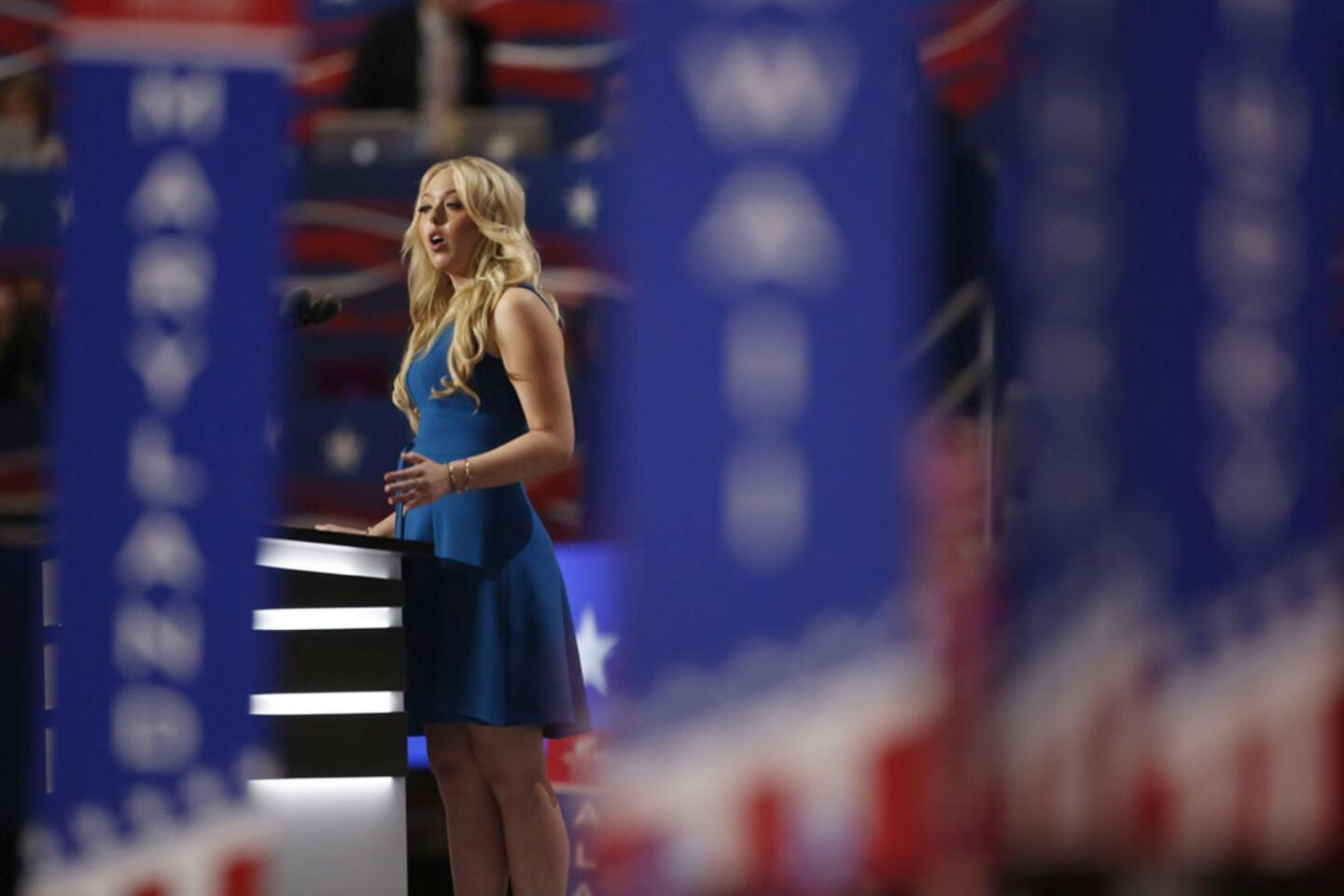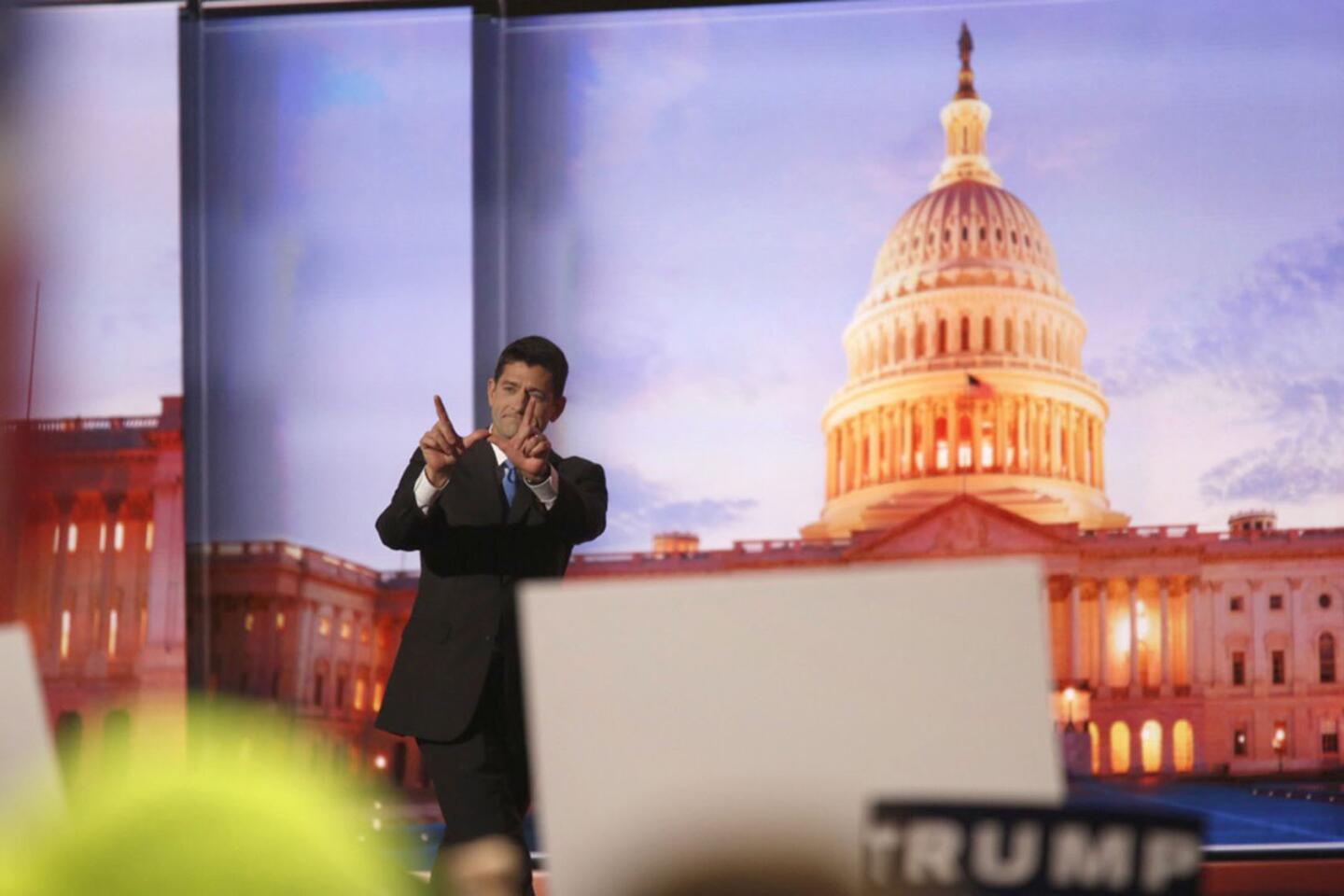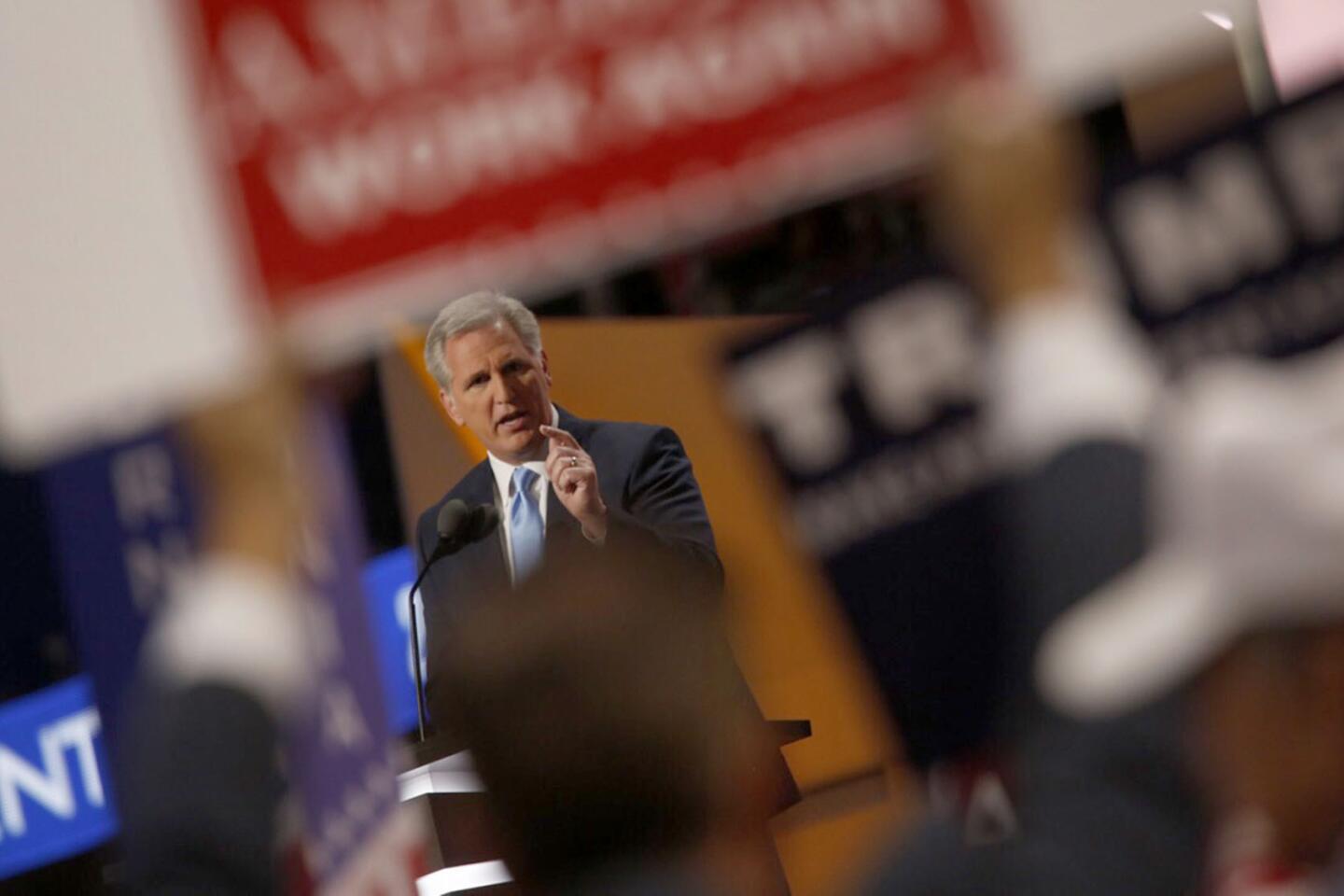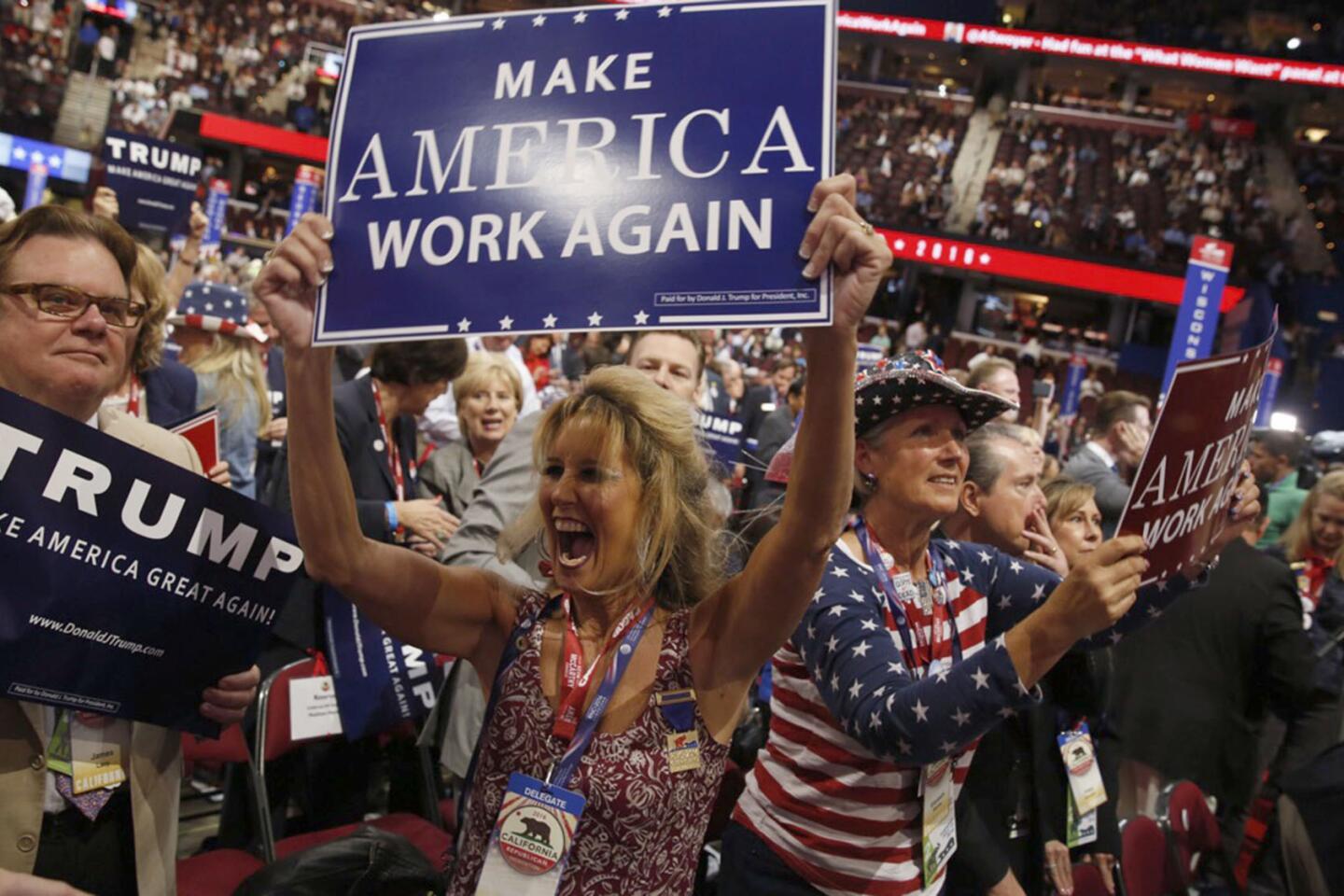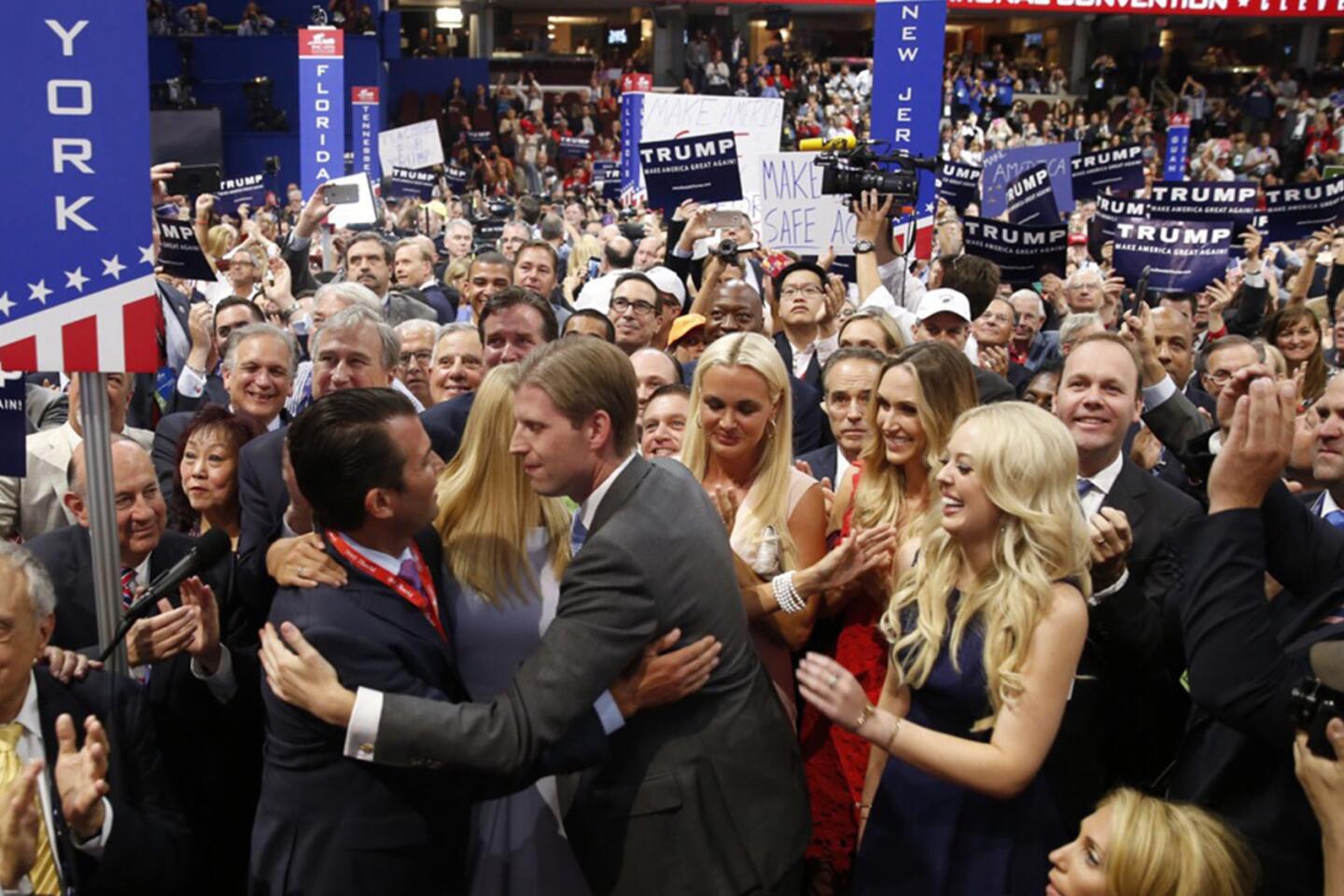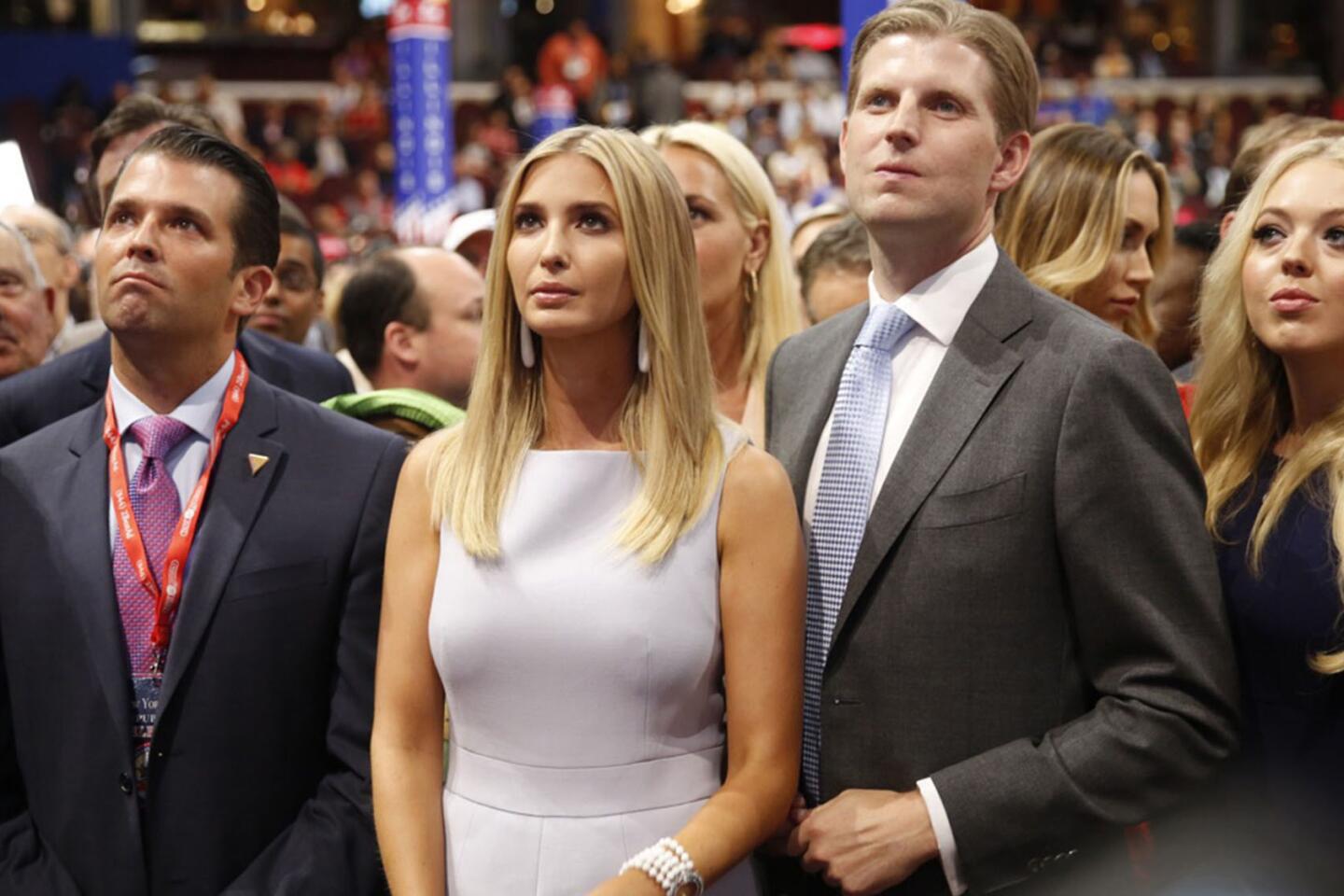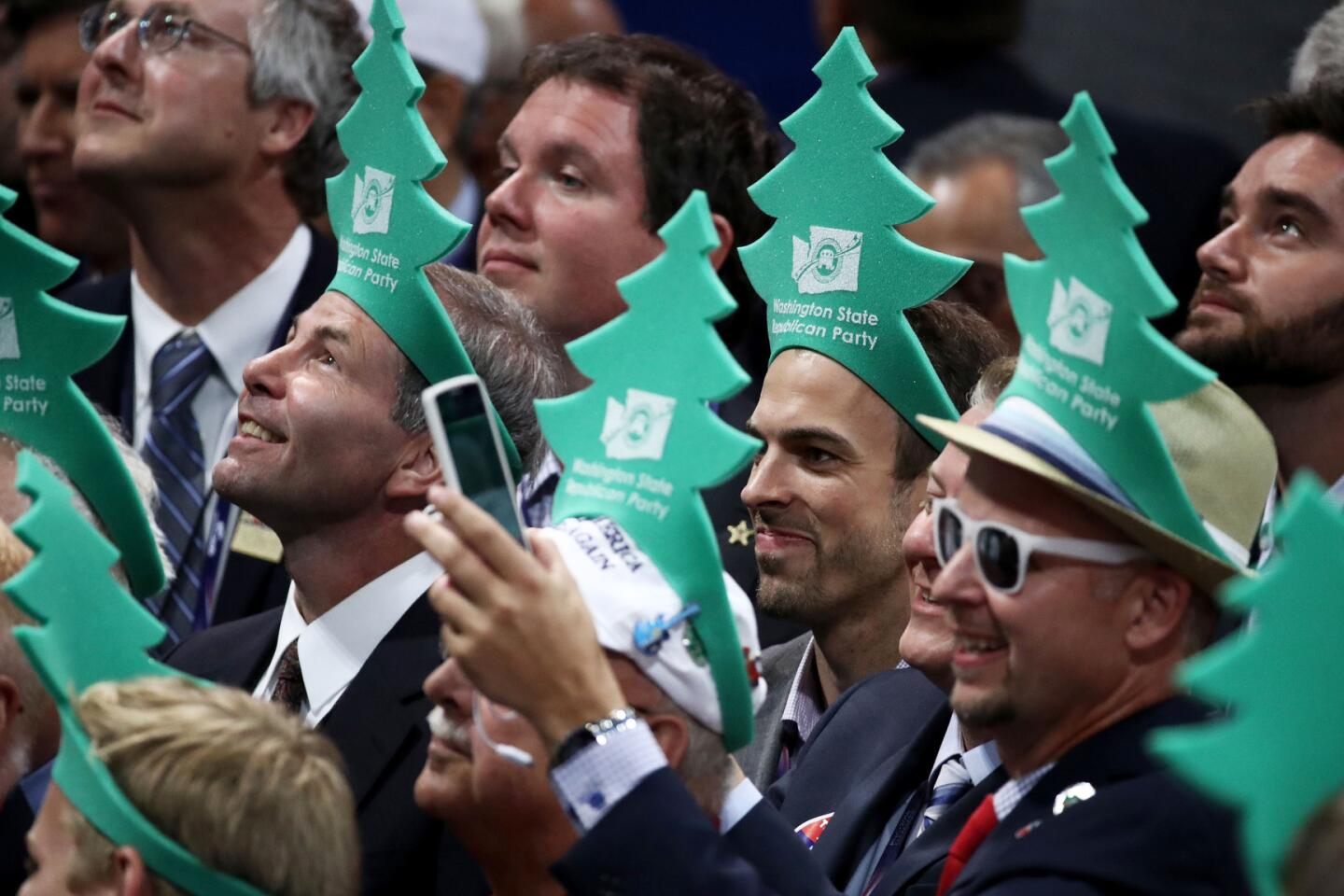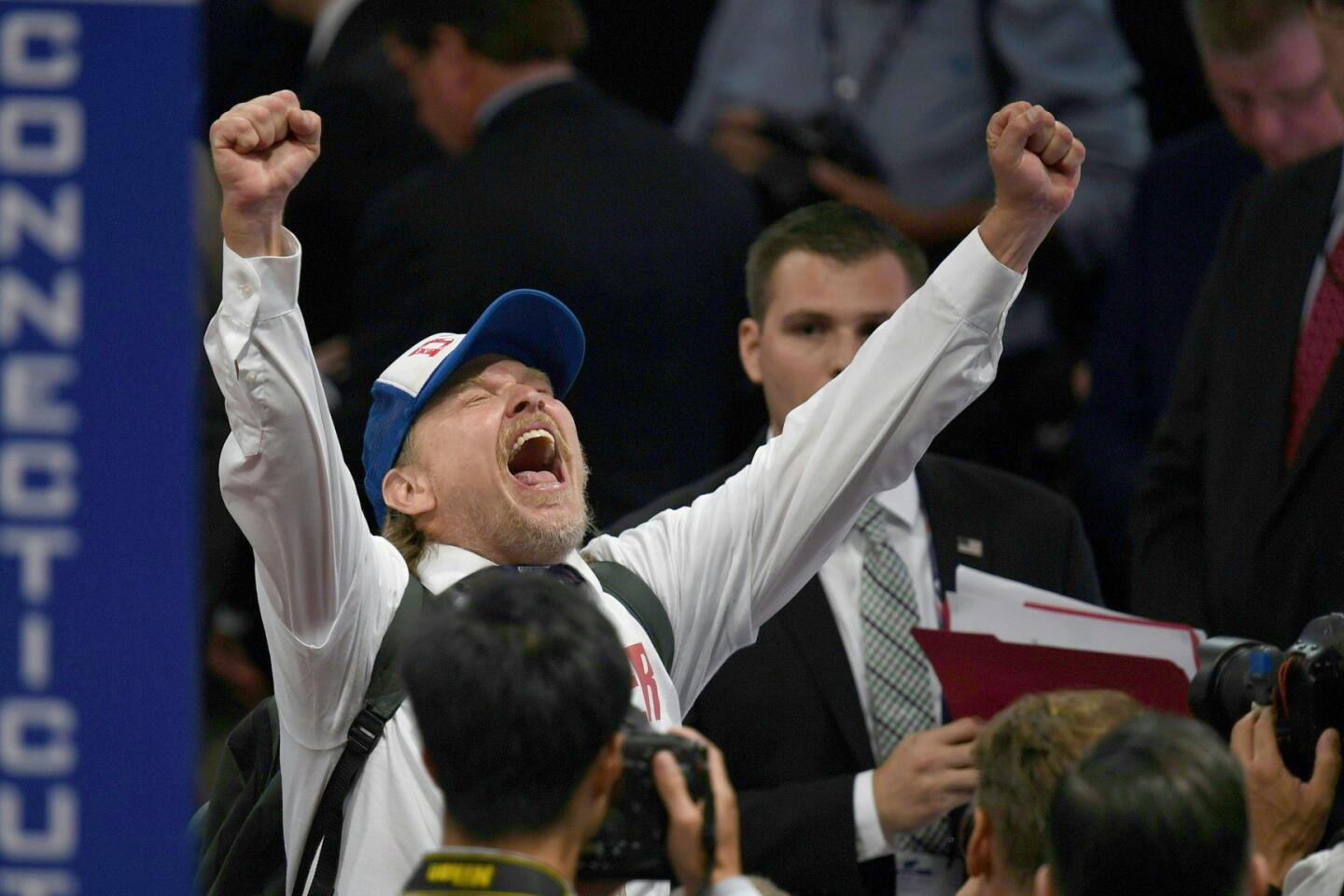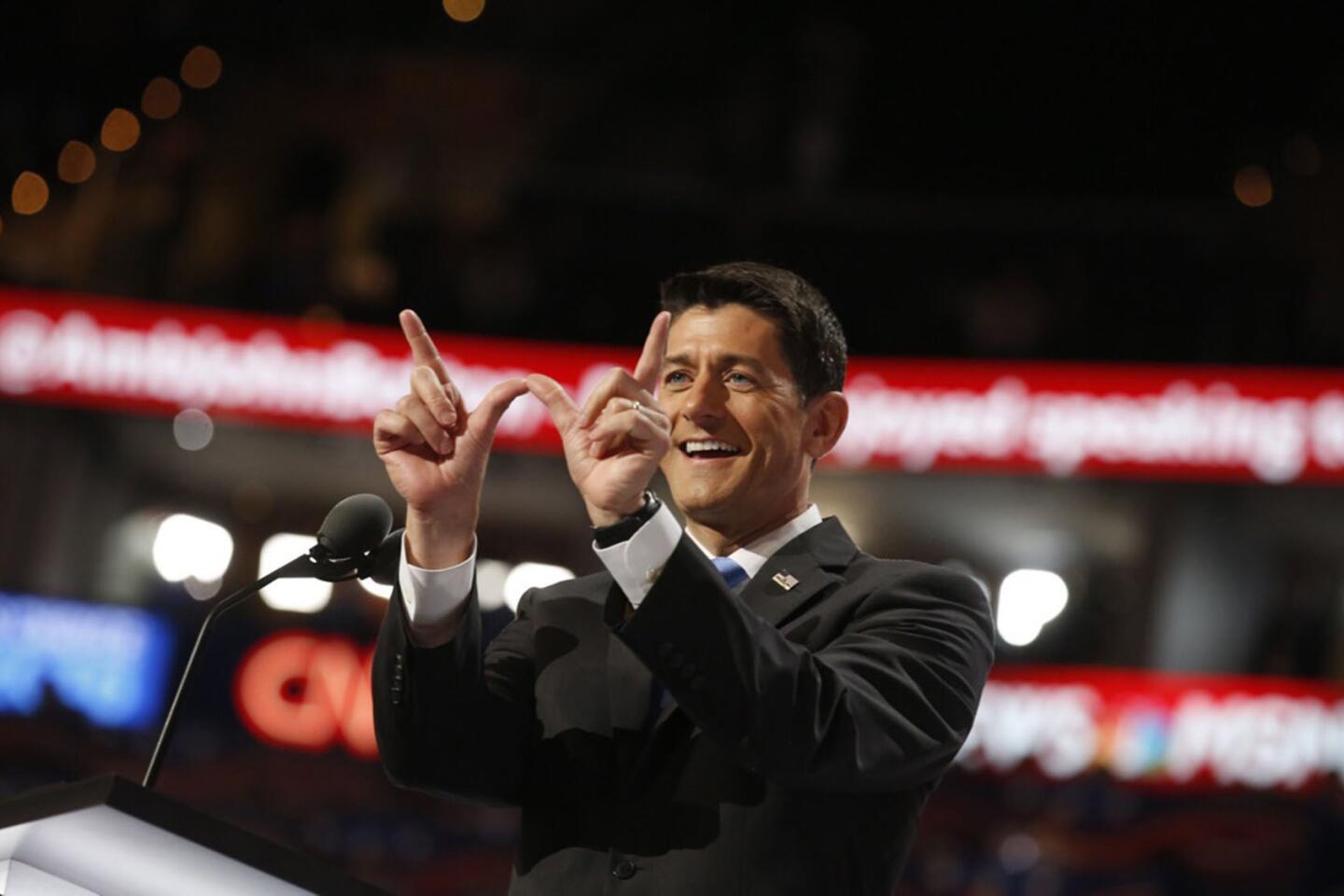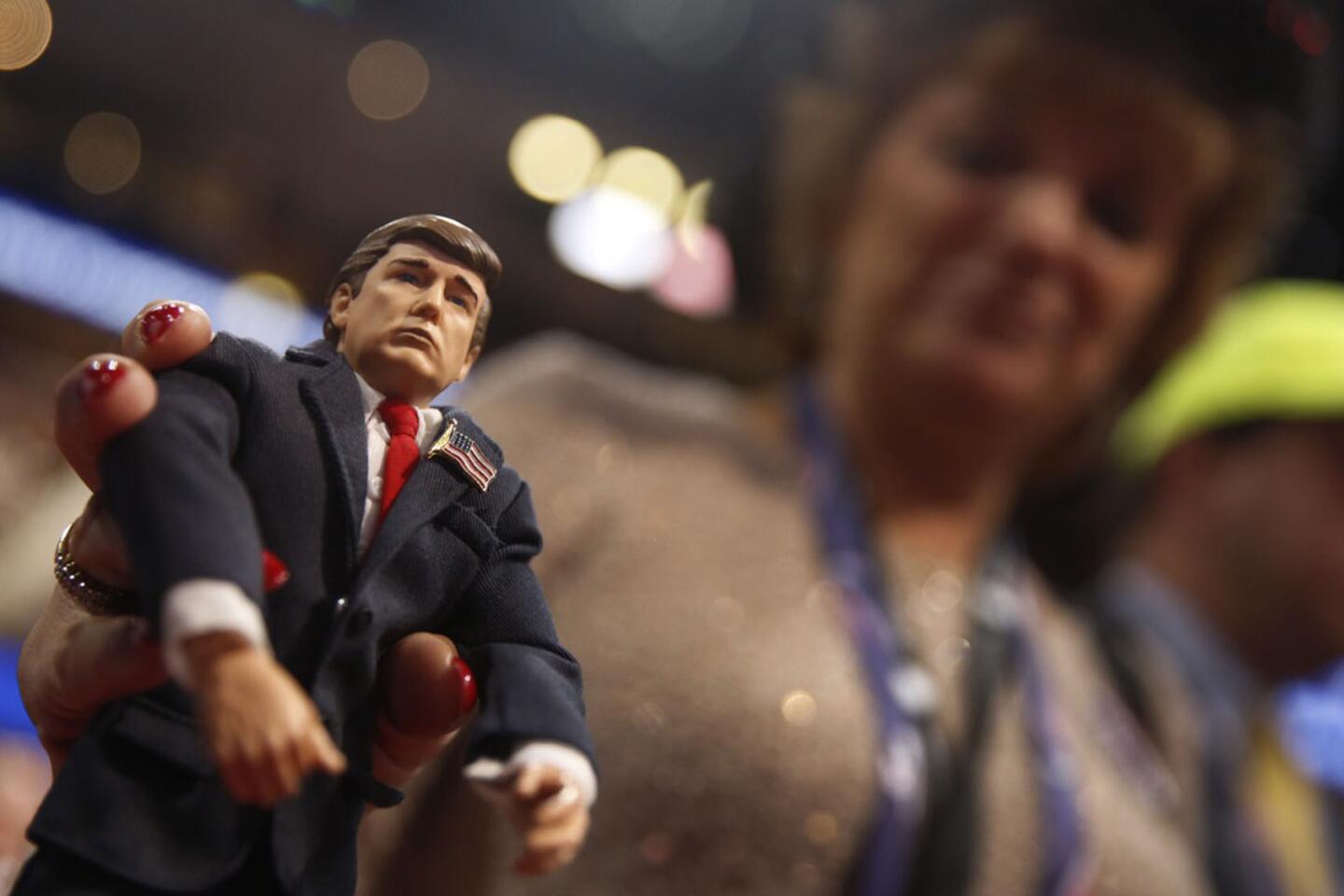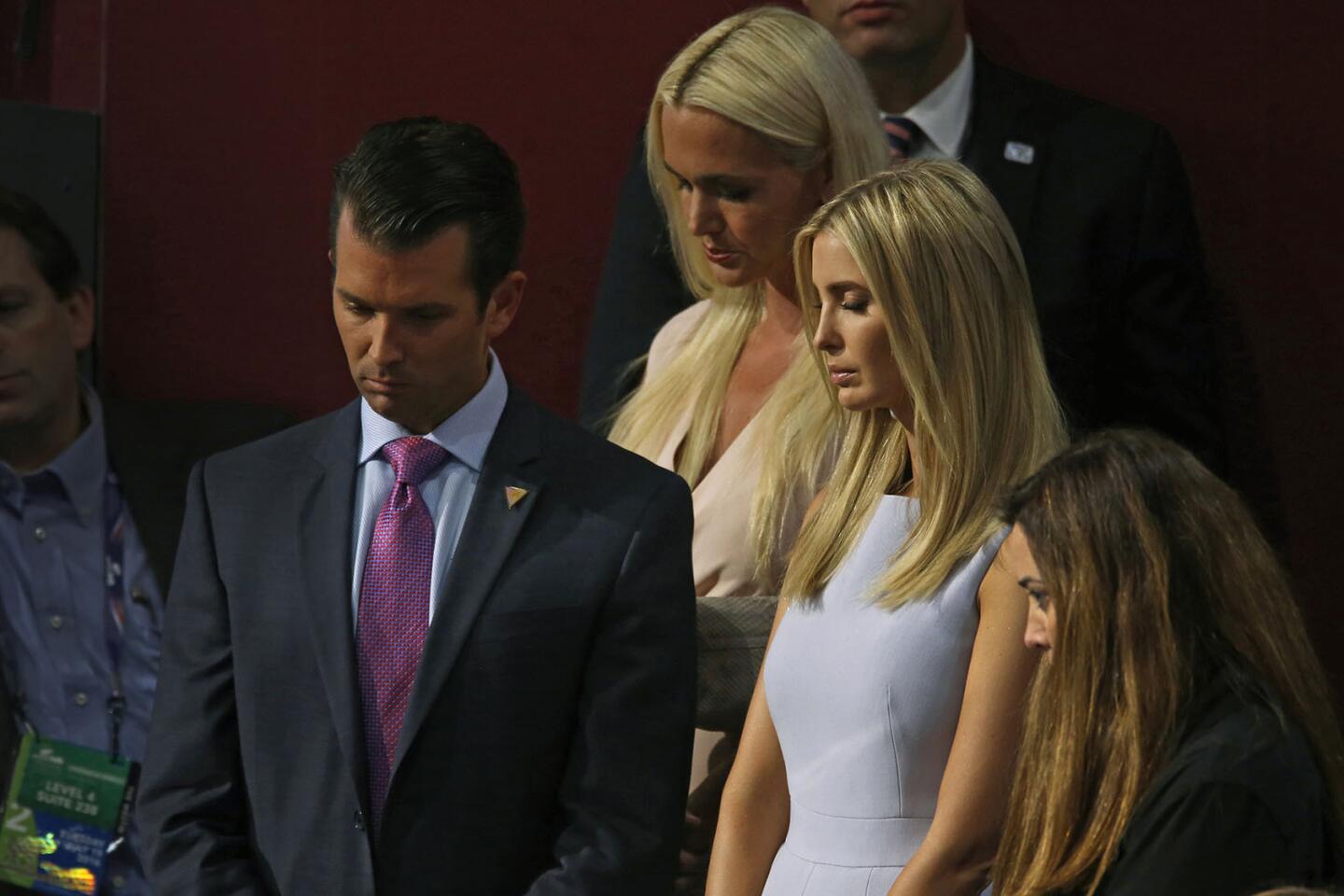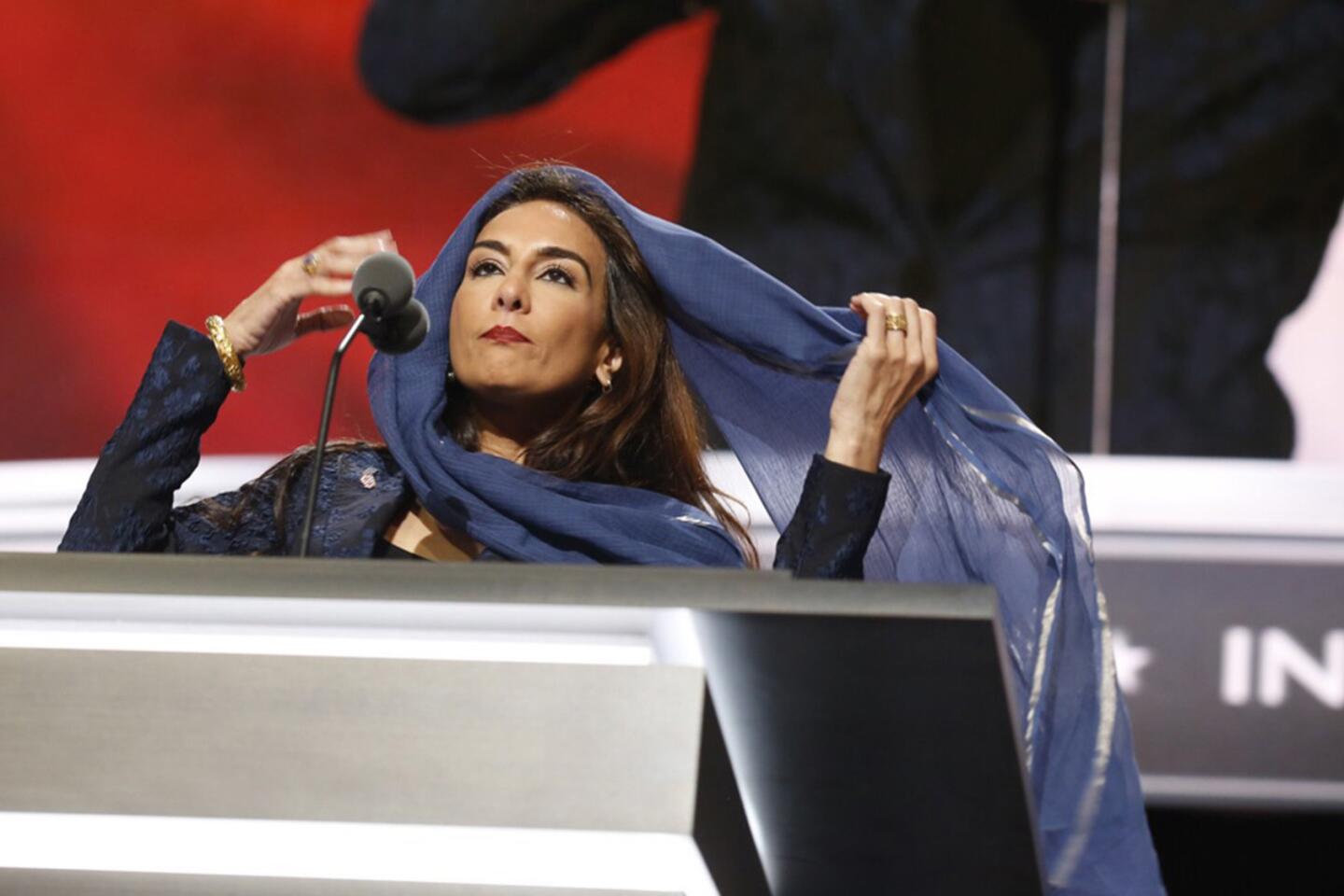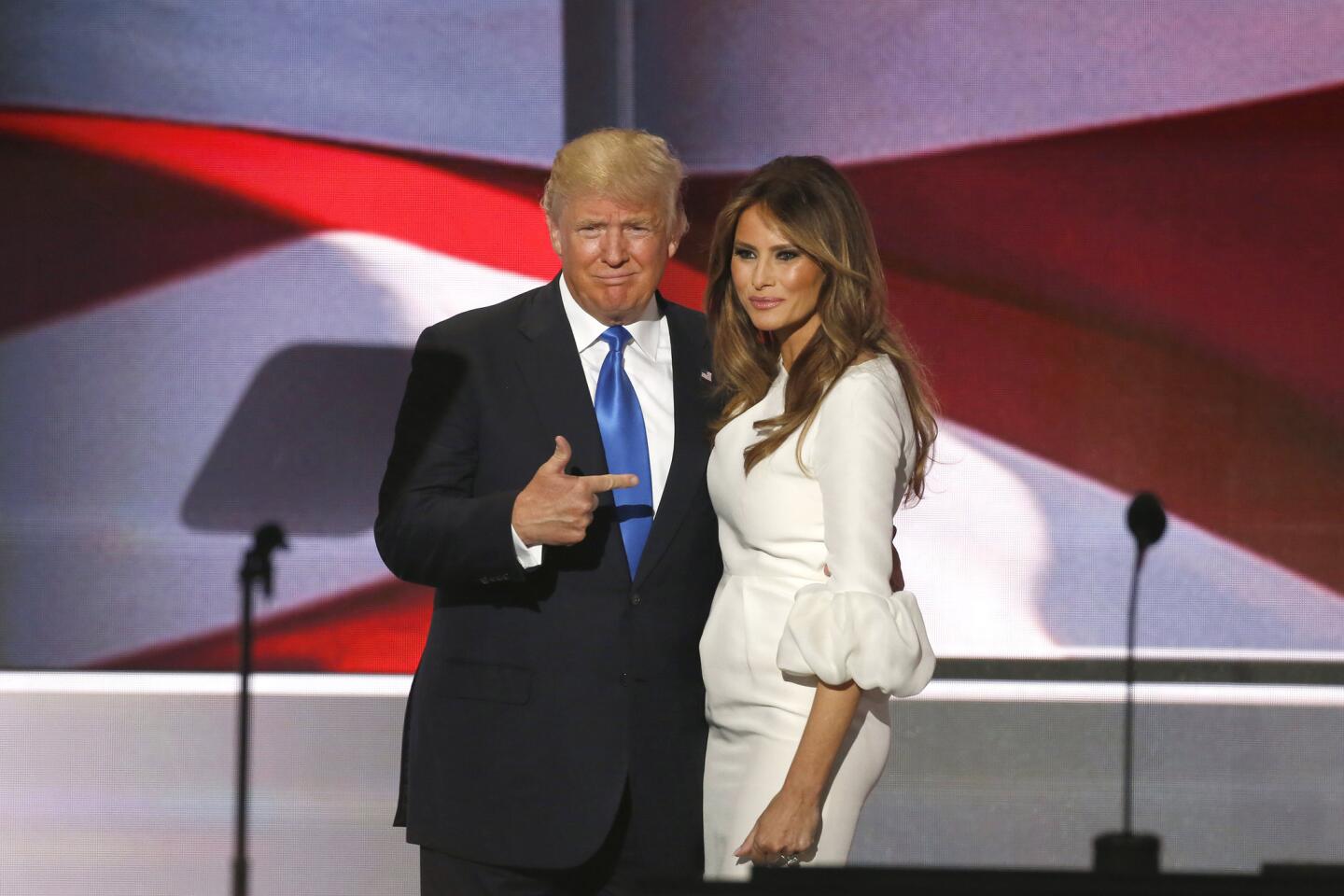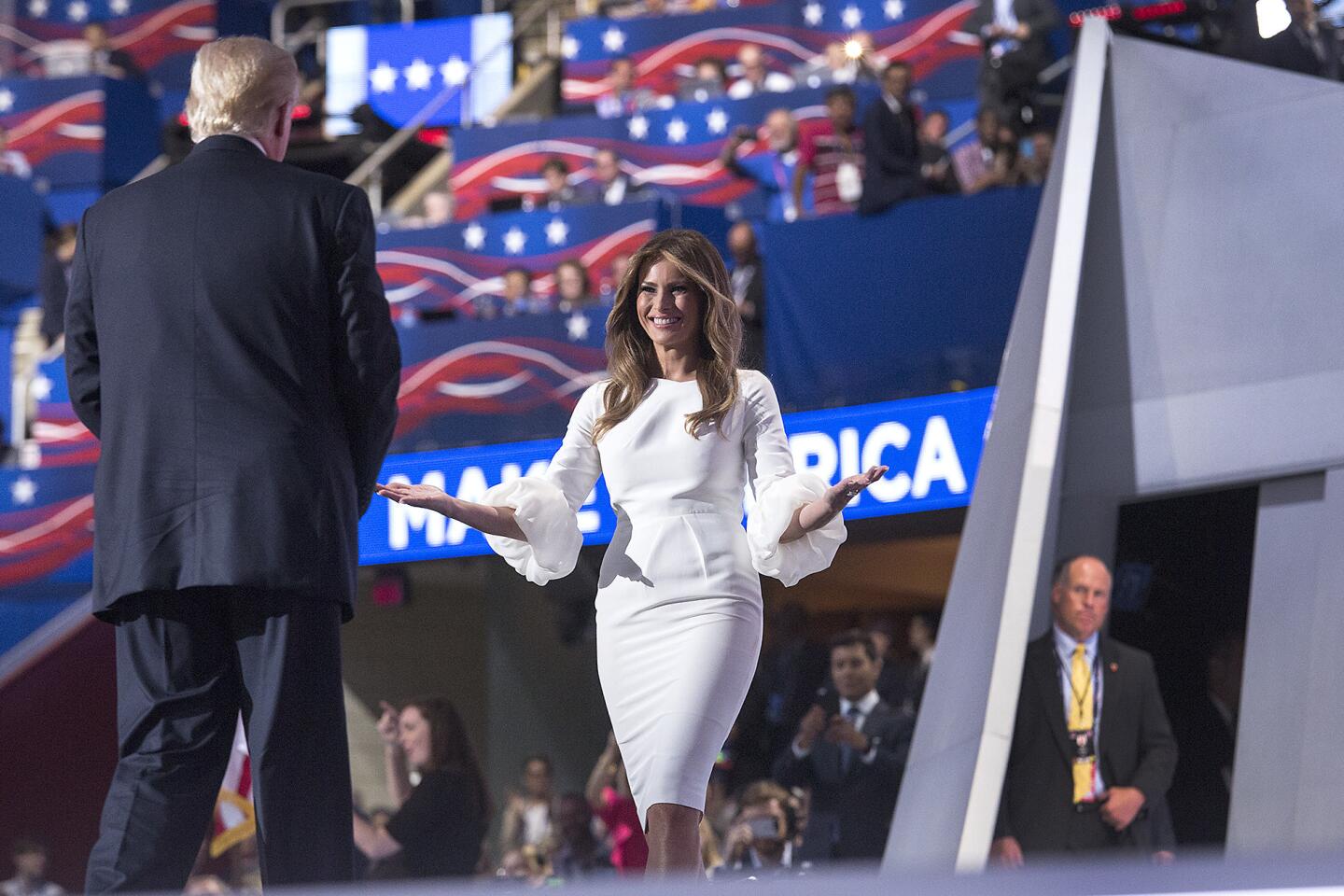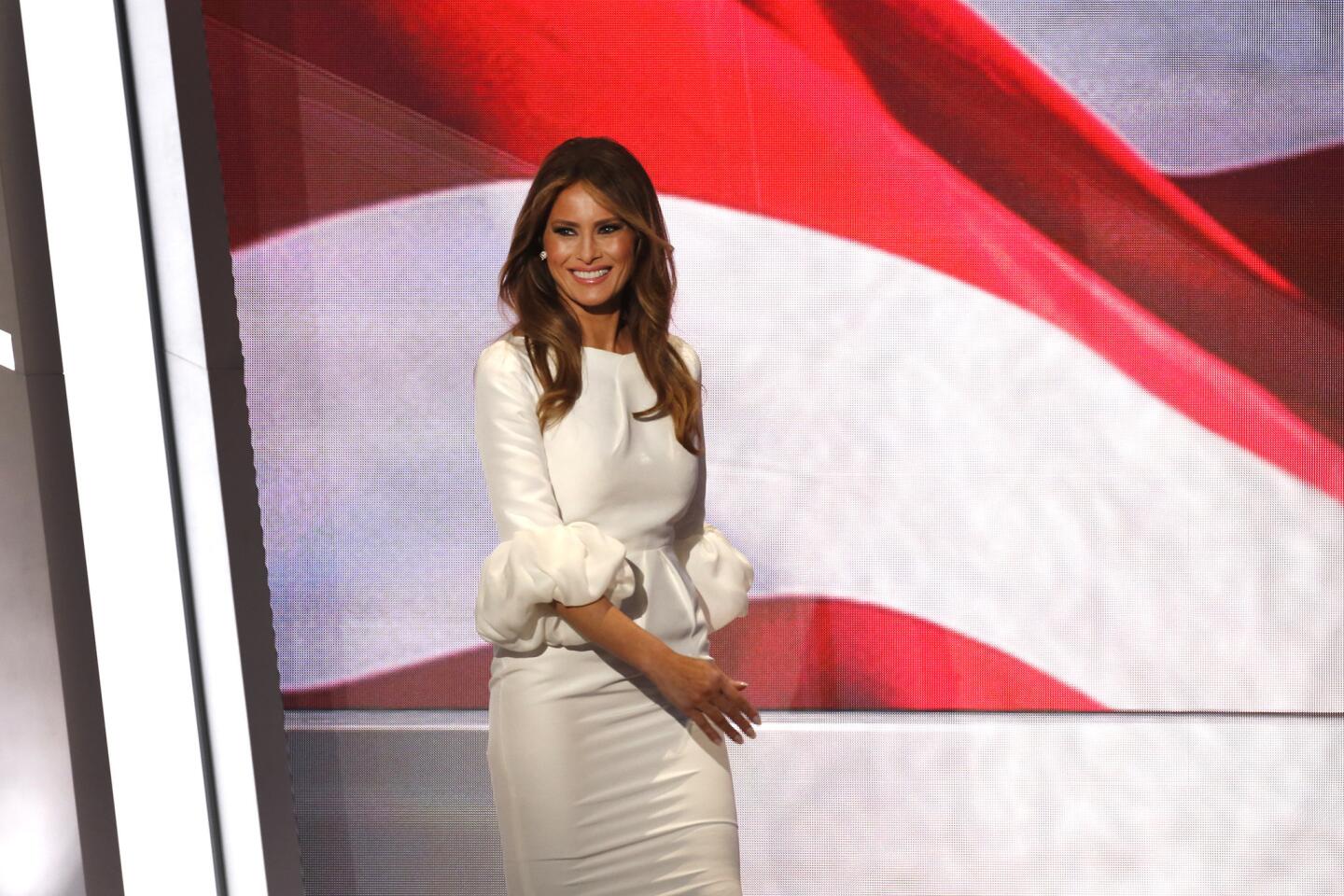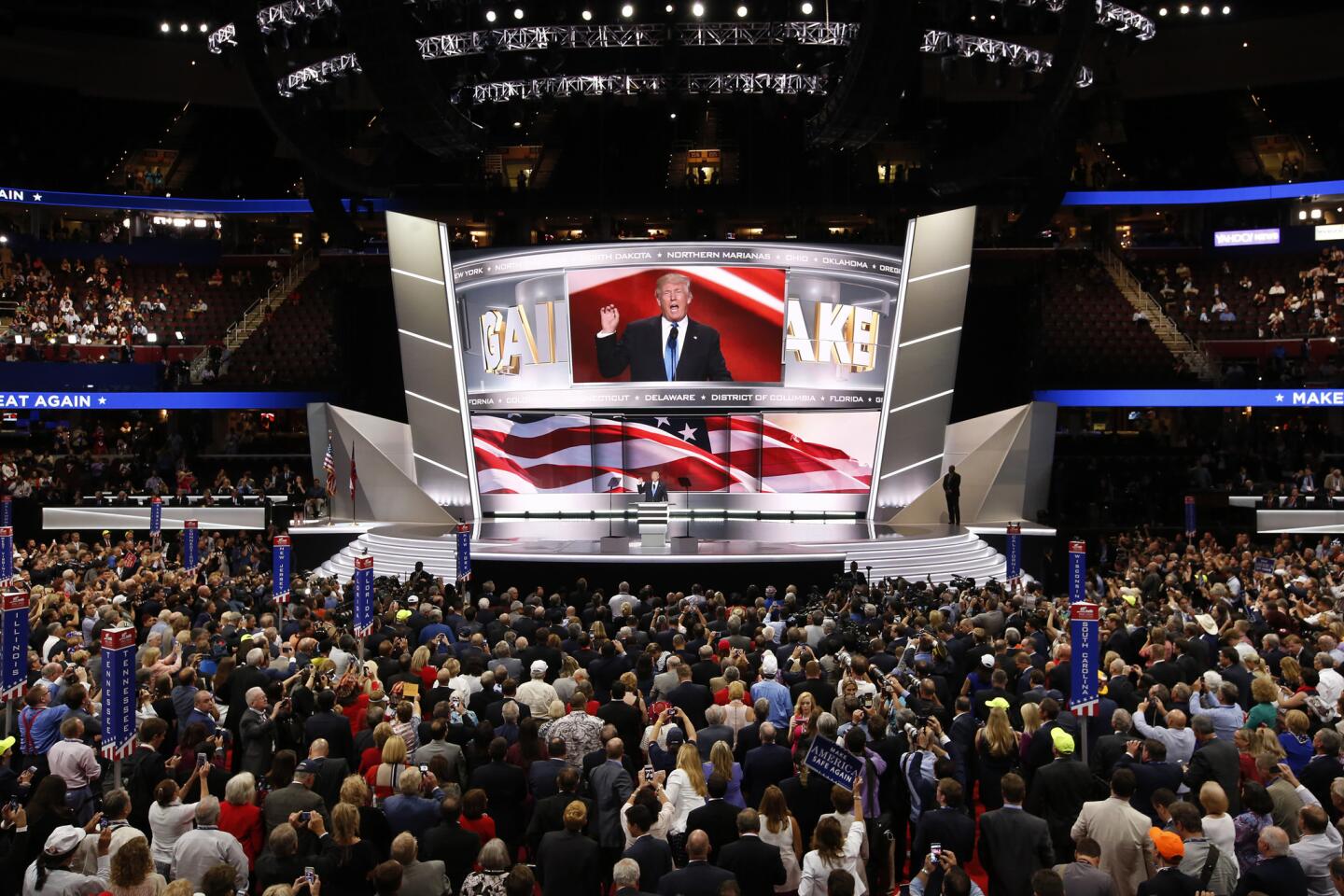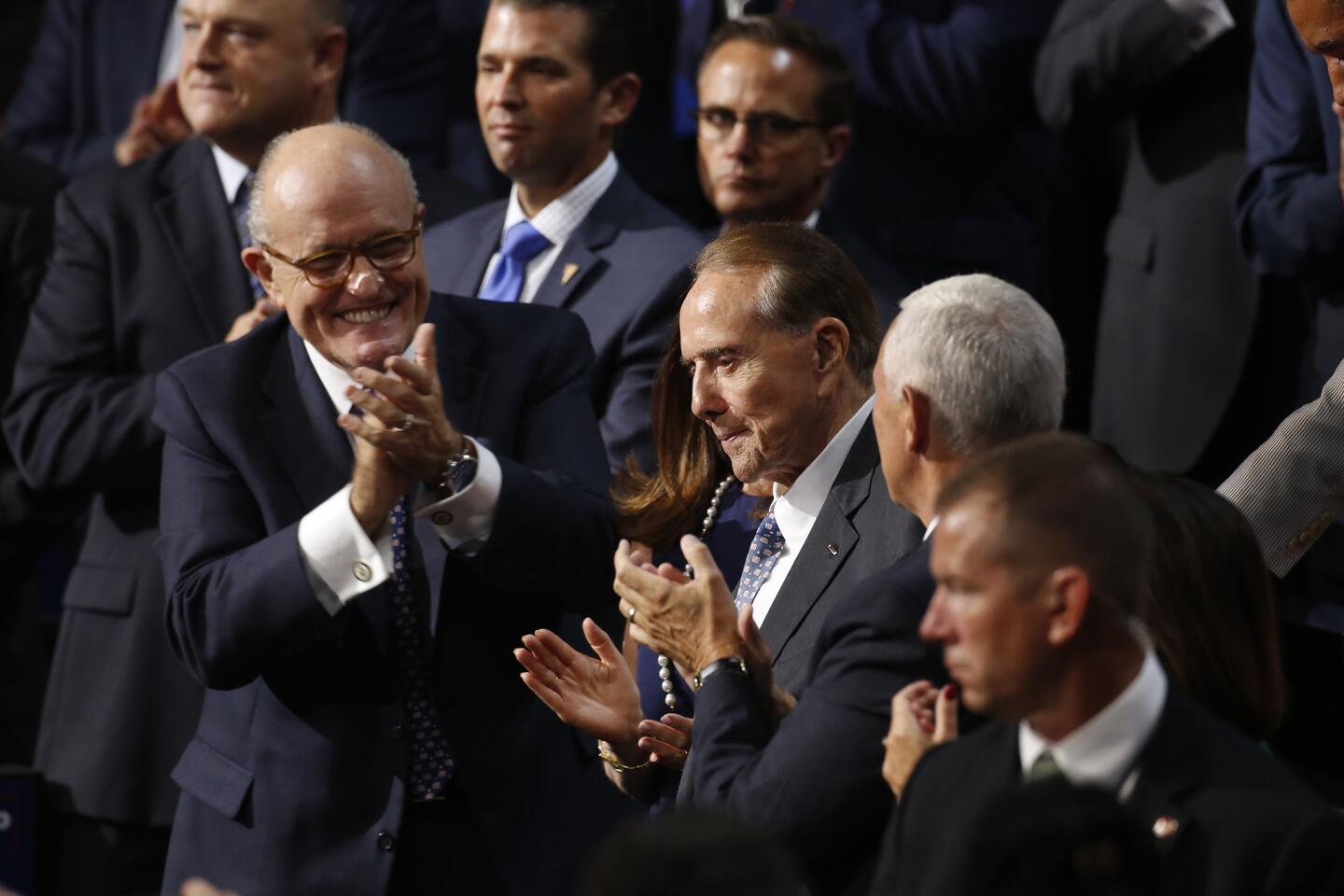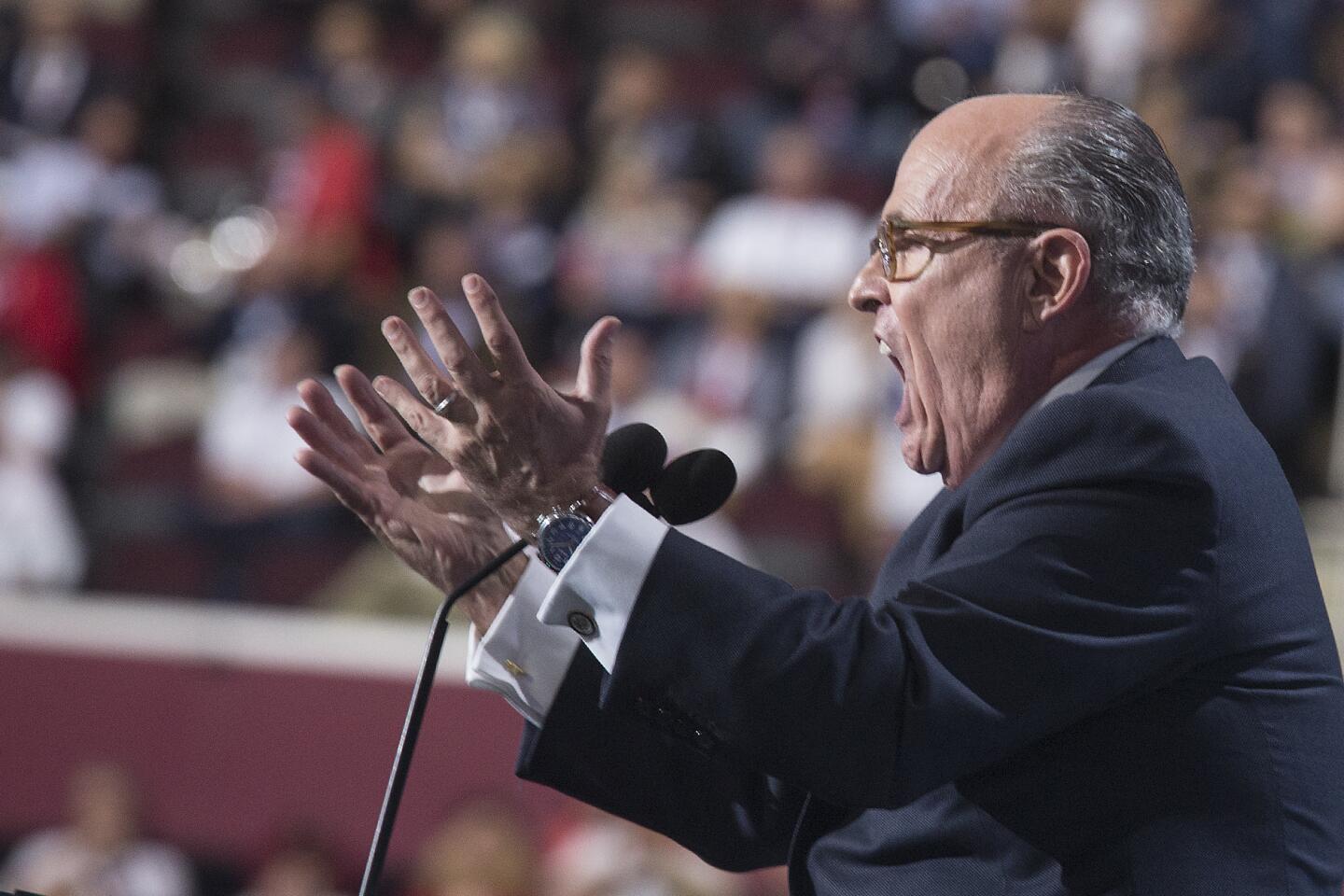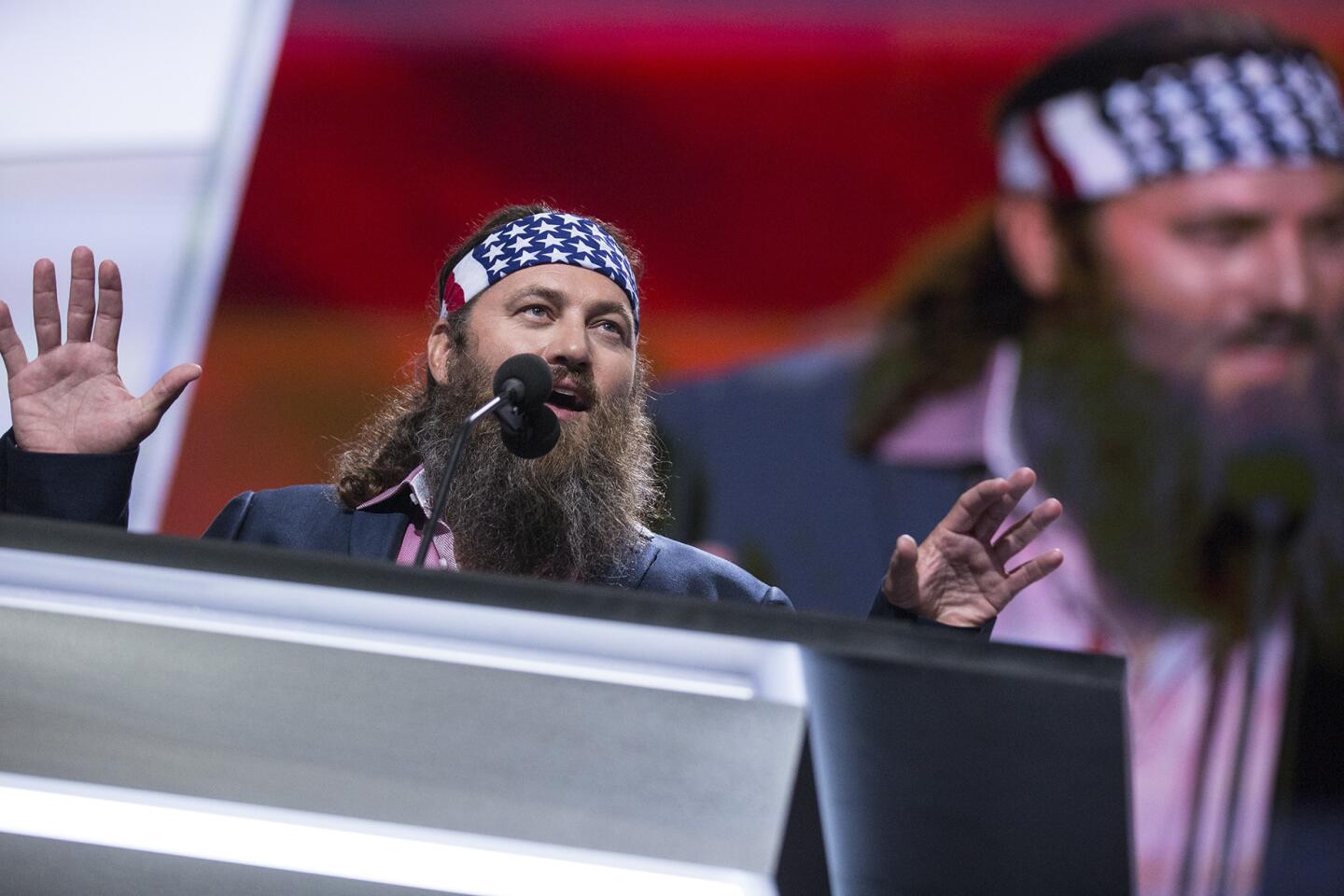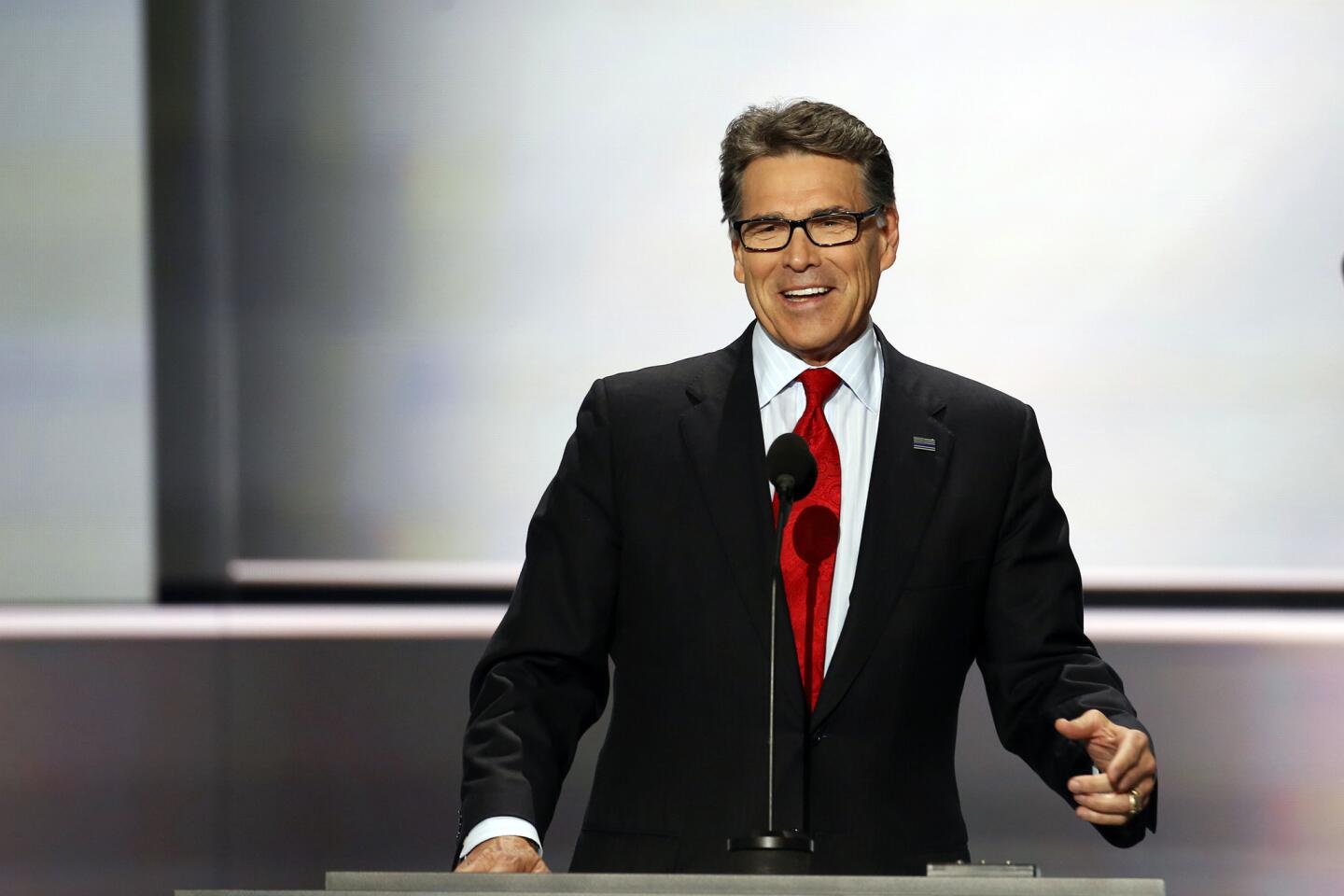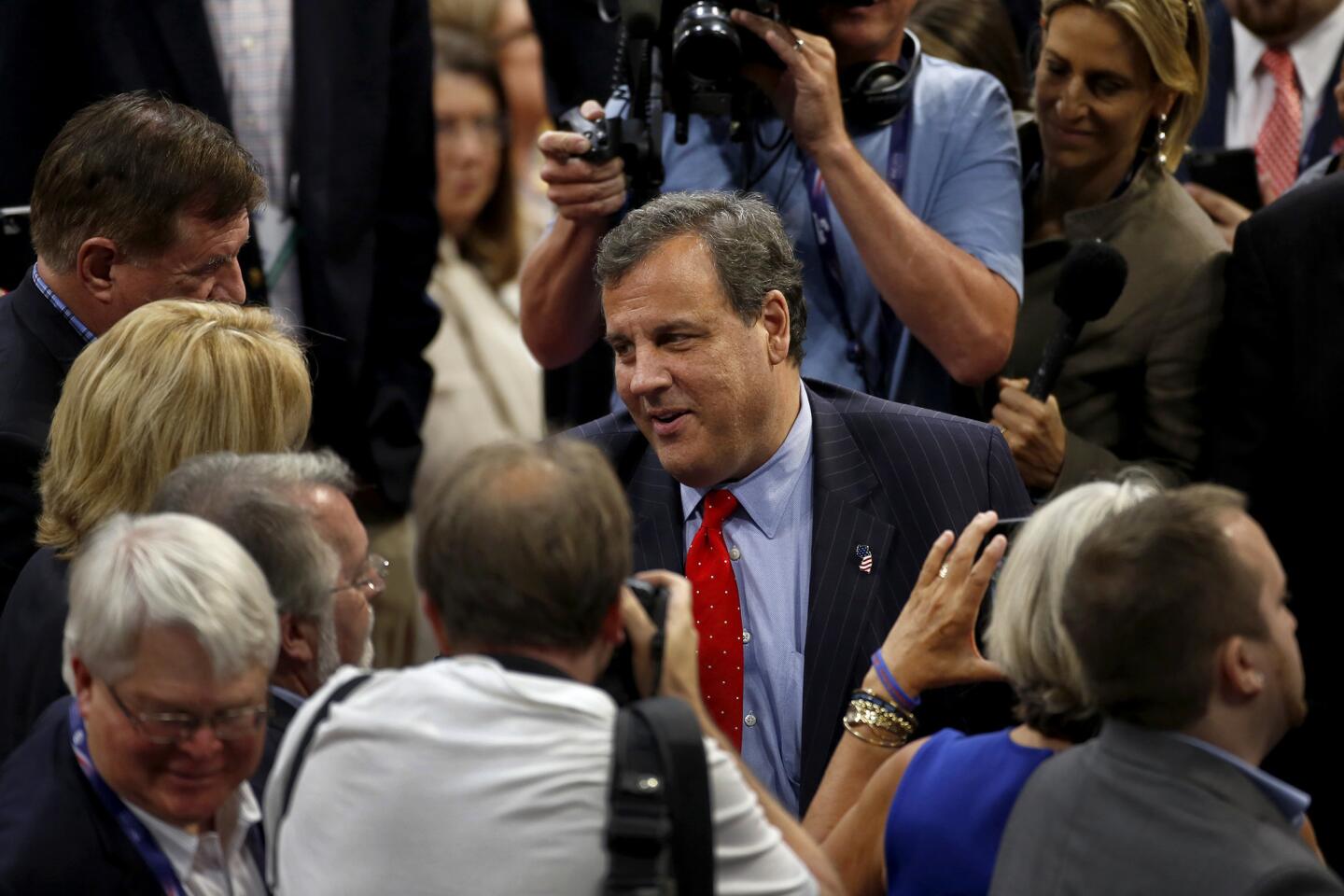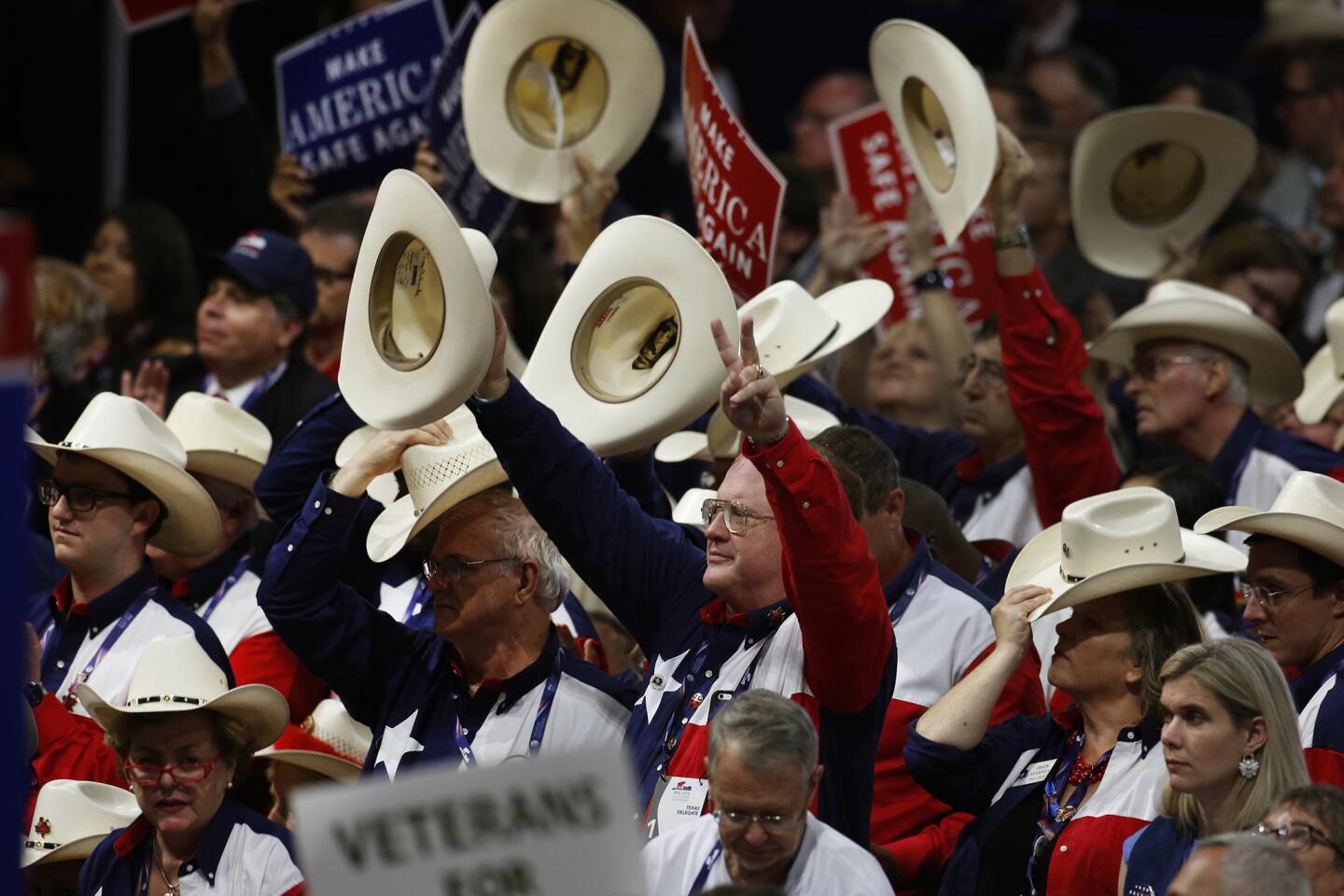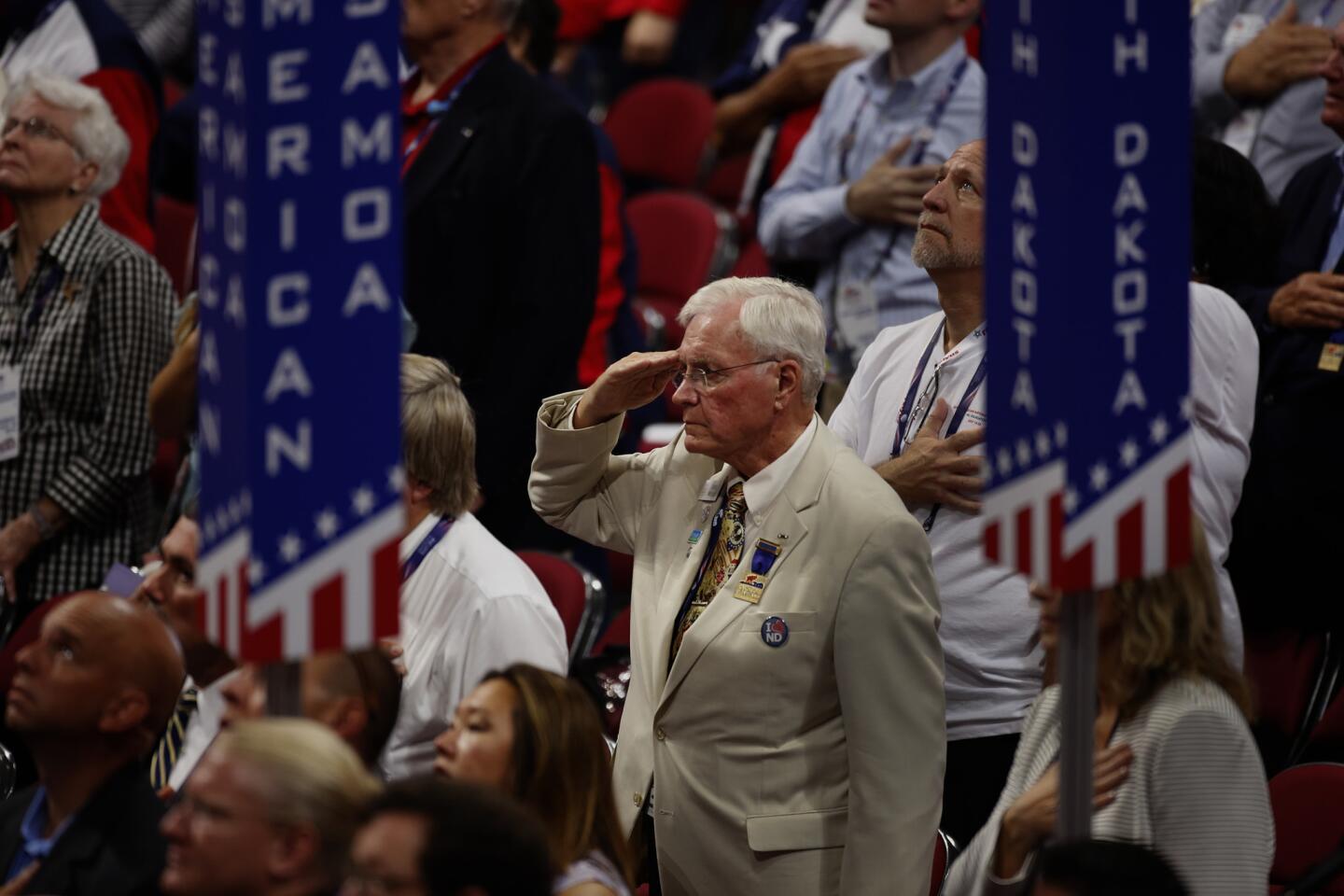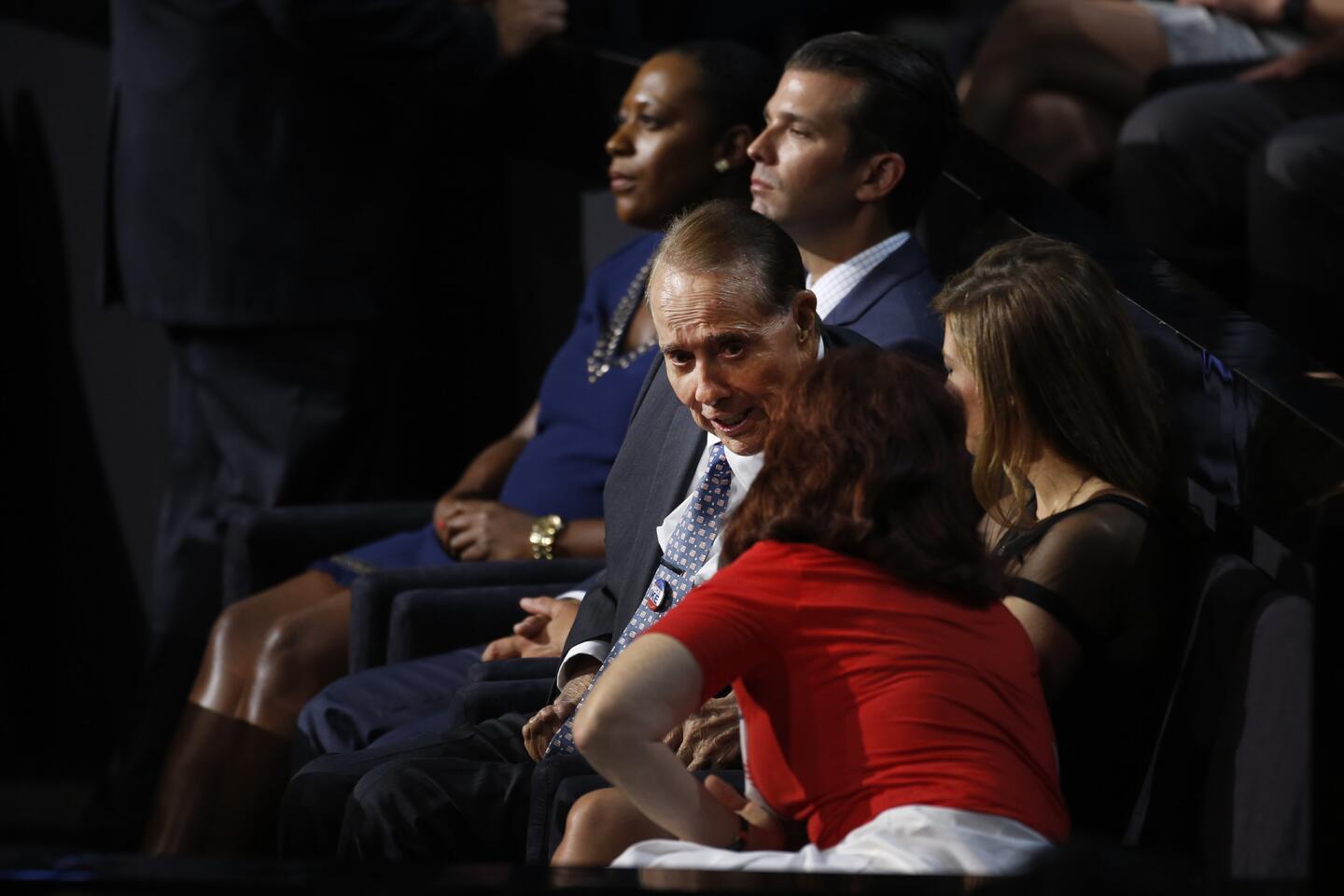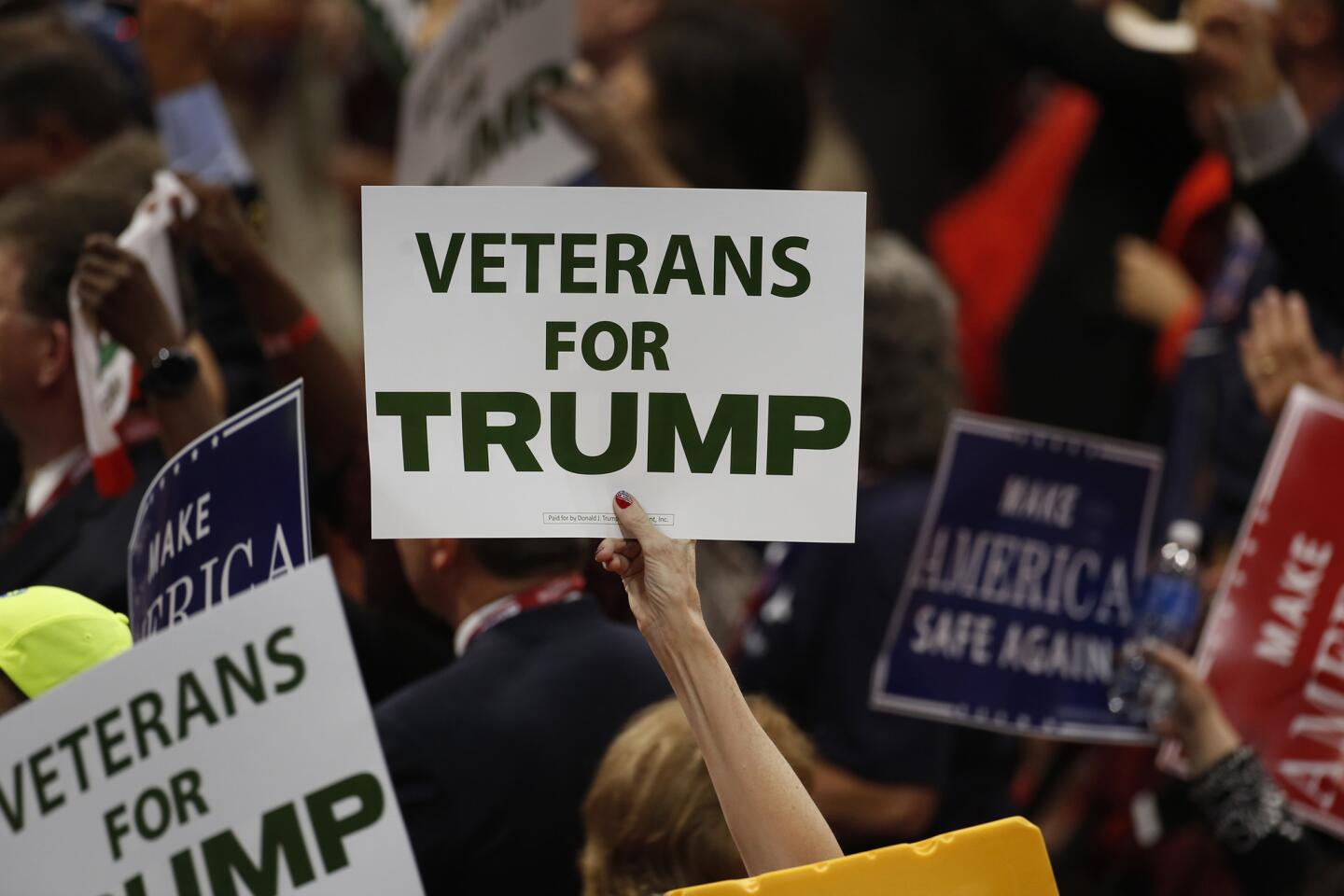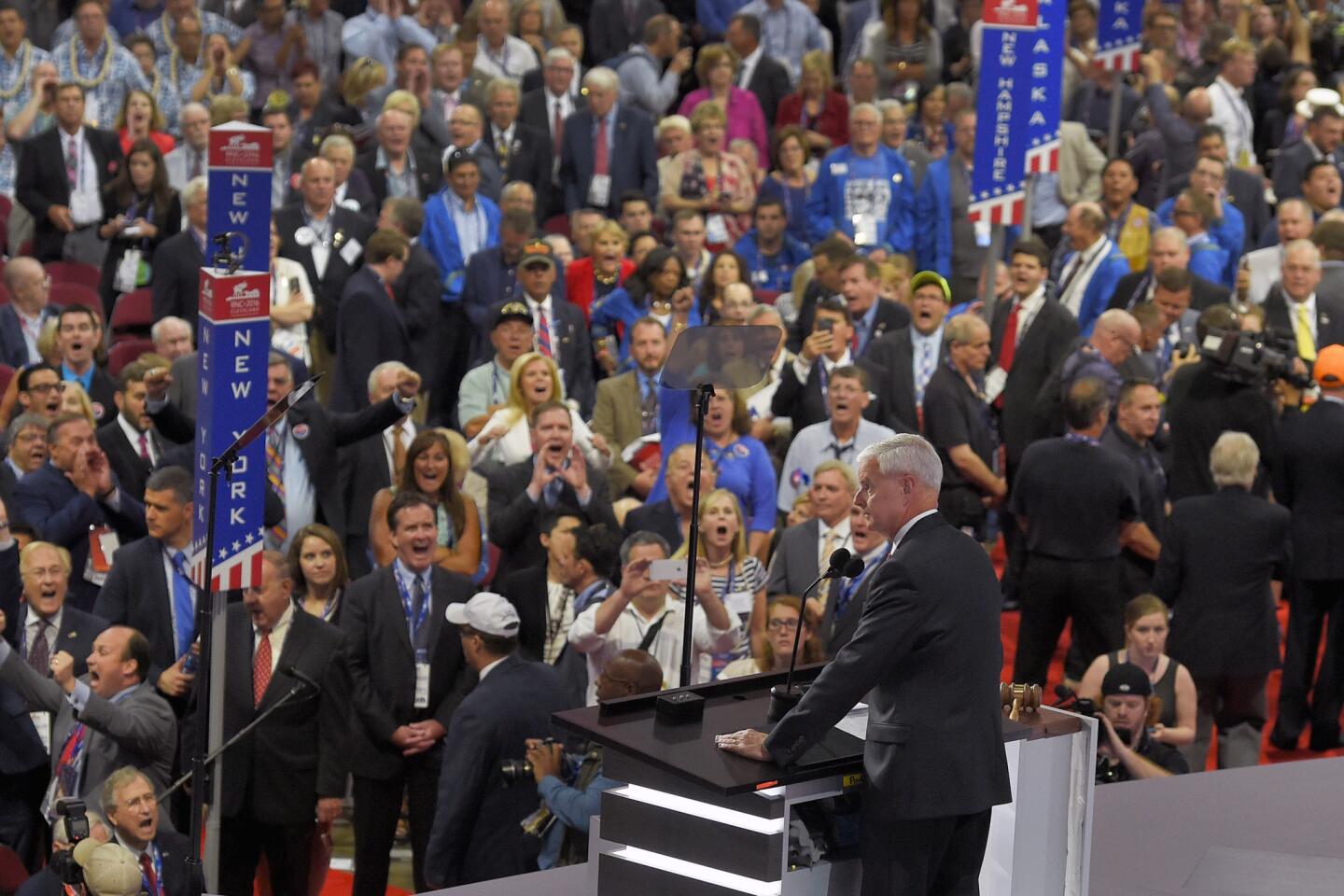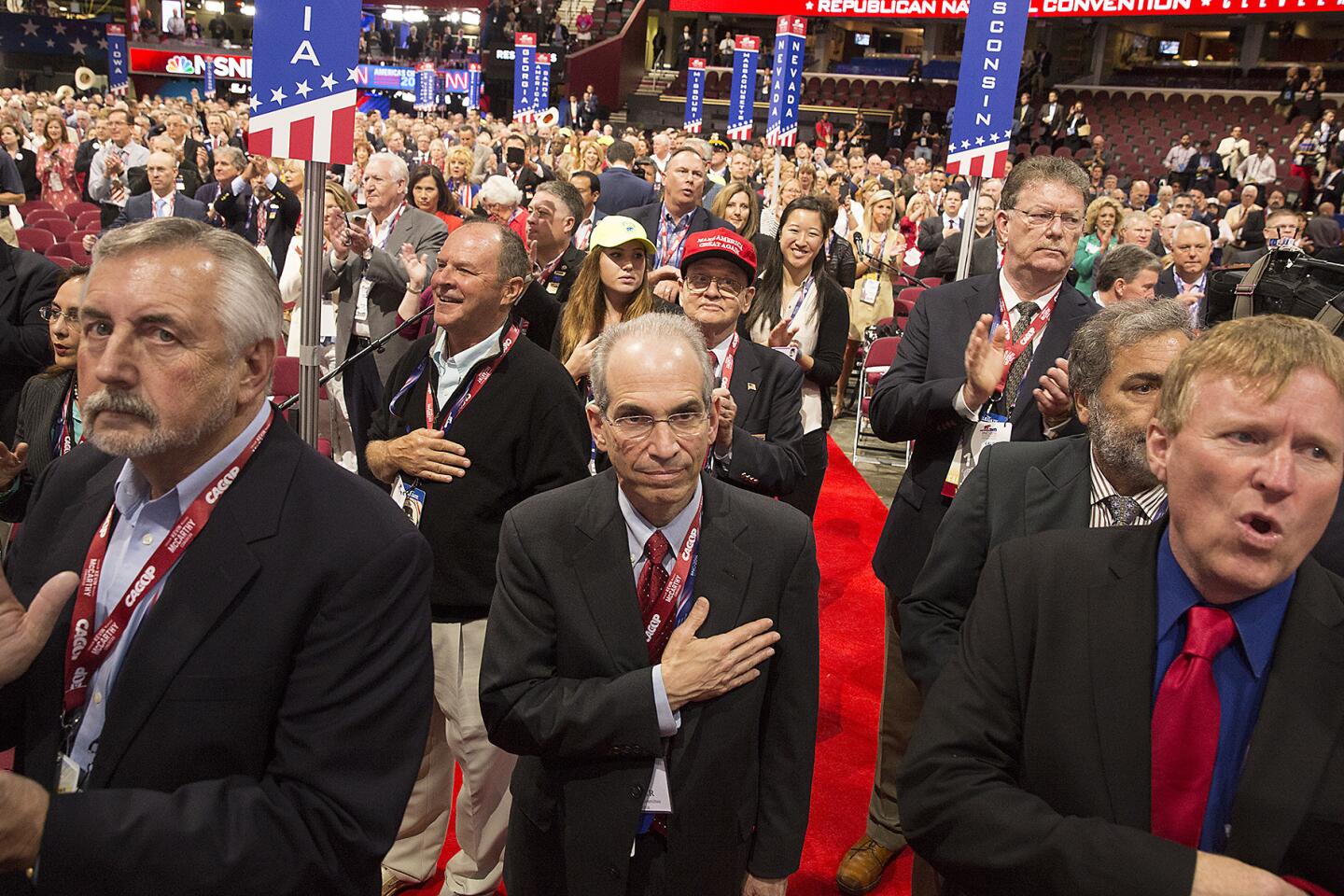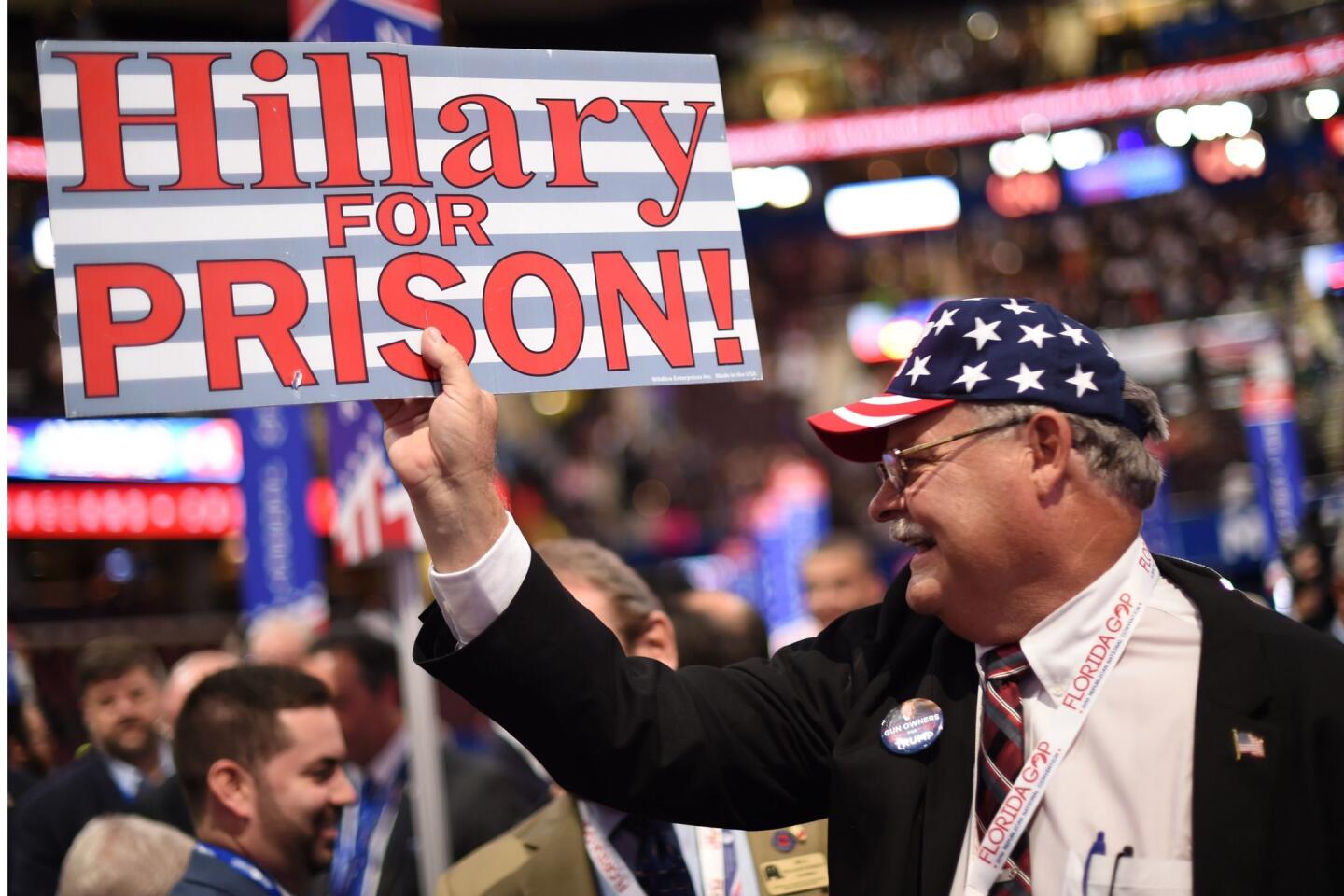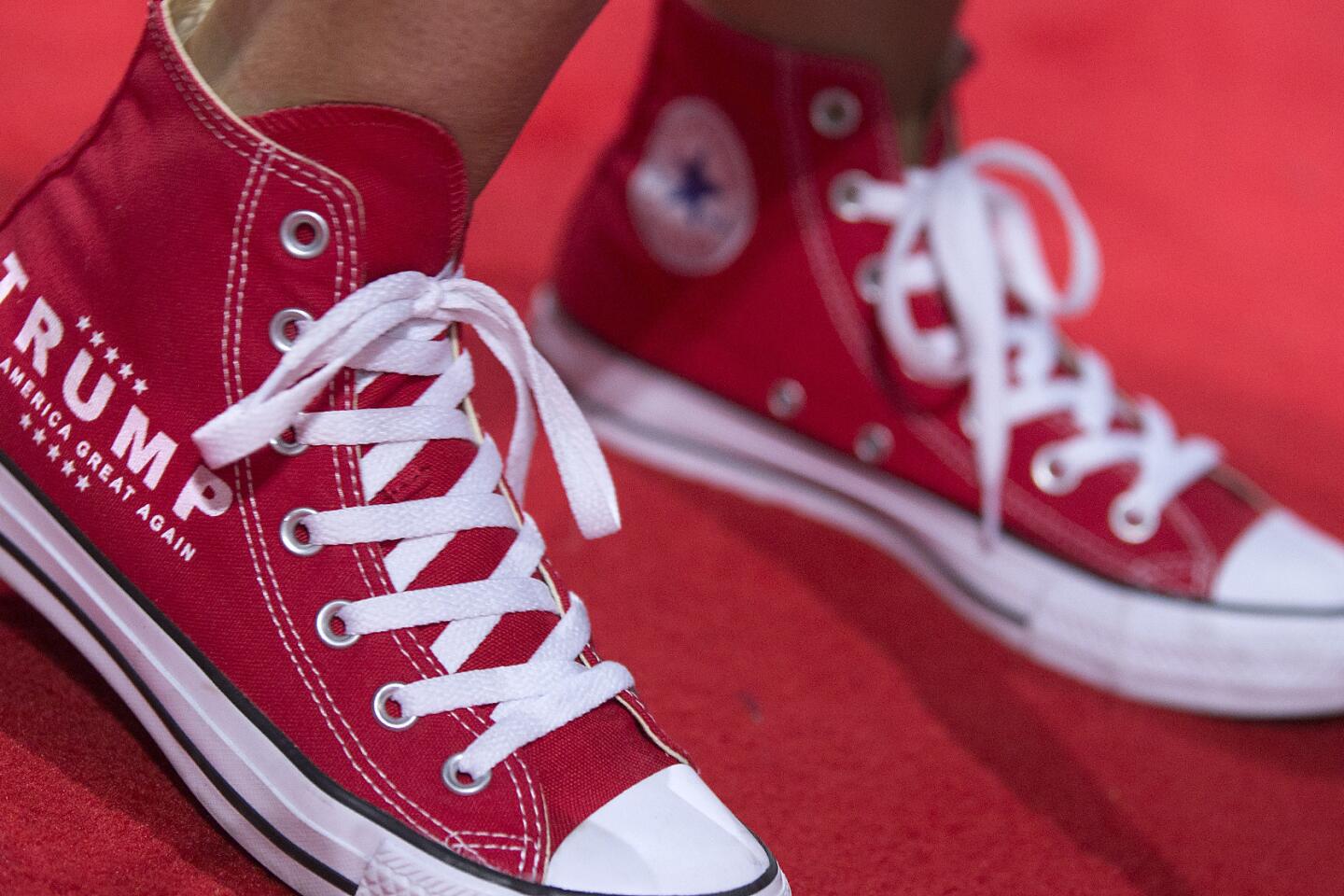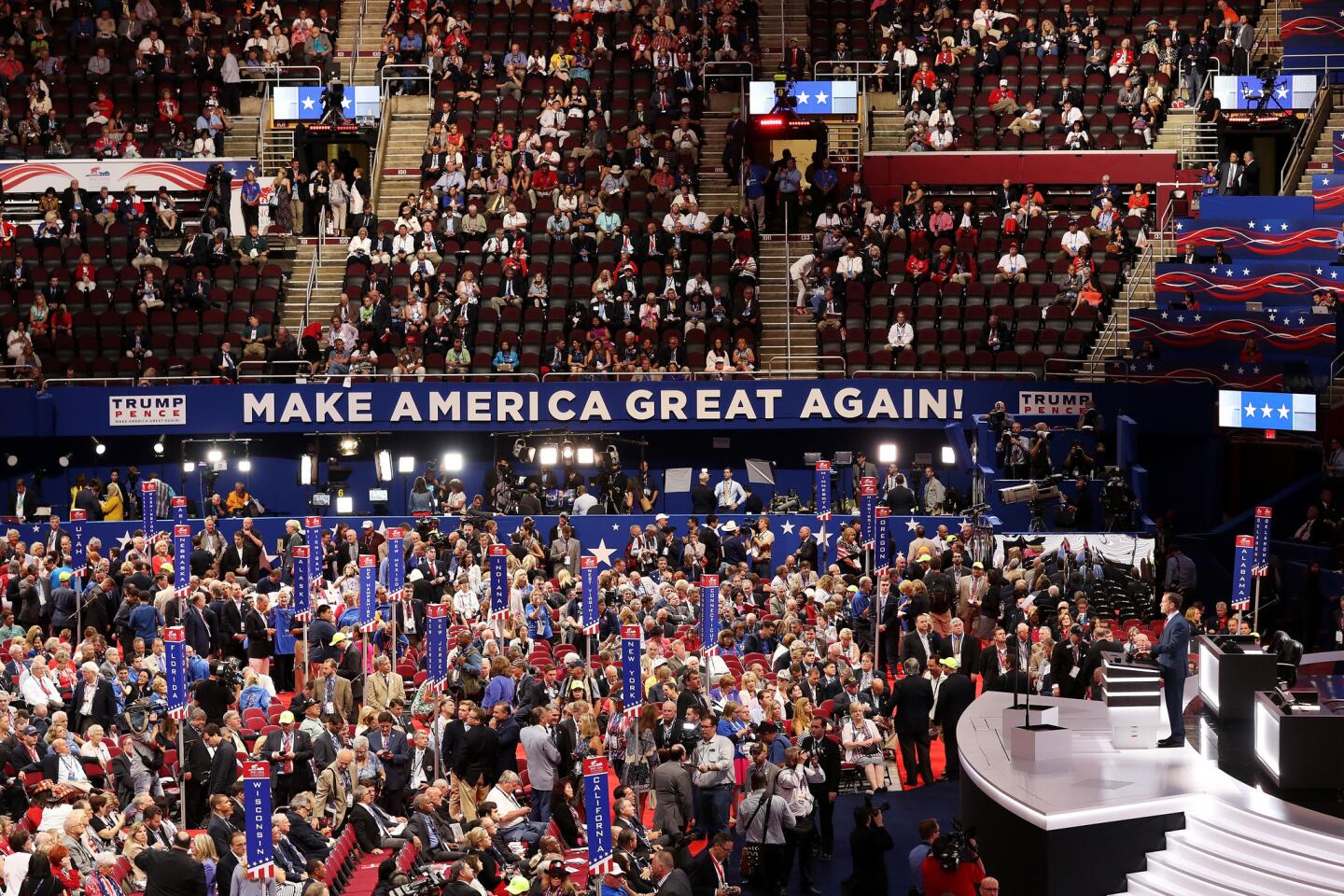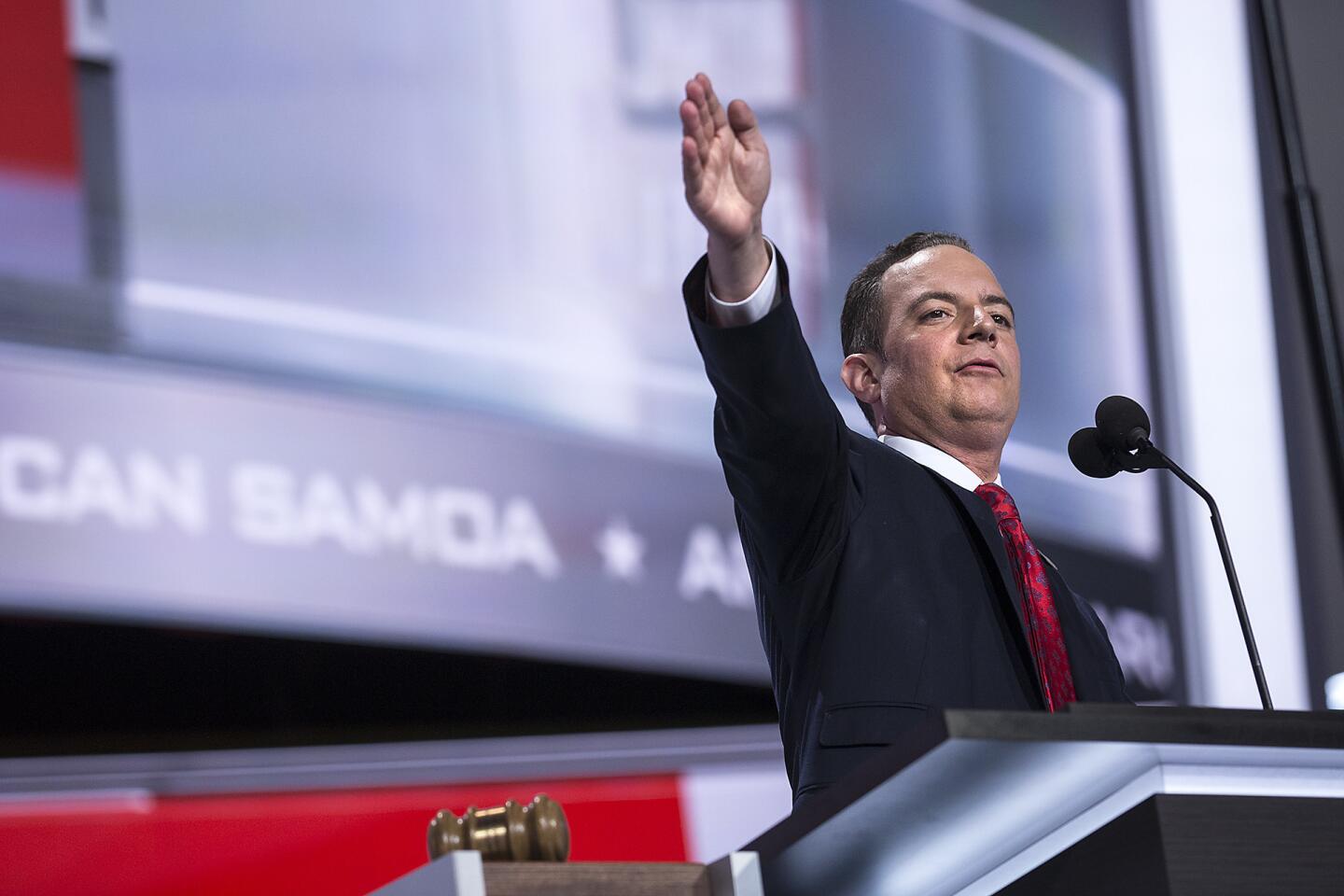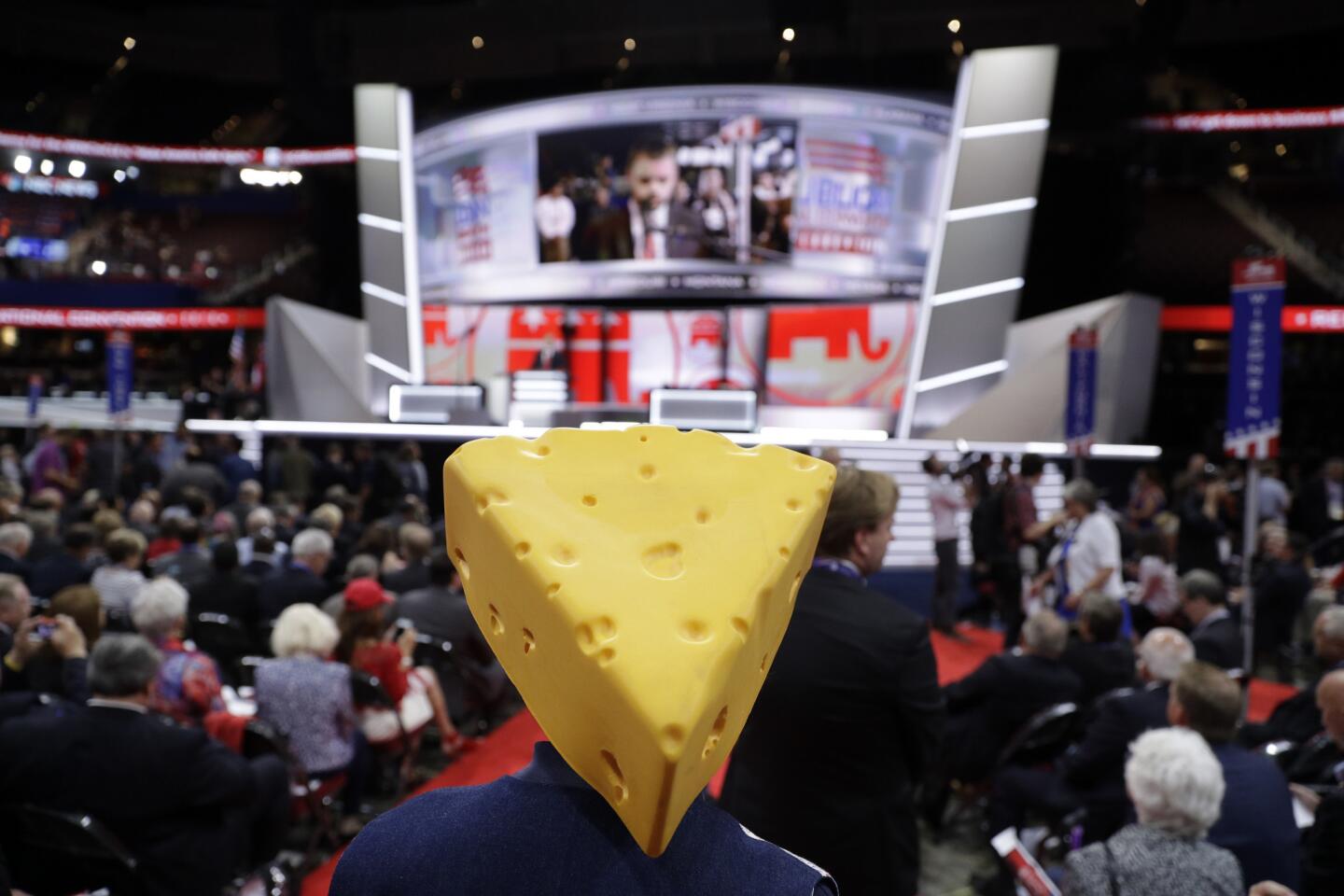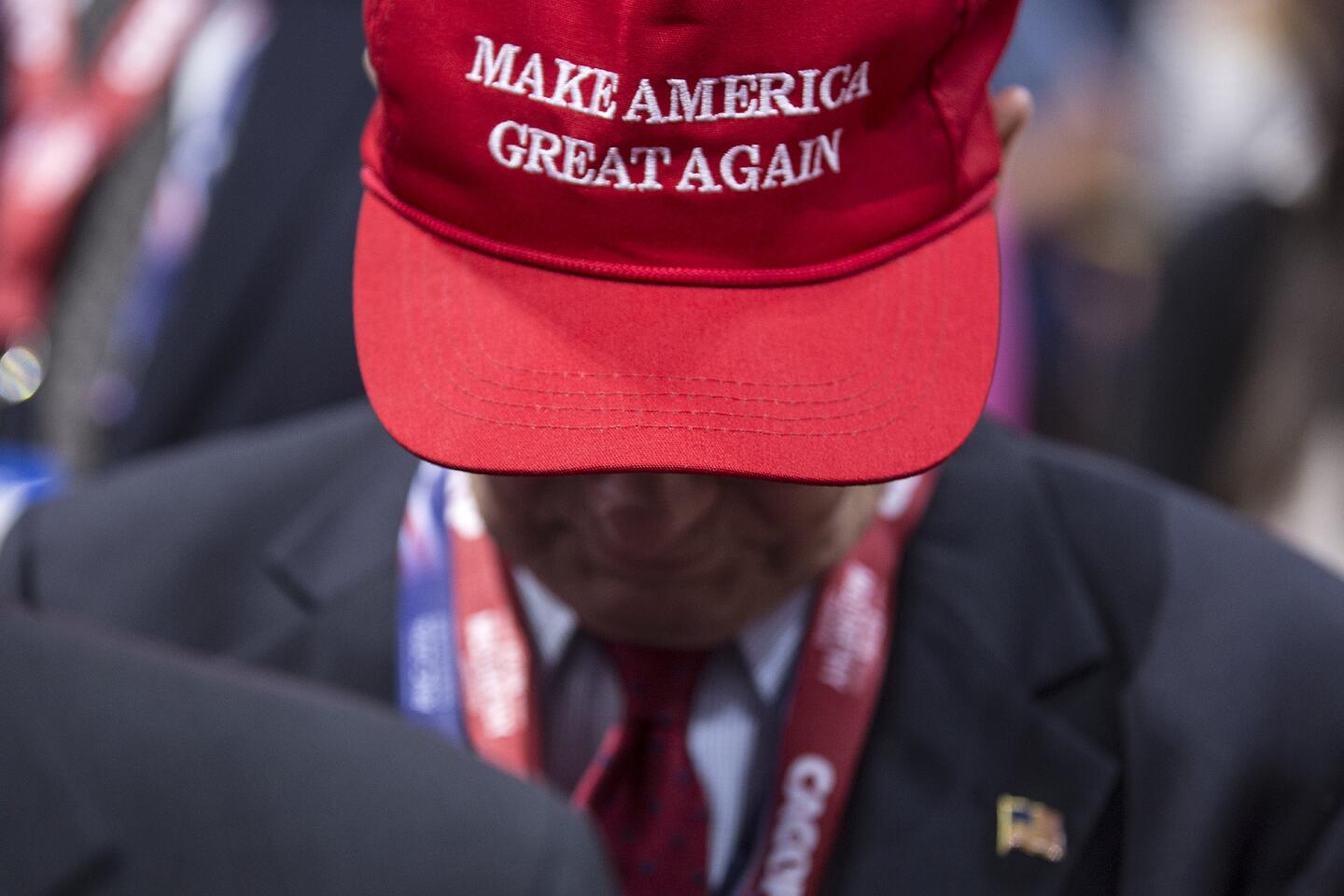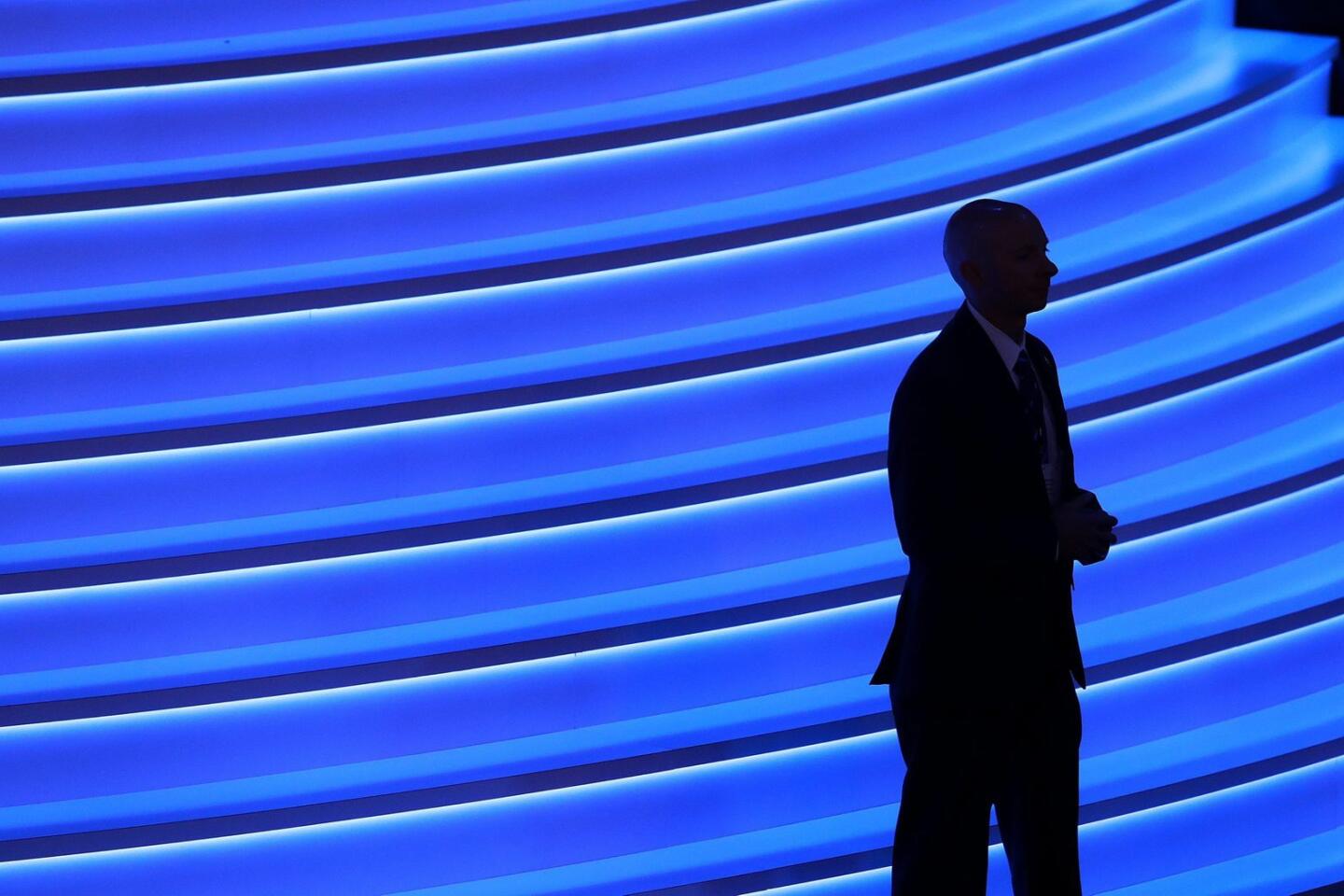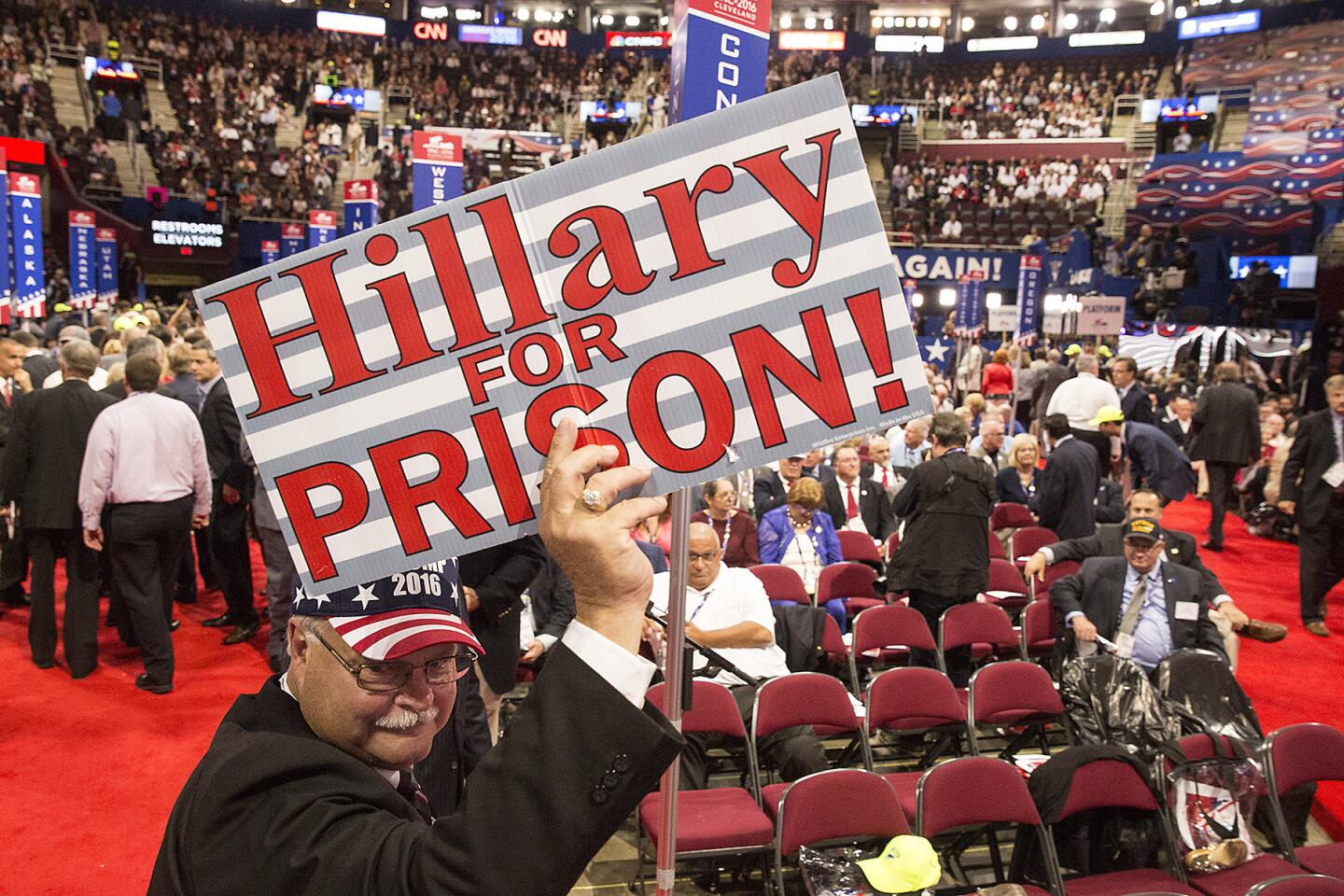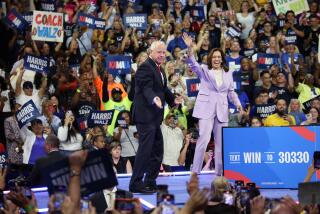As their convention opens, Republicans are racing to unite behind their candidate
Reporting from Cleveland — Ideally, political parties use their conventions to fire up the troops for the battle ahead, but as the Republicans convene here, party leaders continue to face a more basic problem: getting everyone to march in the same direction.
At a gathering of Iowa’s delegation Monday, for example, the state’s veteran senator, Charles E. Grassley, addressed those in the party who have doubts about Donald Trump.
Tell them two words, Grassley said: “Supreme Court.” He went on to warn about the risk that Hillary Clinton, if elected, could appoint several justices.
Earlier, Wisconsin Gov. Scott Walker hit the same note with the delegates: “Whether Donald Trump was your first choice, your second choice or your 17th choice,” he is “better than Hillary Clinton.”
And so it went around Cleveland on Monday as GOP leaders appealed for at least a show of unity, even as the party’s wounds remained on vivid display on and off the convention floor.
Republicans have been through a “very, very divisive primary,” House Speaker Paul D. Ryan, who is also the convention chair, told reporters at a lunch Monday. “I doubt that people are lost forever,” he said, but salving the divisions “takes some time.”
Time, however, dwindles quickly in a presidential contest. Although the fall general-election campaign almost always does pull partisans together, a party that leaves its convention divided seldom prevails, a lesson Democrats learned through bitter experiences in 1968, 1972 and 1980.
A lack of unity hurts a party in at least two ways: It depresses turnout of the party’s supporters, and the time and energy spent on fixing internal divisions get in the way of the pressing business of conveying the party’s electoral message.
That’s especially a problem for Trump, who faces an unprecedented level of doubt among voters about his fitness for office. His campaign needs as much time and focus as possible to try to overcome those.
Trump, however, has not made the party unity effort much easier: The nominee and his top aides keep reopening past wounds.
On Monday, Paul Manafort, Trump’s campaign chair, disparaged former Presidents George H.W. Bush and George W. Bush, the only two living former Republican presidents, while criticizing John Kasich, the Republican governor of Ohio, the convention’s host state. All three have declined to endorse Trump.
Kasich’s decision to sit out the convention and not back the nominee was “embarrassing,” Manafort told reporters at the convention’s official daily news briefing.
As for the former presidents, “certainly the Bush family, while we would have liked to have had them, they’re part of the past,” he said. “We’re dealing with the future.”
The depth of the GOP’s divisions remains striking. In a NBC/Wall Street Journal survey released as delegates arrived here, only 13% of Republicans said they believed the party was unified, and 78% said it was not. Six in 10 Republicans said they would have preferred to see someone other than Trump as their nominee, although despite that, about 8 in 10 said they would vote for him over Clinton.
Democrats have divisions as well, but of a more muted variety. Most Democrats say their party is unified; the share saying it wasn’t was about half as large as among Republicans in the poll. Sen. Bernie Sanders’ endorsement of Clinton last week and his expected work for the ticket in the next several months seem likely to improve those numbers for Democrats.
Polls consistently have shown Clinton winning a higher share of Democratic votes than Trump gets among Republicans. Although the gap is not large — just a few percentage points in most surveys — it’s problematic for the GOP, which starts out with a smaller partisan base than the Democrats have.
Counterbalancing those divisions is dislike and mistrust of the other side — the feeling that Grassley and Walker hammered at during their meeting with Iowa delegates.
With both candidates setting records for the share of voters who view them unfavorably, large numbers on both sides say they are making up their minds more on the basis of which candidate they are against than which they are for.
Among Trump’s voters, distaste for Clinton is the primary motivating force, a new Washington Post-ABC News poll found. Almost 6 in 10 of Trump’s voters, 57%, said they were backing him mainly to oppose Clinton. Only 38% said their votes were mainly to support him.
Among the vast majority of the GOP delegates and activists gathered here, opposition to Clinton is enough to quash doubts about Trump. Convincing the rest of the country has so far proved to be more difficult.
For more on Politics and Policy, follow me @DavidLauter
ALSO
Analysis: As violence cuts into GOP convention, Trump under pressure to stay on safety message
‘I’ve got to mow my lawn’: Here are the prominent Republicans skipping the convention and why
For Donald Trump to become president, the difficult road begins at the Republican convention
More to Read
Get the L.A. Times Politics newsletter
Deeply reported insights into legislation, politics and policy from Sacramento, Washington and beyond. In your inbox three times per week.
You may occasionally receive promotional content from the Los Angeles Times.
